2022 - 2025 Personal profiles
- Fraser Bell
-
Tell us about your role at the University.
As Chief Operating Officer (COO) I have the pleasure of leading the university’s Professional Services. We have a diverse and talented team who work together and with colleagues across the university to pursue the delivery of the university’s strategy, Aberdeen 2040.
As COO, I will seek to work alongside colleagues on the Court, Senate, Senior Management Team, and beyond to help ensure that Professional Services continue to meet the needs of the University as best we can within the resource available to us.
How do you usually start your day?
I tend to start my day with a strong cup of coffee and catch the latest headlines before the kids wake up. Where time permits, I’ll get some form of exercise before popping into the office.
Before finishing work each day, I’ll set out what I want to achieve the following day. That routine helps me to be organised and to get a decent start each morning.
What brought you to the University of Aberdeen?
The more I read into the role and the University, the more I was attracted to it. The University’s foundational purpose strikes a chord with my own personal values:
open to all and dedicated to the pursuit of truth in the service of others.
I was attracted by the opportunity to make a positive difference to not only the people we work with and the students who choose to study with us, but also to the difference we can make to the city, region and the world.
I was impressed by the University’s focused approach to its future as set out in Aberdeen 2040. I also picked up a strong sense of community amongst employees past and present who have a real passion for the institution.
All these factors made it a strong proposition and I’m delighted to be here.
What’s your favourite thing about your job?
At the time of writing, I have just finished my first week. Colleagues have been incredibly welcoming to me and the transition, thanks to the efforts of many, has been a smooth one for me. A big thank you to everyone who has supported me.
Speaking more generally, I enjoy working alongside colleagues, whether that be within Professional Services or across the university, to help them achieve their aspirations. That may be a piece of work which looks to improve the student and/or staff experience or indeed activity necessary to deal with the changing environment in which universities are operating in.
What are your work priorities at the moment?
Speaking of a changing environment, a key priority is working alongside colleagues towards setting a budget for 25/26. The financial challenges facing universities across the UK are well documented. Professional Services and the University as a whole will have to adapt accordingly and it is important that we aim to do this together.
Alongside that, I am doing my best to meet as many people as possible in these initial weeks. I’m keen to get a broad overview of the University and learn more about some of the excellent work we do.
How do you like to relax outside work?
Outside of work I enjoy spending time with my family. I’ve got two children, 2 and 4 years old, who keep me on my toes!
I try to get to Pittodrie as often as I can with my dad and enjoy a day out on the hills with friends.
What are you currently watching on TV?
My wife and I are currently watching the Apprentice. It’s an old favourite that I’ve watched since it first came on our screens. Many years ago I applied for the process and got through to the last stage from which they selected the final contestants. The identify of the final contestants was kept highly confidential and so when the show went on air, it was fascinating to see who of us had made it.
I’ve also just discovered the National Geographic channel. Some of the programmes on that have had me hooked!
If you could visit anywhere in the world, where would it be?
Ever since I went on a school exchange trip, I have been passionate about travel and experiencing different cultures. One place that I haven’t yet visited, and has been on my ‘to do’ list for several years, is Greenland. I’d love to take a couple of weeks to explore parts of the country. I have still to persuade the family!
What is the best concert you have ever been to?
The Shetland Folk Festival is one I recommend. You don’t have to be into folk music to enjoy the atmosphere triggered by the world descending onto Shetland for a weekend long festival. Each night, concerts take place across the islands before the various bands come together in Lerwick for a night that can go long into the early hours of the following day. It’s great to see the community come together to host the event.
What is the best local hotspot you have visited recently?
As a father of two young children, a beach or anywhere with a park are our current hotspots! Hazlehead Park, Aden Park and Cruden Bay Beach have all been favourites in recent weeks.
What words of advice do you have for others?
We all have our own personal experiences and talents and because of that we each have a unique offering to bring to the table. So, as we go about our business in a respectful manner, my advice would be to try and bring your authentic self to work each day to help us benefit from your own personal story.
9 April 2025
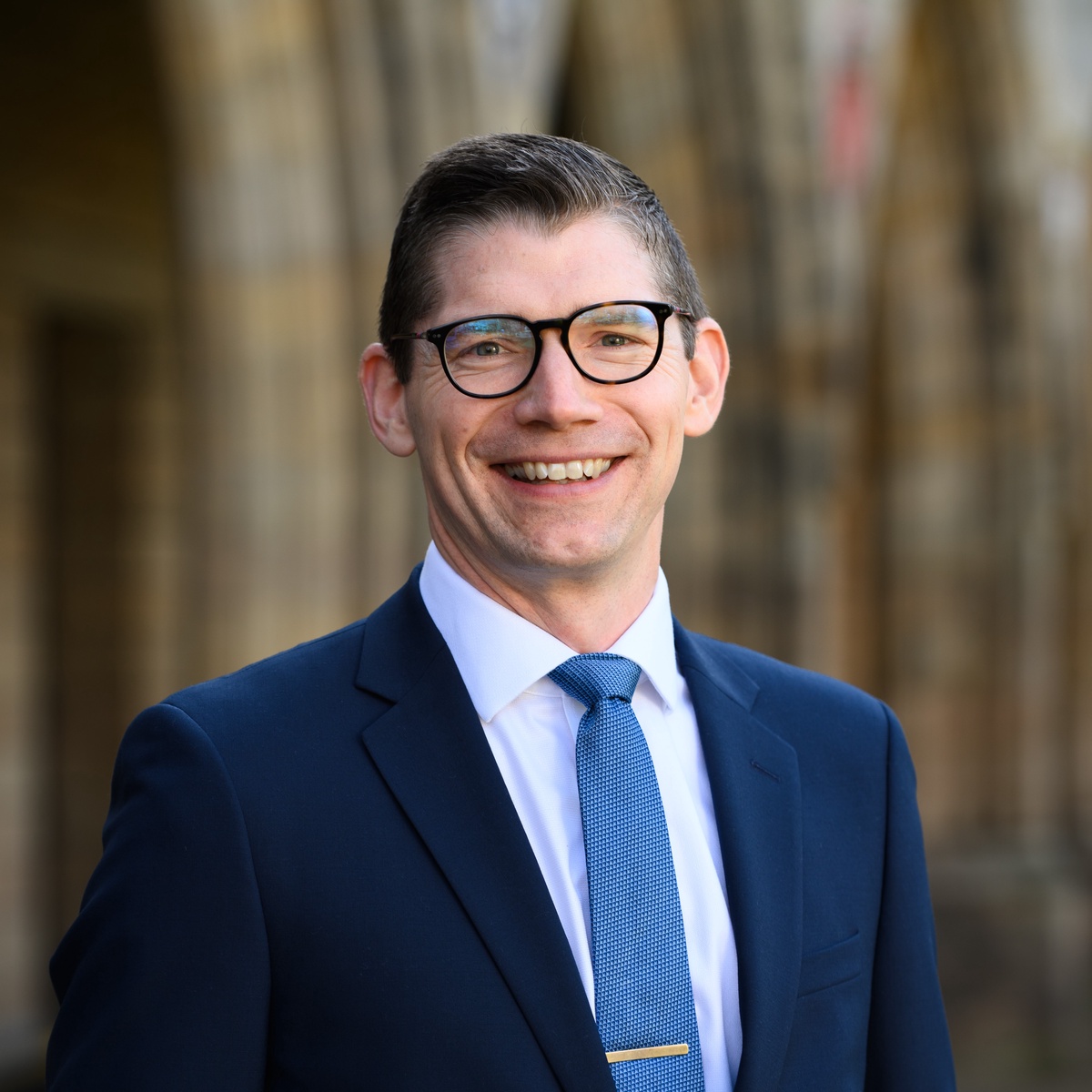
- Ian Phillips
-
Ian Phillips
Royal Society Entrepreneur in Residence
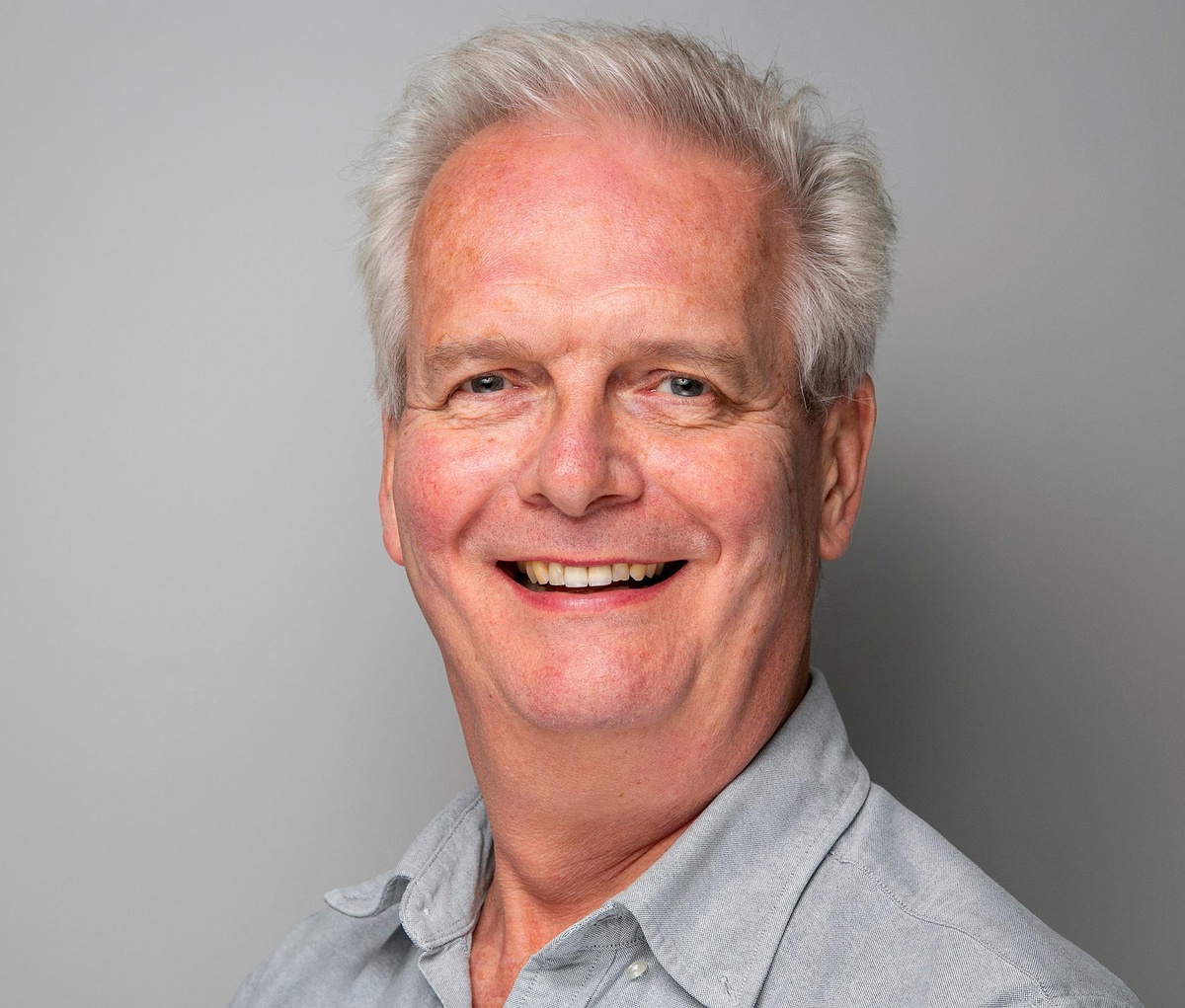
What is an Entrepreneur in Residence?
The Royal Society Entrepreneur in Residence programme funds individuals with entrepreneurial experience to encourage and support university staff and researchers and students to consider taking ideas to the market – often by spinning out companies. There are currently about 80 individuals across the UK in this role, of which there are five at the University of Aberdeen – two funded by the Royal Society, two honorary post holders who have stayed on after their Royal Society funding ended and one in the arts and social sciences (an area that the Royal Society doesn’t fund).
What is your background – and what do you plan to do?
I hold an MSc in Petroleum Engineering and an MBA and spent 25 years in the oil and gas industry, rising to the role of Project Director for a large gas field development.
In 1987 I and three colleagues set up the world's first company trying to do carbon capture and storage (CCS). Numerous government changes of heart meant that we had to pay our way by doing a wide range of energy transition consultancy. My final role before I retired was as Project Director of the Acorn CCS project based at St Fergus, north of Aberdeen.
My proposition to the university and the Royal Society was to do three things:
- Help lecturing staff to add energy transition knowledge and information to teaching programmes
- Present the challenges of the energy transition to researchers to help them identify new research opportunities
- Support individual academics, researchers and students to commercialise ideas and technologies – by licencing or by spinning out companies.
What is the best concert you have ever been to?
Bruce Springsteen at Wembley Stadium in 1986 – first time I saw one person have 80,000 people at his fingertips. Everyone singing along then going totally silent at the flick of his wrist - amazing feeling.
What’s your go-to coffee order?
Latte... And more recently decaff latte (for health reasons). Can't see why you’d add big dollops of sugary flavouring, whipped cream or any other contaminants!
What activity do you wish you were good at?
When I was a child I learned to play the cello – but didn’t continue it. I’d love to be able to play an instrument (and to be able to sing along – sadly I’m tone deaf).
What words of advice do you have for others?
The only person who really cares about you and your future is you – so look after yourself, be positive and be happy. And if you hate what you are doing then do something different.
Are you a morning person or a night owl?
Definitely a night owl – whilst I can get up if I have an appointment, I am really good at prevaricating in the morning, staying under the duvet as long a humanly possible. Conversely I am happy to work into the early hours if I have a deadline to meet.
5 March 2025
- Eddy Lenusira Wifa
-
Eddy Lenusira Wifa
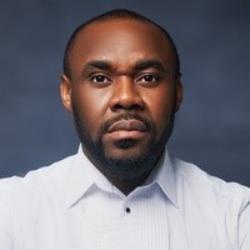
Senior Law Lecturer
Tell us about your role at the University and how your background influences your work.
I am a Senior Law Lecturer and the Postgraduate Taught Coordinator. I am also Co-Convener of the Global South Law Research Network. I come from an oil and gas law background and that was largely influenced by my experiences growing up in the Niger Delta region of Nigeria. I experienced a situation where there was very little economic development, despite enormous oil-wealth. It was not until I did my LLM in Aberdeen that the region and indeed the country was experiencing the resource curse. Those experiences caused me to view natural resource law and governance differently, but it also led me to exploring the role of law in the governance of emerging energy technologies like offshore wind. This became the focus of my PhD and what takes most of my research priority.
How do you usually start your day?
My typical day would start off with me dropping off the kids at school and getting to my office with a cup of coffee. I would say hello to colleagues and attend to emails. This is usually how my day starts when I am not teaching first thing in the morning.
What brought you to join the University of Aberdeen?
I came to do my LLM in oil and gas back in 2013. I graduated in 2014 and was fortunate to get a PhD studentship from the University. I completed my PhD in 2019 but was already a Teaching Fellow. I then became a full-time Lecturer in 2020. So, you could say my LLM brought me to University of Aberdeen as a student but the quality of teaching, research and the people has kept me as staff.
What's your favourite thing about your job?
I really enjoy working with excellent colleagues as we teach and research together. I also enjoy the satisfaction on students' faces and their success stories. To see that you have a small part in their story is fulfilling. Some have asked me what I enjoy the most between teaching and research. It is hard to tell as they both achieve different objectives while being quite interconnected. It is a difficult one, academia has so many components, but I also love attending conferences and networking. So it is difficult for me to have a favourite.
What are your current work priorities?
I am currently prioritising the completion of two books and other research projects. One is a co-authored cook on offshore wind safety and the other is an edited volume of offshore energy and law. I am also giving my new position as PGT Coordinator some priority as well. We have just recently formed the Global South Law Research Network and my colleagues and I are looking to see that grow.
How do you like to relax outside of work, and are there any cultural traditions you enjoy incorporating into your downtime?
In terms of relaxation, I go home to my family and they help me unwind. I have got two girls, Zina and Mimi, and my lovely wife Uma, so it is always lovely to get back home to them. We all unwind by watching cooking TV shows together. I enjoy cooking but do not expect any Michelin star meals from me. I also try to do some DIY but nothing too complex for now.
- Titilayo Adebola
-
Titilayo Adebola
Senior Lecturer in Law
Tell us about your role at the University and how your background influences your work.

As a Senior Lecturer in Law at the University of Aberdeen, my research and teaching are driven by my curiosity about the complexities underpinning international economic law. I chose this field because I'm fascinated by how the law both shapes and is shaped by global economic forces. Whether in the area of trade, food, finance, gender or development, the intersection of law and economics profoundly impacts everyday lives. My interest in the real-life impacts of laws and policies also informs my engagement with lawmakers, practitioners, and industry stakeholders. I am always keen to interact with the different constituencies that are directly affected by the areas of law I research and teach as I believe strongly in the power of scholarship to drive social, economic, and political change. For instance, in my research on intellectual property law, I examine the power dynamics that shape intellectual property regimes, with the aim of advocating for the often-marginalised constituencies.
How do you usually start your day?
My mornings are sacred to me. I kick off the day with a cup of lemon or green tea. I then pray, journal and meditate, centring myself for the day ahead. On good days (though rare during term time), I manage to squeeze in some exercise.What brought you to join the University of Aberdeen?
My job at the University brought me to Aberdeen. When I saw the job opening, the idea of moving to Scotland felt exciting, almost like an adventure. During my interview, I was immediately struck by how warm and welcoming the panel was. After the interview, I took a walk to the beach, which left a lasting impression. I was also intrigued by the striking granite buildings I saw on my walk, which added to the city's charm. However, what (kind of!) sealed the deal for me was the night before the interview—I had the best fish and chips with mushy peas. That simple, delightful meal stayed with me, and when I was offered the position, the memory of my kind interviewers, the coastline and the fish supper made Aberdeen feel like the perfect fit.What's your favourite thing about your job?
Definitely the people. I love working with my colleagues—they're brilliant, generous, and inspiring. I also really enjoy watching students grow and evolve. It's especially rewarding when they come to seminars prepared and contribute with fresh perspectives. Last term, one student stayed behind after every class just to thank me with so much enthusiasm. Gestures like that make the long hours and hard work worthwhile.What are your current work priorities?
At the moment, my primary priorities include finishing pending writing projects and delivering effective teaching and support to help students excel academically and professionally. I am also mentoring one of my PhD students as she works towards completing her thesis. Additionally, in my leadership roles - as the Director of the Centre for Commercial Law, Theme Coordinator for International Intellectual Property and Information Law, Academic Line Manager and Co-Convenor of the Global South Law Research Network - I am committed to fulfilling all of my assigned responsibilities.
How do you like to relax outside of work, and are there any cultural traditions you enjoy incorporating into your downtime?
Outside of work, I cherish spending time with family and friends. Whether it's a casual get-together, a visit, or a full-on celebration, being with loved ones always feels refreshing, especially when there's African food and music involved. I also enjoy blogging, mindful journaling, food and landscape photography, listening to personal development podcasts, getting lost in good books and taking long, peaceful walks or fun exercise classes. Spa weekends are my idea of pure bliss! However, I have to admit—long, deep sleeps are one of my absolute favourite pastimes. There's just something magical about a good, uninterrupted snooze.
14 October 2024
- Jo-Anne Murray
-
Jo-Anne Murray
Vice-Principal Education
Tell us about your role at the University.

My role is Vice-Principal Education, and I am accountable for all aspects of the student experience. I am very passionate about education as for me, education changed my life. I was first in my family to go to University; I left school at 16 to look after my Mum who was very unwell at the time, and I did an HND before I did my degree. I am also passionate about widening access - I believe everyone should have the opportunity to go to university.
How do you usually start your day?
I start my day by walking my dogs and looking after my horses. I am from an animal science background and horses are also my passion. I compete in dressage and recently qualified to compete in the British Dressage National Championships in London.
What brought you to the University of Aberdeen?
I studied Animal Nutrition at the University in the 1990s and I enjoyed living in Aberdeen. There is a vibrant horse community up here. Ensuring students have an excellent University experience has been a key focus for me and therefore Aberdeen's track record on a quality student experience drew me to the role. My son is studying here as well - we chose Aberdeen as I felt he would get the best support here.
What's your favourite thing about your job?
Seeing people succeed, whether that be staff or students. There is no better feeling than seeing people achieve their goals and dreams!
What are your work priorities at the moment?
Continuing the excellent work that has been done to ensure an excellent student experience, understand what staff and students are saying around what we need to do to improve, get out and about and meet as many staff and students as possible.
How do you like to relax outside work?
Riding my horses, walking my dogs and spending time with my husband and kids.
7 February 2024
- Alan (Zig) St Clair Gibson
-
Alan (Zig) St Clair Gibson
Vice Principal (Research)
Tell us about your role at the University.
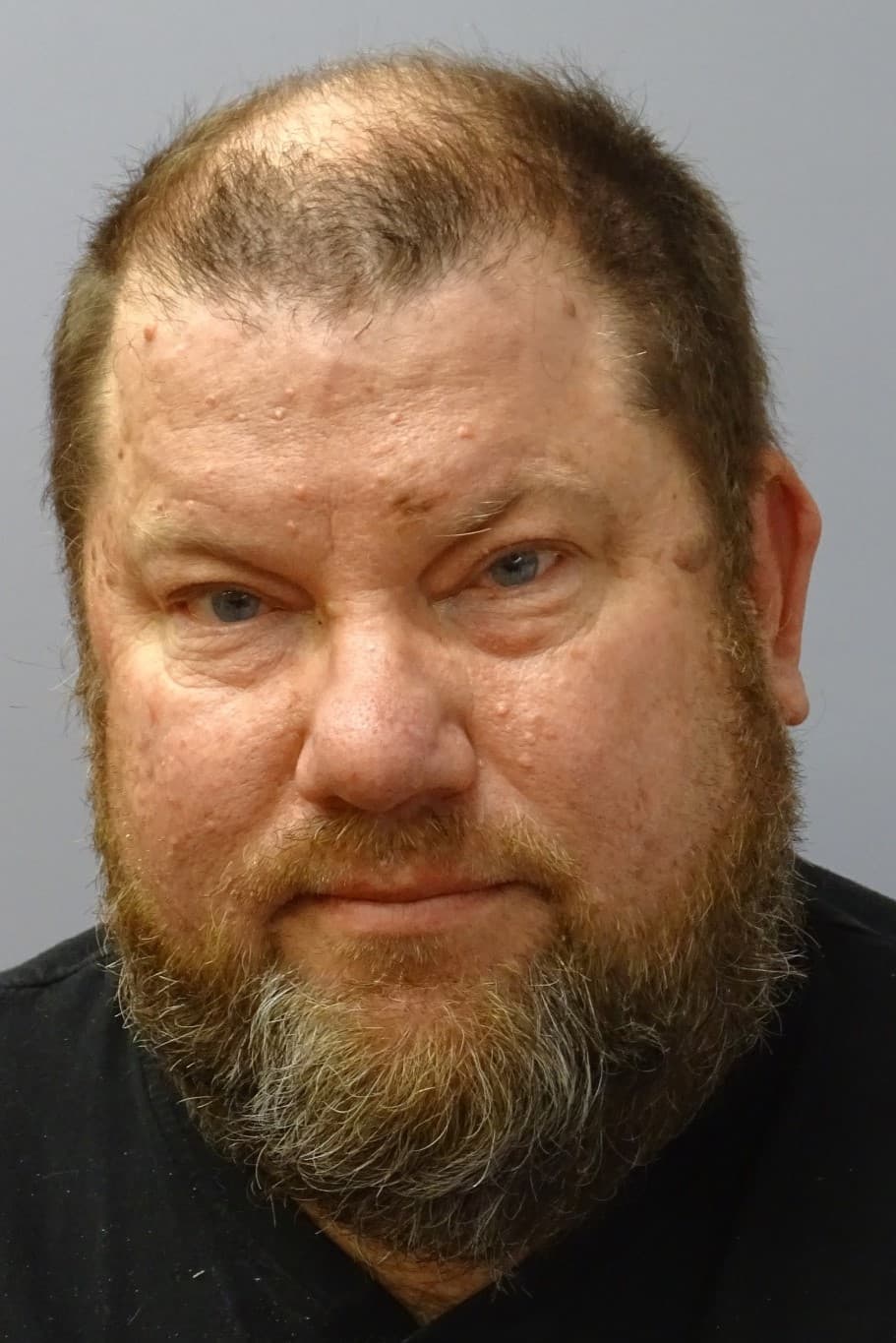
I am the new Director of the Institute of Applied Health Sciences.
How do you usually start your day?
With a strong cup of coffee and a quiet think about the day ahead.
What brought you to the University of Aberdeen?
I was headhunted by the University of Aberdeen, but it was a no-brainer to accept the role: a fantastic opportunity to take a strong Institute forward in one of the hottest areas of science at the moment - big data and health - at one of the best and oldest universities in the UK and the world, in a beautiful city.
What's your favourite thing about your job?
Getting the team I manage to be enthused about both the group plan and their own work, and help them maximise their potential as they do world leading research and teaching work.
What are your work priorities at the moment?
I am three weeks into the role, so it's currently all about getting to know the team, our strengths and challenges, and what we can do both quickly and strategically for the long term to take an already strong Institute onwards and upwards.
How do you like to relax outside work?
Spending time with my family - my wife Kate, son Luke (age 18), daughter Helen (age 15), our four dogs and two chickens, writing books, doing sport, and sitting watching a barbeque fire get going with a single malt scotch whisky to be drunk slowly as the steaks cook.
30 January 2024
- Nicholas Forsyth
-
Nicholas Forsyth
Vice Principal (Research)
Tell us about your role at the University.
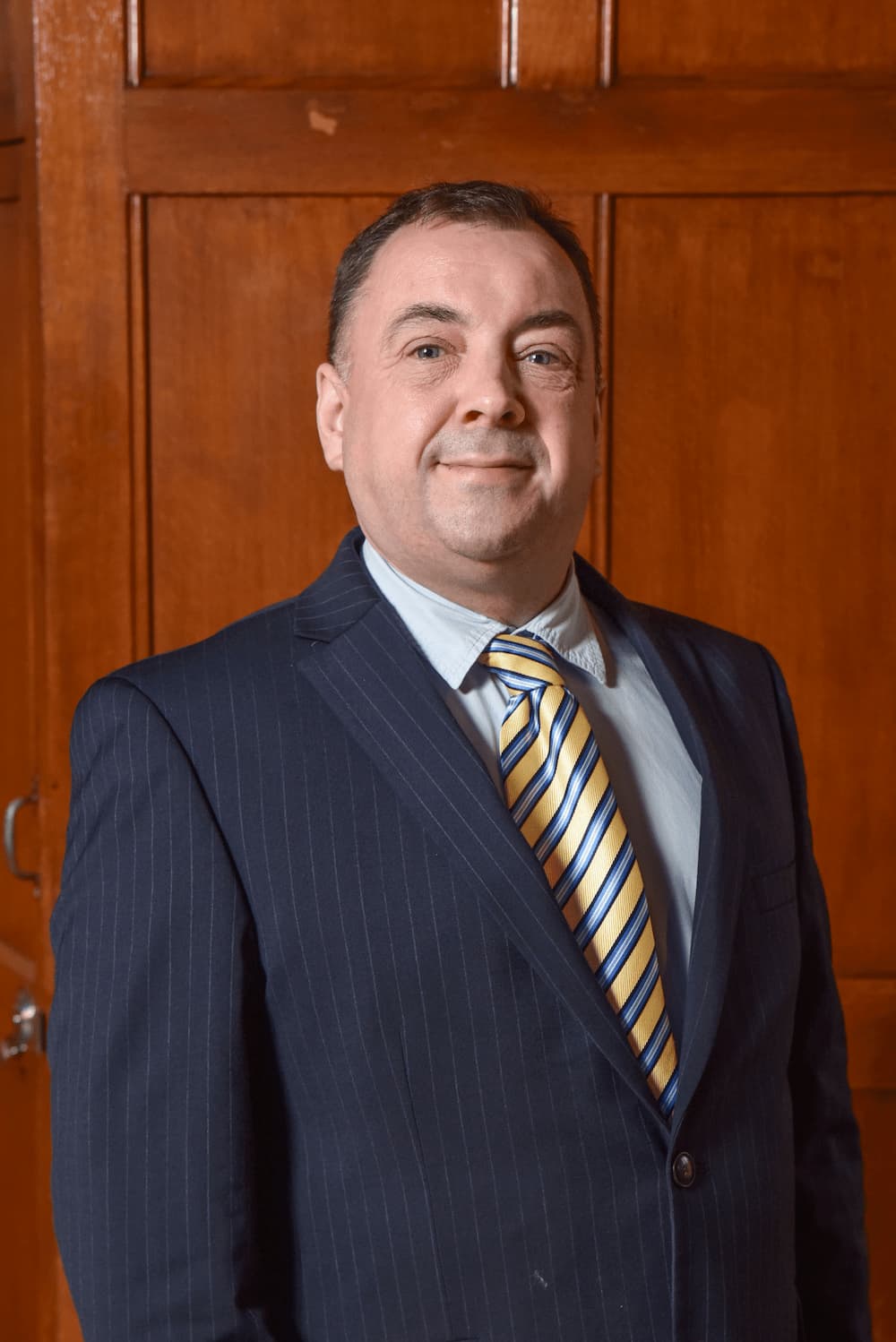
As Vice Principal (Research) my role is to promote strategy and delivery of research excellence across the University. I work with Schools, institutes and Directorates to help achieve this.
How do you usually start your day?
Coffee, fruit and yoghurt. Radio 6 playing in the background.
What brought you to the University of Aberdeen?
A great opportunity to drive research at a university that straddles ancient, royal, modern and progressive. A challenging combination but values to be proud of.
What's your favourite thing about your job?
The diversity of research that I'm exposed to and the continual 'wow' moments when I hear about colleague achievements and the incredible research that they do.
What are your work priorities at the moment?
Establishing the culture and environment that will help drive our research agenda forward delivering societal impact. Seeking to build upon our exceptional and broad portfolio straddling disciplinary and interdisciplinary excellence. The first part of this is simply getting familiar with the organisation and its people - that is my first priority
How do you like to relax outside work?
I enjoy sport on TV (F1 and football), playing golf (badly for 40 years and counting), gardening, cooking and a quiet reflective drink on a Saturday evening to round off the week.
20 December 2023
- Iain Grant
-
Iain Grant
Elected Staff Member of Court (Professional Services)
Tell us about your role at the University.
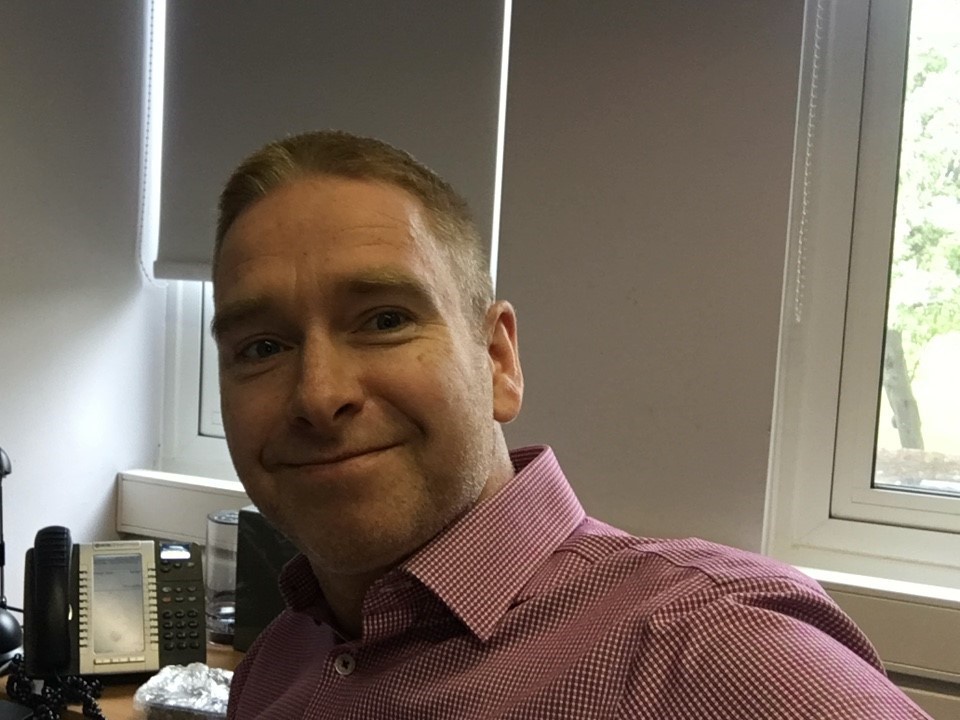
My day job involves looking after both strategic planning and our Project Management Office. However, the focus here is on my new role as an elected member of the University Court after formally taking up post on 1 November 2023, having been nominated by peers within Professional Services during the summer.
I've just attended my first meeting as a member and I recognise that it will be a very challenging role - reflecting the challenges we now face as a sector and as a University, but also the challenges we consequentially face at a more personal level as staff; the very people who put me in this position, and who make and drive the organisation. On that basis, I wanted to make sure I am as visible as I can be as a Court member, hence this entry today!
How do you usually start your day?
My day normally starts in a state of immediate and extreme stress, with a cocker spaniel spinning around in circles, barking at me for kibbles, and my daughter demanding breakfast and cartoons (I keep trying to insist on books, but it doesn't seem to work!). The next hour generally tends to be one of unmitigated chaos, often extended by having to do the school run; the primary school playground at 8:45am is another unforgiving attack on the senses. And then, after that's done, a sense of calm will tend to take hold, as I make my way to work via the local coffee shop. At work, I like to start with a round of morning greetings to friends and colleagues within the vicinity, before having another coffee (a double) as I set to work in earnest, maybe clearing emails as best I can, before focusing on whatever substantive task happens to be at hand.
What brought you to the University of Aberdeen?
I joined the University back in the golden summer of 2000 as a student; the Red Hot Chilli Peppers (Californication) and Eminem (The Marshal Mathers LP) were riding high in the charts at around that time and life was bereft of any meaningful responsibility - everything seemed inconsequential, fun and easy. I graduated four years and many hangovers later with an undergraduate degree in Politics and International Relations and, after completing a master's degree at Strathclyde, I returned to the University on a temporary, four-week contract. And here I am, still here nearly two decades on. Suffice to say that there have been highs and lows - plenty of both - but on balance I think it's a great place to work, full of great people and I enjoy it.
What's your favourite thing about your job?
In terms of Court membership, it's too early to say. However, my favourite thing about the opportunity is the chance to serve and to try making a positive difference in whatever way I can, on behalf of the organisation and, in turn, my colleagues. And while obviously I'd much prefer that we were in a healthier financial position, both as a University and more broadly as a sector, our current position only adds onus to the sense of responsibility.
What are your work priorities at the moment?
Within the context of Court, the priorities are manifold. First, I need to acclimatise to how Court works - both formally and informally - and I need to do it quickly, learning on the job. Thankfully there has been a lot of support with that to this point. I also need to make sure I absorb as much information as I can on where we are as a sector and as University, how and why we got to where we are, and then in turn, how we can move forward successfully. And I want to do that with as much positive and constructive energy as a can, recognising that we are all on the same team, all pushing, and working hard every day to deliver the success we deserve - as an organisation, and as the people who make and drive the organisation, at every level. I also want to make sure I'm contactable for discussion - on issues that are appropriate to, or relevant at the level of Court. It will also help me to be more effective in my role, so if you want to chat, please feel free to get in touch.
How do you like to relax outside work?
I have a six year old daughter who has no comprehension of relaxation - and I can't remember how it worked before she completely took over… sorry, uh, became the focal point in my life. But when possible I like to go for a run, walk, do some cross-fit, read and maybe treat myself to the odd coffee (it's an addiction)!
28 November 2023
- Francesca Soldati
-
Francesca Soldati
Open Research Advisor (Directorate of Digital & Information Services)
Tell us about your role at the University.
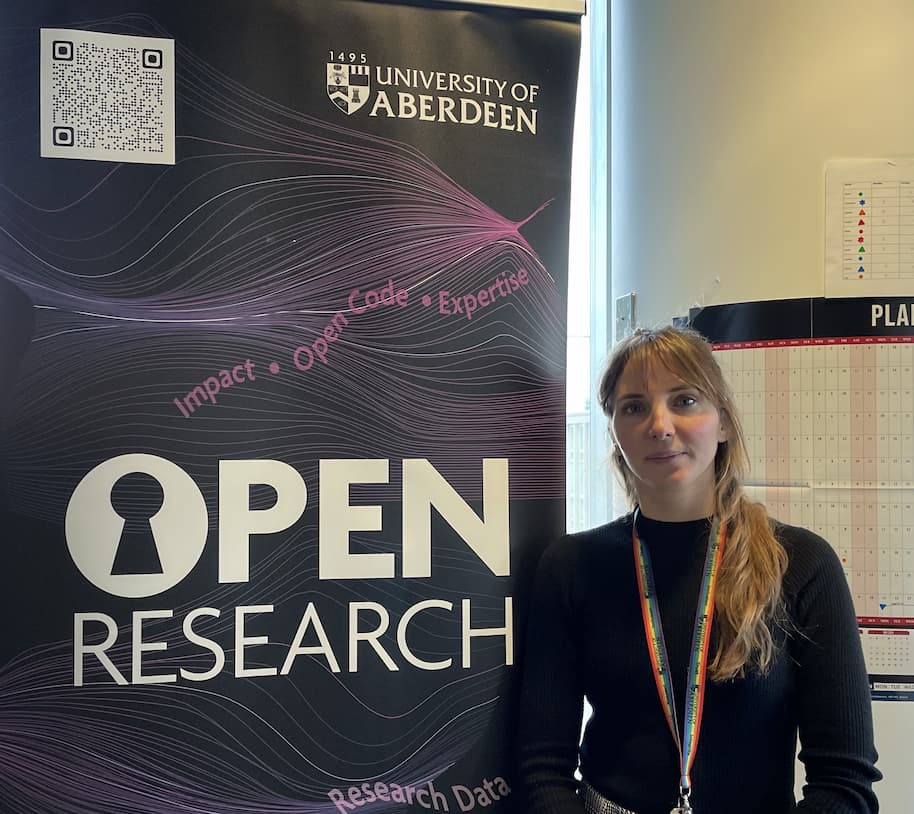
I am the Open Research Advisor in the Open Research team within the Directorate of Digital & Information Services. My focus is on the responsible use of research metrics. I also support academics in different Open Research-related queries and in making their research more discoverable.
How do you usually start your day?
I usually wake up early as soon as my three kids start jumping around. Then it's breakfast for everybody - I am a morning tea and biscuits person. Then I get the kids ready for school before doing the school run and finally arriving at the office!
What brought you to the University of Aberdeen?
I moved to Aberdeen in 2020 when my husband was offered a position at the University. It was strange arriving in a new city during lockdown and meeting everyone for the first time 'online'. My first role was as a Scholarly Communications Assistant and later, in 2022, I transitioned into my current position. With my background in research and previous experience in a university library, my current role proved to be an ideal fit for me.
What's your favourite thing about your job?
I really enjoy the fact that the bibliometric field is in constant development so there are new things to learn every day. We are in a transitional period, where there is a need to take a step further from traditional metrics to allow for a more comprehensive and fairer research assessment. I enjoy observing these advancements and actively participating in the search for new research indicators.
What are your work priorities at the moment?
My priorities are producing bibliometric reports to highlight the research strengths of the University and supporting researchers to manage their online Researcher Profiles, in particular ORCID and Scopus. This will enhance recognition of their fantastic work! Keeping researcher profiles up to date can benefit researchers' visibility, making it easier for collaborators, funders, and publishers to find and acknowledge their work. It is easier than it sounds, especially once the ORCID is properly linked to different platforms.
ORCID links all your research together and is portable. Your ORCID is yours and it moves with you. It distinguishes between researchers and protects against any name changes you might have over the course of your career. You may not be the only John Smith conducting research!
How do you like to relax outside work?
I spend lots of time with my kids outside of work, although it is not always relaxing! When I have some 'me time' I like to go swimming or walking. I recently discovered crochet to take my mind off things. And, of course, I occasionally indulge in binge-watching Netflix.
7 November 2023
- Stuart Piertney
-
Stuart Piertney
Dean for Postgraduate Research and Chair in Evolutionary Biology
Tell us about your role at the University.
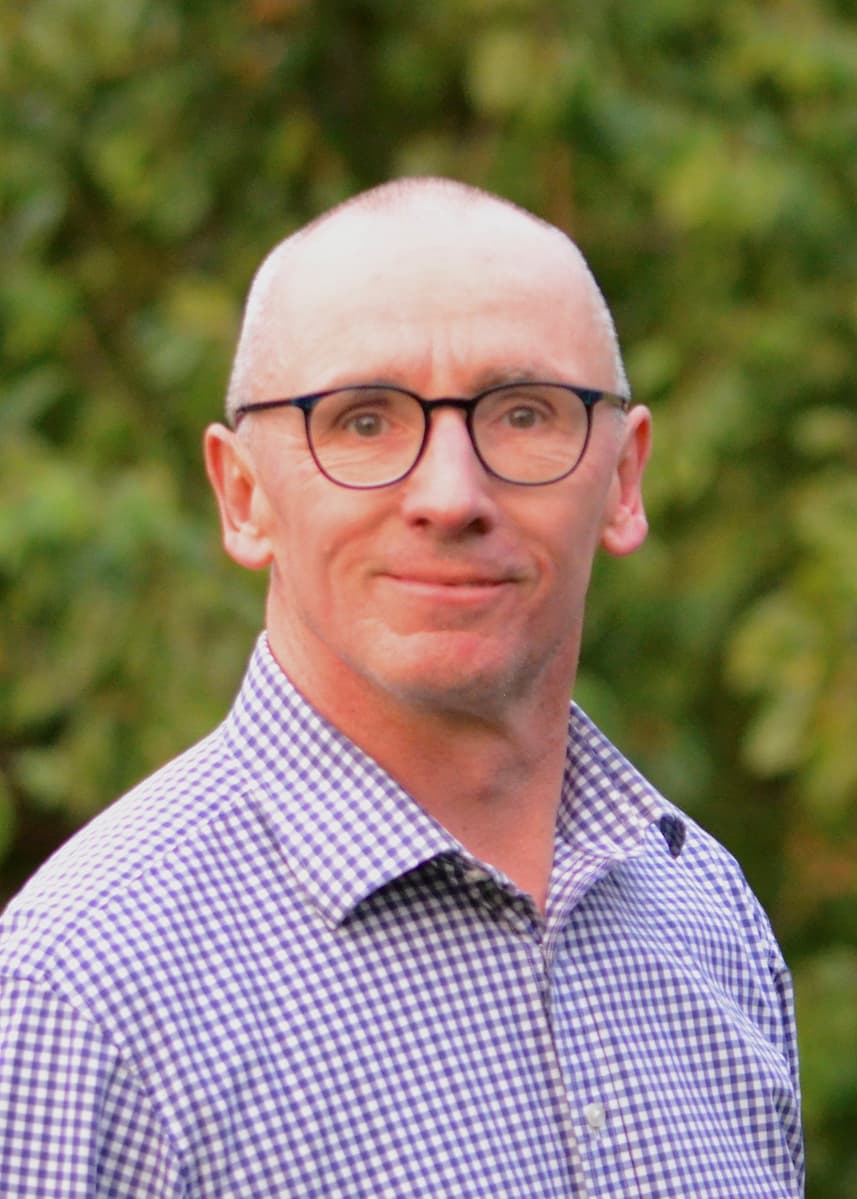
I've just taken up post as the Dean for Postgraduate Research, which involves supporting and growing the University's postgraduate researcher community and developing postgraduate research programmes that deliver an outstanding PGR experience. I'll be doing that job alongside my other role as Professor in Molecular Ecology and Evolutionary Biology within the School of Biological Sciences, where I lead a research team that examines how changes in the DNA of organisms helps them adapt to the challenges of a new or changing environment.
How do you usually start your day?
With far too much coffee and a walk.
What brought you to the University of Aberdeen?
I first came to Aberdeen in the mid-1990s, initially as a postdoctoral research fellow before becoming a lecturer, then reader and now Professor. A lot has changed at the University and in Aberdeen over those nearly 30 years, but what has remained the same for me is the attraction of working in a really dynamic yet friendly and supportive School, in a compact yet vibrant city; and being immediately adjacent to some of the most amazing mountains, coastline and wilderness areas to be found anywhere.
What's your favourite thing about your job?
My research is inherently multidisciplinary and collaborative, so throughout my career I been really fortunate to work alongside and interact with an amazing group of students, colleagues and collaborators from across the world. What I find particularly attractive about my new role as Dean is that I will get to interact with an even larger group of researchers and academics from across Schools and their disciplines to gain a deeper understanding of the research done across the University and how that delivers impact.
What are your work priorities at the moment?
The start of my new role as Dean couldn't really be better timed, as one of the first jobs I will have to do is welcome the new cohort of PhD researchers who start in October. Whilst it is their individual supervisors will be at the sharp end when it comes to support and mentoring, it's great to be able to wish them well and highlight what support and training is offered by the Graduate School and the University more broadly to help with their overall PGR journey and experience. Also, by that time the Undergraduate year will be underway, and I'll be teaching the new third year biological science students about all-things evolution.
How do you like to relax outside work?
I try to get out into the mountains as much as I can, be that on a bike to get a bit further, or on foot if a bit steeper. We should never take for granted just how fortunate we are to have the Cairngorms and the further Highlands on our doorstep.
6 September 2023
- Catherine Shanks
-
Catherine Shanks
Marketing and Communications Officer
Tell us about your role at the National Decommissioning Centre.

I joined the NDC based in Newburgh in April this year as Marketing and Communications Officer and, in a nutshell, my role is to promote its work. The NDC is well-known to industry and has several established partnerships. My work helps generate new collaborations and raises the profile of the work of the NDC with stakeholders including government, industry, academia and the media. I also help deliver the NDC conference and events presence. There are many throughout the year but, the big one I am working towards at the moment is Offshore Europe (5 to 8 September at the P&J Live).
How do you usually start your day?
With a cup of tea although this does tend to be a feature throughout my day!
What brought you to the National Decommissioning Centre?
The NDC has a great story to tell, and the opportunity was there to use my skills and experience to help share it.
What's your favourite thing about your job/research/project?
Being so close to the research that impacts our daily lives is truly amazing. For example, colleagues are using the 300-degree immersive marine simulator at the NDC to create a smart energy basin, a digital copy of parts of the North Sea. This is a bit like a smart city, and it will map out all the users and structures in the sea as well as visualising their different challenges. They are also using the same technology to develop a tool that can show traffic volumes around Aberdeen. How useful this will be for us all!
What are your work priorities at the moment?
My background is in public sector comms and before that I was a journalist so getting to grips with the complex energy sector is vital and a new challenge for me. Thankfully I am surrounded by an incredibly supportive and highly experienced team who know the industry and its nuances inside out and they are more than willing to share their knowledge with me. While oil and gas decommissioning is the back bone of much of the work at the NDC, there is also research looking at nuclear decommissioning and work focused on supporting the energy transition. Lots to learn but it is a fascinating place to work.
How do you like to relax outside work?
Exploring Scotland. We are fortunate to live in a country with so much natural beauty and nature and the north-east must surely be one of its best spots. I love to get out for a walk somewhere new and learn about the place, but I also love the culture of Scotland from traditional music (I play violin and piano) to events like ceilidhs and highland games. We also have access to some great produce and an array of lovely eateries which I'll always be happy to try.
19 July 2023
- Karen Ross
-
Karen Ross
Administrative Assistant
Tell us about your role at the University.
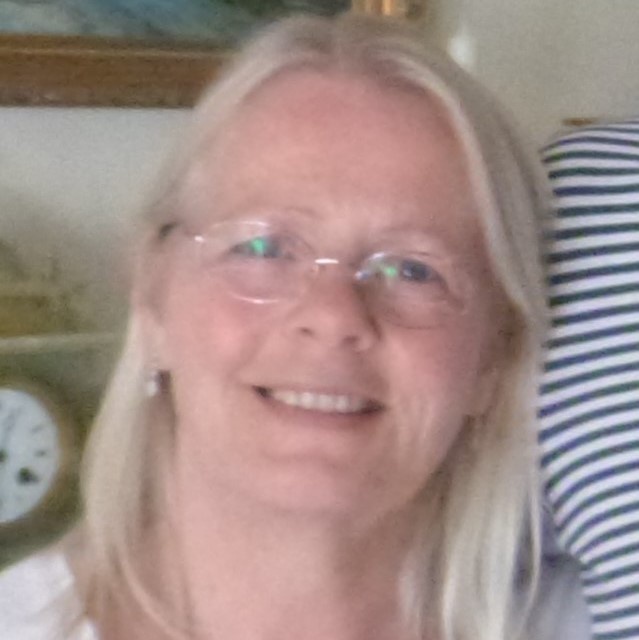
I am based at Hillhead Student Village situated beside the lovely Seaton Park. The Student Village is part of the Estates & Facilities directorate of the University and approximately 2,500 students can be housed there. I have joined the team responsible for booking out the accommodation and who also deal with any day-to-day issues which may arise regarding the students/visitors and the accommodation village.
How do you usually start your day?
It's an early start for me as I live outside the city so I need a coffee before the commute and a couple more when I get here to get the morning going. The drive in is great now the mornings are bright and shiny - trying not to think about the inevitable cold, dark early starts at the end of the year!
What brought you to the University of Aberdeen?
I was in my last post for almost four years - also a large educational establishment - and I felt it was time for a change. I was looking for a post still within education but with more variety during the working day. This post came along at just the right time for me as it offered all that plus the chance to put all my years of admin experience to good use.
What's your favourite thing about your job?
It's early days yet and I'm still settling in but I have some lovely new colleagues and there's Seaton Park and Aberdeen beach right on the doorstep. A good start to any new job I'd say…
What are your work priorities at the moment?
Trying to adjust to the new way of working - learning about a different university and a change of internal bespoke software, daily routines and tasks specific to the accommodation team. And finding my way around a large site with the different types of accommodation available.
How do you like to relax outside work?
I am a keen gardener and usually out there most weekends. I tend to have my Kindle with me most of the time - I have accumulated so many great books just waiting to be read. I also really missed my trips to the cinema due to the Covid lockdown so now I am working closer to our usual Cineworld at the beach, we can resume the long-awaited big screen visits.
29 June 2023
- Alethea Madgett
-
Alethea Madgett
Research Fellow
Tell us about your role at the National Decommissioning Centre.
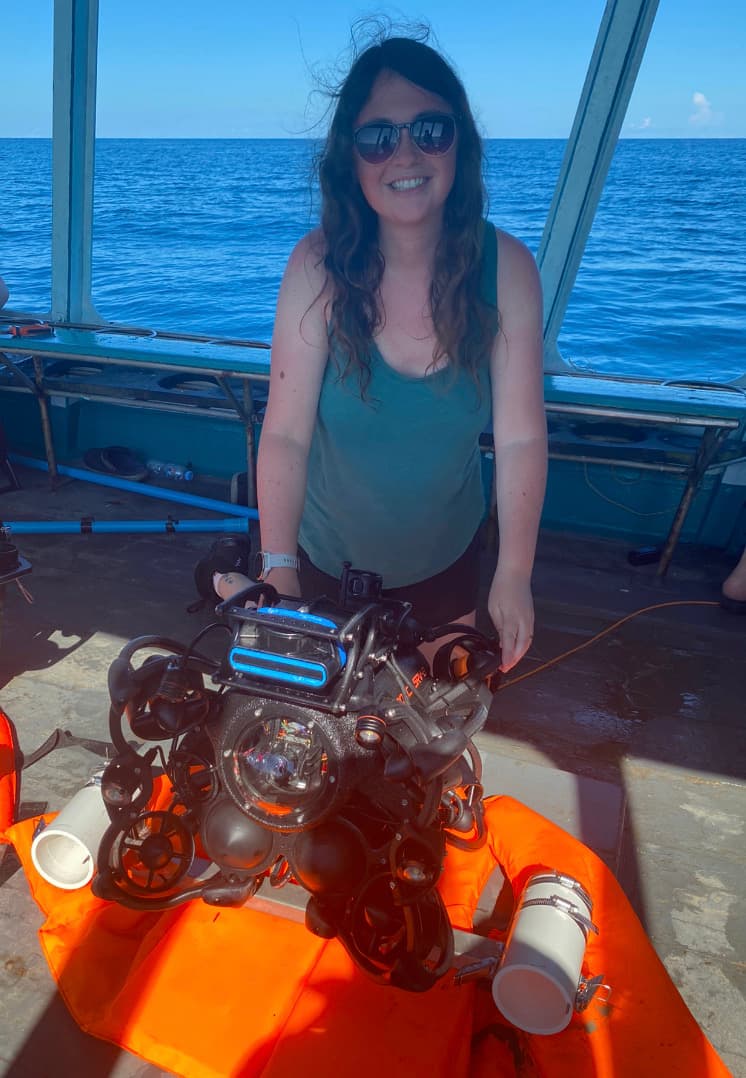
I am a Research Fellow in Marine Ecology on the NDC's Chevron Anchor Partnership. Decommissioning of oil and gas structures must be safe, efficient, environmentally sound, and cost effective and my research focuses on the environmental side. The research I do contributes to a better understanding of the impact decommissioning can have by assessing the marine ecosystem habitat value of oil and gas structures. In some instances, artificial habitats such as those provided by oil and gas structures have several ecological benefits, such as reef restoration of degrading communities, increasing prey availability and providing a refuge for fish as well as promoting an increase of biomass of benthic invertebrates. These structures can support a high abundance and diversity of sessile invertebrates and fish, including species that are considered commercially and recreationally important and/or are of high conservation value, and attract marine mammals and birds. An improved understanding of marine communities on oil and gas structures, as well as their surrounding ecosystems, are key for informing decommissioning options. With decommissioning activities anticipated to rise, understanding the environmental effects of decommissioning and potential alternative use options has been identified as a priority research area which I am really excited to be a part of.
How do you usually start your day?
I typically start my day with a dog walk (we have a rescue border collie who needs lots of exercise!), calendar check, coffee and chat with colleagues when I'm in the NDC and respond to any unanswered emails. I have however just had a baby, so my morning routine will definitely have some extra steps when I return from maternity leave.
What brought you to the National Decommissioning Centre?
I have always felt that the key to change is the power of partnership. The substantial gap between research and industry hinders progression to achieve sustainable net zero decommissioning. The NDC provides a link to tackle these challenges with exciting opportunities and state of the art facilities. It was an easy decision for me!
What's your favourite thing about your job/research/project?
I thoroughly enjoy my position and am passionate about my research area. I have had the opportunity to work with industry and academic experts across the globe, and the cross-disciplinary and multi-factorial approach to achieve a common goal is fantastic - I learn something new every day! I have had the ability to be part of every step of my research, from fieldwork in Thailand to data analysis at the NDC and have always felt supported.
What are your work priorities at the moment?
I am currently working on multiple projects to assess the habitat value of oil and gas platforms and pipelines in different marine ecosystems. Work priorities include completing a couple of papers on the fish associations with platforms and natural habitats in Western Australia and the Gulf of Thailand and finalising a proposal for the next stage of research, using biochemical methods to establish the marine food webs and functional ecology of communities associated with oil and gas structures.
How do you like to relax outside work?
I enjoy travelling, hiking, scuba diving, meeting with friends for a coffee or cocktail (depending on the time of day!) and play French horn professionally in musicals and orchestras. However, sometimes nothing can beat a cup of tea in front of the telly cuddling the baby and dog and chatting to my husband about the day.
22 June 2023
- Kate Smith
-
Kate Smith
Professor in Counselling
1. Tell us about your role at the University.
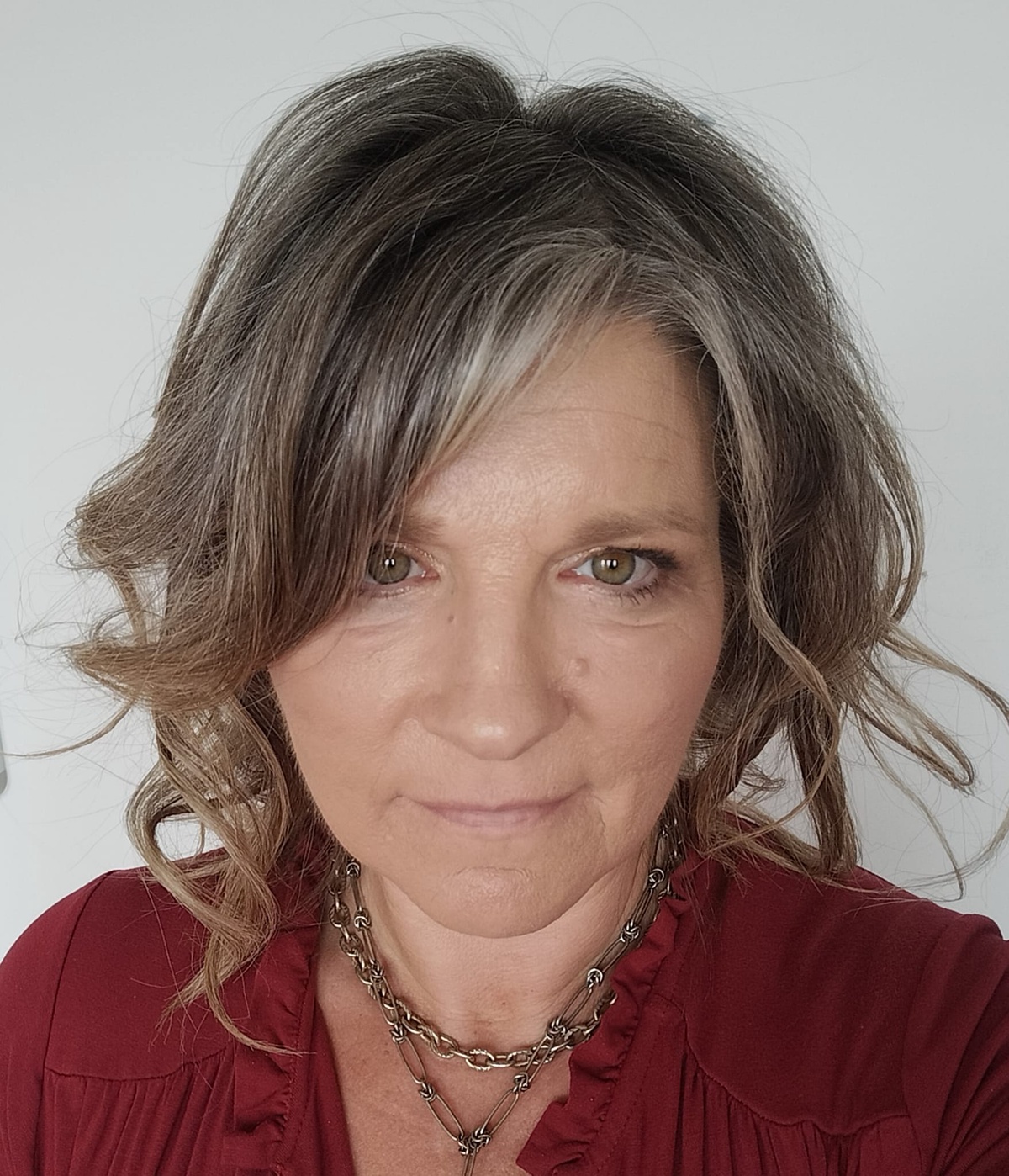
I am the new Professor of Counselling and Head of Department for Counselling, Wellbeing and Educational Psychology in the School of Education. I will be taking oversight of the undergraduate and postgraduate programmes in Counselling and Mindfulness, and the Aberdeen Counselling research clinic 'The Bounds'.
2. How do you usually start your day?
I try and get up early to walk my dog Salty. I'm looking forward to spending time on the beaches in Aberdeen. Once Salty is walked I start with my emails.
3. What brought you to the University of Aberdeen?
Aberdeen has been central to therapist training in Scotland for many years, and because of the current professional and social role of mental health practice it has the potential to grow in terms of training and research. I am delighted to have the opportunity to play a role in this.
4. What's your favourite thing about your job?
I love developing ideas and research and translating this in to practice for students and therapists. I am a Pluralistic Therapist and this means I work to support mental health practice and interventions to best suit the person - in whatever way they feel is most helpful. The primacy of the client in the work we do means that counselling and psychotherapy can take many different forms and approaches and there is a range of ways we can do this. As a result, I am always learning!
5. What are your work priorities at the moment?
Getting to know the staff and systems and thinking about how we can grow and develop our programmes and research at The Bounds. I also have a number of ongoing research projects including looking at counselling in Schools and a partnership with Winning Scotland who are looking at wellbeing interventions for young people. I have also recently established an online academic journal Pluralistic Practice, and as a Co-editor I am hoping to bring this 'in-house'.
6. How do you like to relax outside work?
I enjoy painting, walking Salty, cooking (Yotem Ottolenghi is my current guru) and I love to watch rugby so I'm looking forward to visiting Murrayfield.
7 June 2023
- Rebecca von Hellfeld
-
Rebecca von Hellfeld
Postdoctoral Research
Tell us about your role at the National Decommissioning Centre.
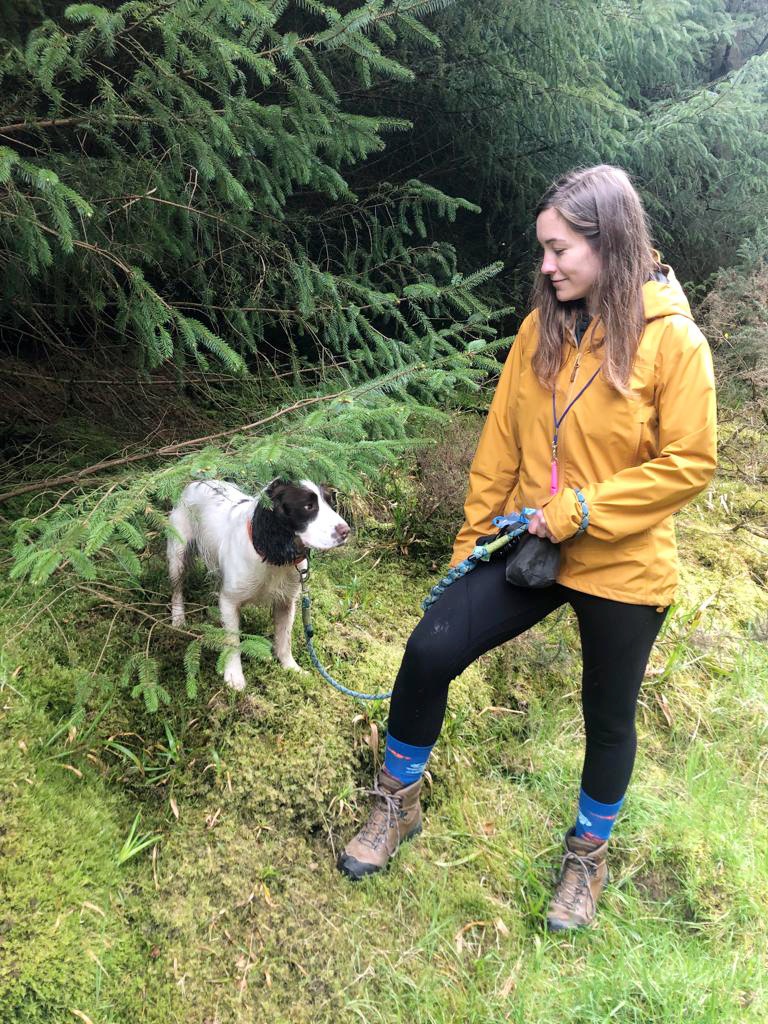
I focus on the potential implications of contaminants associated with offshore infrastructures and their impact on future economies and communities. With a lot of research determining the ecological use of such structures in the marine environment, it is important to understand whether adsorbed contaminants that remain post-cleaning could pose a risk for the marine ecosystem. My current 'contaminant of choice' is mercury because one of its forms, methylmercury, bioaccumulates and biomagnifies, as well as being a known neurotoxicant. Mercury is a naturally occurring heavy metal that is associated with hydrocarbon reservoirs and is adsorbed on extraction pipelines over time. Although cleaning methods are being trialled, residual mercury remains in pipelines. With the potential for in situ decommissioning of these structures, it is thus vital to understand the behaviour and availability of mercury in the marine environment.
How do you usually start your day?
With an espresso and the morning news, while cuddling my dog Scoby (a very energetic two-year-old springer spaniel). Once I'm in the office, I start with a to-do list for the day and respond to/send emails. I try to keep up-to-date with outreach events, upcoming conferences, and the newest publications, but especially in weeks with more intensive lab work, this falls to the end of the priority list.
What brought you to the National Decommissioning Centre?
My desire to link my understanding of ecotoxicology and the marine environment to a project that would allow me to have a real-world impact. Being in an environment where so many different fields of research and perspectives are combined has really helped me look at a problem from different angles.
What's your favourite thing about your job/research/project?
It never gets boring. I get to dabble in food web modelling, method development, and following the science where it takes me. The most rewarding thing is getting to put my research out there. I love attending conferences and representing the University, as well as getting my research published and starting a conversation about my findings.
What are your work priorities at the moment?
Discussing how my research could have more impact for stakeholders in different fields. This includes participating in working groups of different advisory bodies and research consortia, as well as direct contact to different marine industries and government departments.
How do you like to relax outside work?
Hiking and being out and about with my dog, gardening, arial fitness, cooking, and reading. I also volunteer for a German marine conservation organisation (DEEPWAVE e.V. ), in my free time, which allows me to put scientific findings into a context that everyone can understand and make informed decisions through.
24 May 2023
- Keith Jackson
-
Keith Jackson
Research Fellow at the National Decommissioning Centre
Tell us about your role at the National Decommissioning Centre.
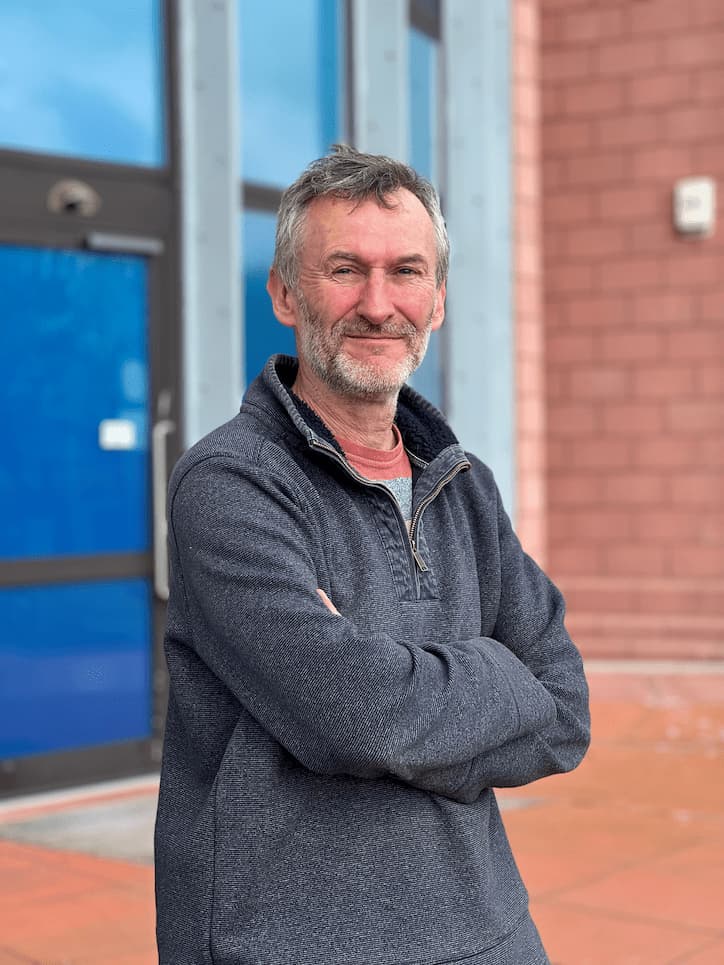
I am an engineer involved in the development of an underwater laser cutter for use in the decommissioning of oil infrastructure. This is a team effort and involves working closely with an industrial partner who is interested in this as a new technology to replace their current cutting tools. I started back in February to build on the successful conclusions of a previous prototyping project which I was involved in.
How do you usually start your day?
With tea. Then it varies with the stage of the project. Currently it is straight down to head-scratching design work. Later, in the build phase it will be all spanners and grease and then the test phase at the Newburgh site where we fire the cutter in our large water tank while hiding in an adjacent room well away from it. The final stage is to test at sea but it will still start with tea.
What brought you to the National Decommissioning Centre?
I have had a number of contracts at the Newburgh site including some from the days when it was a marine laboratory before becoming the NDC. I have a lot of experience of designing, building and deploying various wonderful contraptions to dangle or drop off ships for scientific projects and this experience translates well into projects involving subsea decommissioning. It was a natural progression to work at the NDC.
What's your favourite thing about your job/research/project?
It has all the essentials of an engineer's dream! Underwater laser cutting is not easy, and despite a long history of attempts, no-one has yet developed a practical system. So, the challenge is significant. The work will involve all stages of an engineering project from concept right through to deployment. This means there is an endless variety of interesting work including research, design, physical construction, testing, logistics for an offshore campaign and finally the thrill of offshore deployment where every ounce of resourcefulness is called on as it never quite goes to plan. The rest of the team are a good bunch to work with and are also engineers to the core. They don't talk football.
What are your work priorities at the moment?
Design! There are several of us responsible for different aspects of the system and we are all busy getting designs finalised so manufacture and purchasing can begin. Obviously, we need to get it right as something missed or wrong can cost dearly at a later stage. My current concern is to ensure the laser optics are correct and that the laser beam can be safety conveyed to the cutting head via a fibre-optic umbilical. I am also concerned with ensuring the laser generator which sits on deck can be controlled and used safely and reliably. A high-power laser beam can be an unwieldy and dangerous thing to use even in ideal conditions so their use on the deck of a ship is almost unheard of. It is crucial that all aspects of design must be fail-safe and robust.
How do you like to relax outside work?
Anything outdoors. Hill walking is good in the area and now my kids are starting to flee the nest I'm aiming to increase some of my neglected hobbies like sailing and caving. I like making music too and play brass in local bands and orchestras. I find beer works too.
17 May 2023
- Lawrence Wilcox
-
Lawrence Wilcox
Research Fellow at the National Decommissioning Centre
1. Tell us about your role at the National Decommissioning Centre.
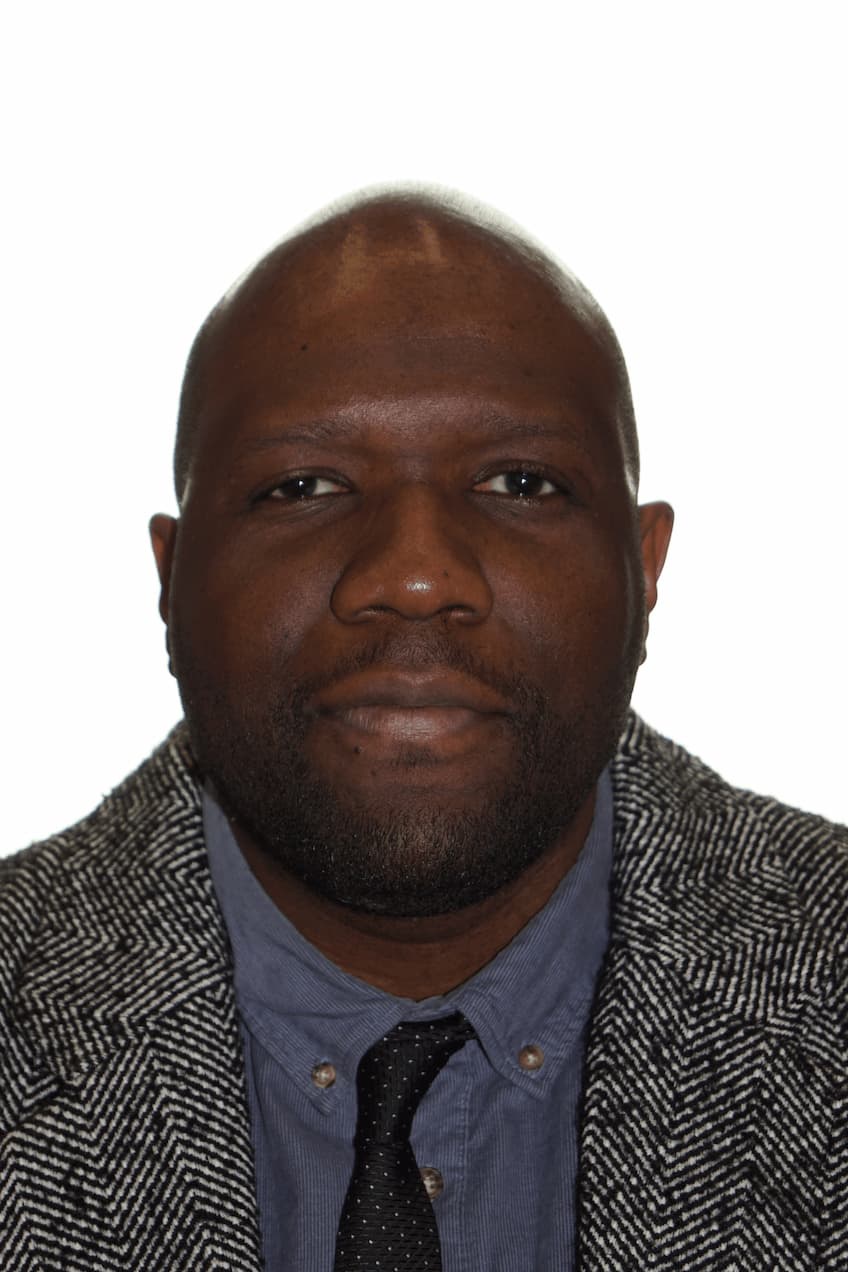
I am working as a Postdoctoral Research Fellow in offshore energy decarbonisation, infrastructure re-use, repurposing, and energy transition on the Data for Net Zero (D4NZ) project. I work with a team of researchers developing tools to quantify and reduce emissions associated with decommissioning of offshore energy assets, and the possibility to re-use and re-purpose existing infrastructure.
2. How do you usually start your day?
I typically start my day by reviewing my calendar and replying to all unanswered emails. On average, I have about two technical meetings per day that I aim to finish before noon.
3. What brought you to the National Decommissioning Centre?
It's simply the 'smart energy basin' project. It is a unique engineering project that has not been done anywhere else in the world and represents numerous opportunities for the energy transition. Also, the NDC is a state-of-the-art research and development facility that I had heard so much about before joining. The offer to work here was too good to turn down.
4. What's your favourite thing about your job/research/project?
I enjoy working with engineering experts to achieve a common goal, and the NDC provides a hub of leading experts in engineering and marine biology where we all work towards digitising the North Sea basin and reducing emissions associated with decommissioning. My colleagues are helpful and excited about our engineering projects which in turn drives me to deliver more.
5. What are your work priorities at the moment?
At the moment, I am developing a model for the reuse and repurposing of offshore oil and gas platforms at the end-of-life stage for the production of renewable energy. This is my top priority - and my sub-model will be compared and validated with a standard decommissioning process. Fingers crossed!
6. How do you like to relax outside work?
I enjoy meeting up with friends and colleagues after work, especially on Friday evenings. It's a great opportunity to catch up on non-work-related matters and know what everyone else's plans are for the coming weeks and months.
3 May 2023
- Carola MacCallum
-
Carola MacCallum (Caròla NicCaluim)
Gaelic Development Officer
1. Tell us about your role at the University.
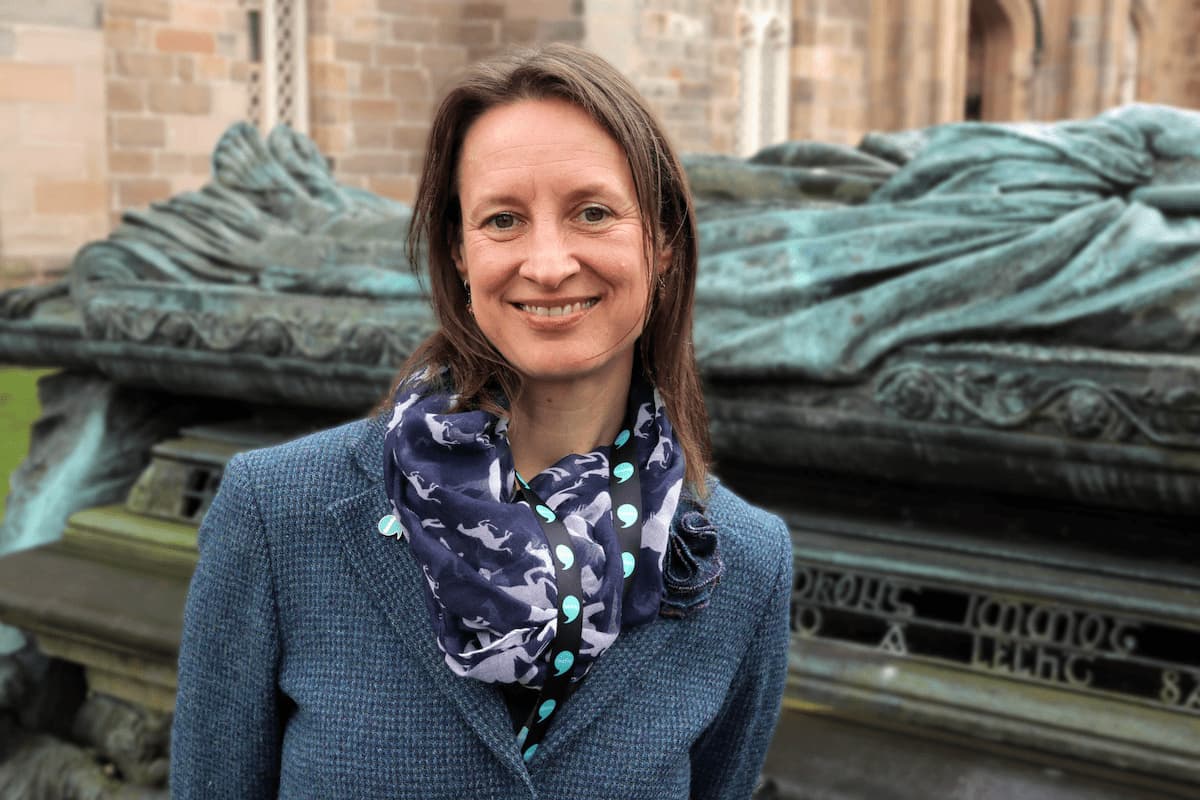
Tha mi nam Oifigear Leasachaidh Gàidhlig ùr aig Oilthigh Obar Dheathain. Bheir mi taic do Phlana Gàidhlig Oilthigh Obar Dheathain agus dùisgidh mi mothachadh air a' chànan air feadh an Oilthighe. Tha mi'n dòchas gun cruthaich mi barrachd chothroman gus an cànan ionnsachadh agus a chleachdadh airson luchd-obrach agus oileanach. Ma tha ùidh agaibh sa Ghàidhlig, nach cuir sibh fios thugam!
I'm the brand-new Gaelic Language Development Officer. It is my job to implement the University's Gaelic Language Plan, raise awareness of this beautiful language all throughout the University and create more opportunities for staff and students to learn and use Gaelic. So, if you are interested, get in touch with me.
2. How do you usually start your day?
A' gabhail cuairt luath leis a' chù agam.
With a brisk walk with my dog.
3. What brought you to the University of Aberdeen?
Rinn mi an t-iar-cheum agam aig Oilthigh Obar Dheathain agus tha mi air a bhith a' fuireach ann an Siorrachd Obar Dheathain bhon uair sin. 'S e tidsear-ciùil agus cànain a th' annam agus tha mi air a bhith an sàs ann an obair Leasachadh na Gàidhlig or fad beagan bhliadhnaichean a-nis. Chunnaic mi an sanas airson na h-obrach agus shaoil mi gun robh e dìreach foirfe dhomh.
I did my post graduate degree at the University and have been living here ever since. I'm a self-employed music and language teacher and have been involved in Gaelic Development work for a few years now. I saw the advert for the post and thought that it's just perfect for me.
4. What's your favourite thing about your job?
'S e deagh chothrom a th' ann gus Gàidhlig a bhrosnachadh agus tha mi a' faireachdainn gu bheil mi a' dèanamh rudeigin feumail agus buannachdail. Tha measgachadh na h-obrach agam a' còrdadh rium agus agus tha e math a bhith ag obair còmhla ri diofar dhaoine air àrainn cho beòthail agus eadar-mheasgte. Tha e cho sònraichte a bhith a' cluinntinn uiread de chànanan eadar-dhealaichte air an arainn.
Getting the opportunity to help promote Gaelic and feeling I'm 'doing my bit' for the language. I enjoy the variety of my work and working with different people on such a vibrant and diverse campus. It's wonderful hearing so many different languages in one place.
5. What are your work priorities at the moment?
Tha mi trang a' dèanamh cheanglaichean anns na roinnean eadar-dhealaichte den oilthigh agus a' togail mothachadh air a' Ghàidhlig agus Plana Gàidhlig an Oilthigh.
Making connections in all the different areas of the University and raising awareness of Gaelic and the University's Gaelic Language Plan.
6. How do you like to relax outside work?
'S toil leam a bhith a-muigh, coiseachd nam beann, marcachd 'endurance', a' gabhail cuairt leis a' chù againn. 'S toil leam a bhith bèicearachd cuideachd. Bhuannaich mi 'The Great Gaelic Bake off' dà thuras. Tha mi uabhasach moiteil às a sin!
I like all things outdoors, hill-walking, endurance (horse) riding, walking our dog. I also love baking and my claim to fame is I am a two-time winner of 'The Great Gaelic Bake Off'.
19 April 2023
- Clare Matysova
-
Clare Matysova
Senior Equality Diversity and Inclusion (EDI) Partner
1. Tell us about your role at the University.
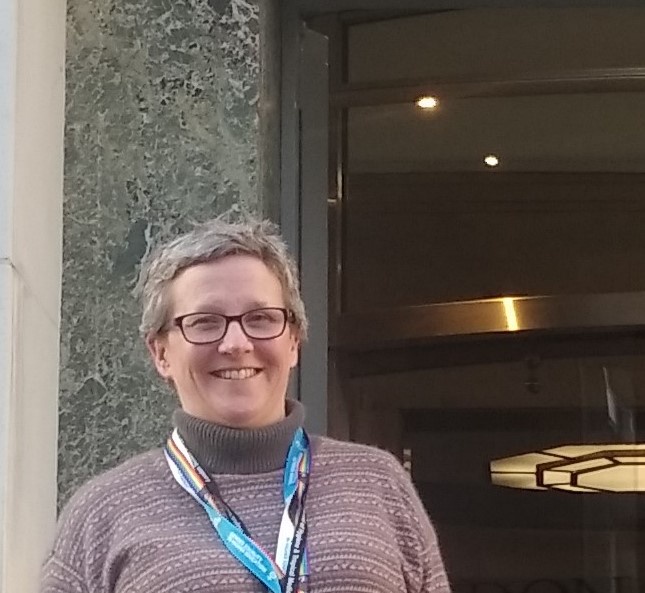
I started at the University of Aberdeen in February 2023 as Senior Equality Diversity and Inclusion (EDI) Partner. My role sits within the Organisational Development team, within the Directorate of People.
EDI touches on everything we do within the University. As part of the wider EDI team, I provide subject matter expertise in terms of identifying EDI issues and barriers at the University and possible solutions. I talk in detail about the role of an EDI practitioner in a blog that I wrote in my previous role. The blog explores what we actually mean by EDI work, what (or who) the levers of change are within an organisation and how we can all contribute to organisational change.
2. How do you usually start your day?
I am a part-time PhD student at the University of Leeds, and I am at the final write up stage. I find I can concentrate best in the morning, so I quite often get up early and do some work on my PhD before taking the children to school. My partner is in charge, getting the children breakfast and ready etc. and it is my turn in the evenings. I am glad to be getting to the end of what feels like quite a long (though rewarding) journey. My research focuses on gender equality and exploring the impact of the UK's shared parental leave policy from the perspective of couple's decision-making. I recently participated in a podcast for International Women's Day on equality versus equity in relation to my research.
On days that I am working at home, I love now being able to walk my children to school when we often debate many important topics such as the Wombles. I really appreciate this time as pre-pandemic I would have set off for an early commute to work to ensure I could be back in time for pick up.
On days that I am on campus, I go swimming before work. I was super excited to know that I would be able to do that again on moving to the University of Aberdeen. I used to go swimming before work in London before the Covid-19 pandemic, but the local pool never reopened.
3. What brought you to the University of Aberdeen?
My partner and I have been looking to relocate to Scotland from Kent, England for several years. With our 11-year-old soon to start secondary school, it was time to make that final decision.
I have been working in EDI-related roles within HE for the past 15 years. Previously, I worked at London School of Hygiene and Tropical Medicine (LSHTM), the University of East London and the University for the Creative Arts. I saw the post advertised at the University of Aberdeen, did some research on the role and university, and decided to apply.
4. What's your favourite thing about your job?
My approach is very much about embedding EDI into everything we do rather than seeing it as an add on. Building networks, collaboration, seeing the strategic links between things is crucial and something I really enjoy.
Having worked in EDI for a number of years, I am conscious of both the potential role of EDI teams and of the boundaries, frustrations and limitations. It can be both rewarding and frustrating as the pace of change can feel incredibly slow. I like seeing the small successes, as well as the bigger ones. We used to refer to this Tanzanian proverb in our training at LSHTM - Little by little, a little becomes a lot.
5. What are your work priorities at the moment?
I work alongside Maria-Grazia Cascio in supporting School EDI committees. Maria-Grazia works with the STEM Schools and Race Equality Steering Group. I work with the Business School and Schools of DHPA, Education, Law, LLMVC and Social Sciences. I will also be working on the University Gender Equality Steering Group which will soon be reconvened as a sub-committee of EDI committee.
Recently, I have also been working on the University's response to the National Equality Outcomes (NEOs). The Equality and Human Rights Commission (EHRC) and the Scottish Funding Council (SFC) recently launched a report which outlines the persistent inequalities in the tertiary education system and have developed a set of National Equality Outcomes (NEOs) to support work to tackle those inequalities. The NEOs provide the opportunity to consolidate work already undertaken and ongoing at the University aimed at creating a safe and inclusive culture using a data-driven approach.
6. How do you like to relax outside work?
Gardening. I have had an allotment for approx. 15 years. I have recently given my allotment in Kent up pending the move to Scotland and look forward to cultivating in the slightly different climate!
12 April 2023
- Heather May Morgan
-
1. Tell us about your role at the University.
.jpg)
The main work I have been leading in recent years is scaling up of international work-based learning for Masters students in Applied Health Sciences. I also support enhancement of work-based learning provision across the University, as an Employability and Skills Champion for my School and working towards our Aberdeen 2040 commitments, including through trialling and co-design of placement management software packages. I am a social scientist by background and teach on a range of programmes in various disciplines. My research interests are in digital health, qualitative research methods and authentic assessment in work-based learning. I have been a co-organiser of and contributor to Pedagogical Inquiry Network sessions for several years and I regularly give presentations for staff and students on social media use and digital scholarship, here and externally. I am an avid social media user and enthusiast about how these platforms can be used to promote science communication and public involvement in research, as well as personal and professional branding for engagement, career development and advertising. You can follow me on Twitter @hm_morgan and LinkedIn here .
2. How do you usually start your day?
On weekdays, I normally wake up before my alarm, which is set for 5:20am. I like to listen to the radio (Virgin), especially when Chris Evans comes on at 6:30am, and to read news headlines as I get ready to leave the house (often scrolling when brushing my teeth). New for 2023, I try to go for a walk when I first arrive at work, a loop of Foresterhill listening to news or podcasts and thinking. I get to my desk at around 8am and crack on with emails ahead of meetings and classes, etc. I'm looking forward to more of these walks being at Old Aberdeen going forward - how lucky are we to have this beautiful campus?! Weekend starts are much slower!
3. What brought you to the University of Aberdeen?
I first arrived here in September 2001 as a 17-year-old Law undergraduate. I'd finished school locally after my parents moved up from England and felt too young to move away and excited that, in Scotland, you could go to university after 5th year. I have basically never left. After completing my LLB (Hons), I registered for the Diploma in Legal Practice course, but decided last minute that a career as a Solicitor wasn't for me. I frantically searched for another programme to register on so that I could stay and ended up completing a further year as an undergraduate in Philosophy and Gender Studies, before taking up a place on a Master of Research degree, in social sciences. Through that year, I realised how much I loved research and planned my PhD, while getting involved in running an annual international interdisciplinary conference for postgraduates, which I coordinated for a few years. I completed my PhD in 2012, working with what was then Grampian Police, and subsequently secured a research assistant role at our Foresterhill Campus, based on methods in which I had gained expertise and topics of interest that could be seen through an alternative disciplinary lens. I worked for just over five years on various projects at our Health Services Research Unit, ahead of switching onto the teaching track when I was appointed as a Lecturer in 2017. In this role, I have been able to develop methods training for students, supervise their research projects and push forward work-based learning, enterprise and innovation! I am so privileged to work with students from all over the globe, primarily supporting transitions in their careers, including development of products and services, as well as skills. Fast forward to 2023 and it seems that I've been here for over 21 years now! I love this University, our people and our work. I am so excited to be continuing to celebrate and build on what we do here in my continuing and new roles.
4. What's your favourite thing about your job?
People. It is a joy to meet and work with so many clever, interesting, kind, passionate and creative people committed to making a difference. I am relishing the prospect of doing this even more over the next three years!
5. What are your work priorities at the moment?
Organising myself such that I will become 50:50 on my two roles from the beginning of April! Most of March will be spent getting set up for my summer work-based placement course, which has over 100 students currently registered, so sourcing and matching students to organisations and projects is a big one over the next few weeks. From April, I am really looking forward to getting out around the University, meeting with our Enterprise and Innovation Champions within Schools, as well as networking outside of the University. Working closely with our VPs for Regional Engagement and Research, as well as R&I colleagues, putting a three-year plan in place to deliver on my new role will also be a major focus. My remit will include: being academic lead for innovation, commercialisation and enterprise activities; enhancing entrepreneurial culture; and promoting start-up and spin-out activities.
6. How do you like to relax outside work?
I am a big fan of running. I completed my own marathon in 2021 and am just re-establishing a regular routine after having surgery to my knee because I had a nasty fall in the first mile! Currently, it is three x5k per week and I am on a 10-week streak. During my 2023 runs, I have been kept company by Alastair Campbell and Rory Stewart and their podcast series “The Rest is Politics” and “Leading”. I am also a big football fan and follow one of my brothers, who has played semi-professionally in various Scottish leagues over the last ten-plus years. So, on Saturday afternoons, I can usually be found at a side line, supporting the goalkeeper - I am grateful to have seen a lot of Scotland through chasing 90 minutes of the beautiful game. I love music too, especially from the 80s, and go to a lot of concerts. Last year, I became an aunt for the first and second times, with a third 'nibling' due in May, so a lot of my relaxation lately has involved cuddles with babies. I also enjoy cooking, strong black coffee and good red wine.
7 March 2023
- Weihao Han
-
1. Tell us about your role at the University.
.jpg)
I am a Lecturer in Finance at the Business School. I conduct research in finance, such as theoretical and empirical asset pricing, portfolio management, and machine learning. I also deliver some research-enhanced teaching to help students gain practical foundations for their careers.
2. How do you usually start your day?
Drinking some strong coffee because I think coffee can wake me up. Then, I may check my emails and news to establish my daily goals.
3. What brought you to the University of Aberdeen?
That is a long story. I finished my MSc degree in Glasgow and Scotland was my first impression of the UK. Therefore, I always wanted to return to Scotland and settle here. Luckily, the University of Aberdeen offered me a position so I can achieve my goals here.
4. What's your favourite thing about your job?
My favourite thing about my job can be divided into two aspects. First, I love teaching students practical knowledge and experience. The improvements they make can encourage me to go further. Second, I like challenging tasks, such as writing scientific papers, and solving them makes me happy.
5. What are your work priorities at the moment?
Publishing my works in the top journals and delivering my latest findings to my students. My goal is to let the students grasp the state-of-art development in the finance area.
6. How do you like to relax outside work?
Hiking. Going hiking can always get me relaxed and re-thinking future directions.
23 February 2023
- Selma Carson
-
1. Tell us about your role at the University.
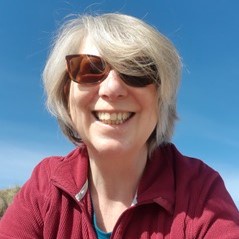
2. How do you usually start your day?
Coffee, coffee and more coffee!
3. What brought you to the University of Aberdeen?
After 10 years in my previous job with the University of Manchester, I was ready for a new challenge but hadn't decided in which direction to go. By happenstance, I saw the job opportunity here and am delighted to be returning to Scotland and joining a great university. I grew up near Glasgow, studied in Edinburgh and am now getting to know Aberdeen.
4. What's your favourite thing about your job?
I love the variety and sharing my knowledge of real estate with students and learning more about it too. One of the most satisfying things is seeing former students come back to give a presentation on their new careers to our current cohort.
5. What are your work priorities at the moment?
Dealing with 'information overload' as I get to know the people and systems here!
6. How do you like to relax outside work?
I'm currently focused on selling our home in Yorkshire and buying a new house here. I'm looking forward to being able to explore the countryside later this year with our two cocker spaniels.
16 February 2023
- Laura McCrimmon
-
Clinical Teaching Fellow at Aberdeen University Medical School
1. Tell us about your role at the University.
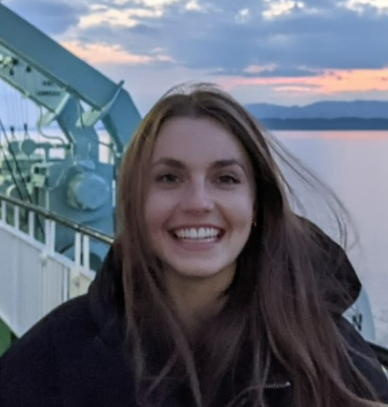
2. How do you usually start your day?
I usually start my day with a big bowl of porridge and taking my dog out for a walk in Victoria Park so I can see the sun rise. This is one of my favourite things about living in Aberdeen.
3. What brought you to the University of Aberdeen?
I studied Medicine at the University of Aberdeen prior to moving to Glasgow to undertake my foundation years as a junior doctor. While living in Glasgow I missed the culture of the University and the beauty of the surrounding city. I find the University to be an extremely welcoming and encouraging environment to work in where you are encouraged to take on challenges. The size of it and the city make it easier to forge meaningful connections and feel integrated within the University and community at large.
4. What's your favourite thing about your job?
My favourite thing about my job is working within an incredibly fun and supportive team and having the opportunity to work with individuals who encourage me to grow as a clinician, teacher, researcher and professional. There is no aspiration too big and if you work hard there are people willing to get on board and help. There is a wealth of knowledge within the University which is a privilege to tap in to and learn from.
5. What are your work priorities at the moment?
- Running events for Climate Week North-East within the medical school.
- Being a part of informing the undergraduate medical curriculum and working healthcare practitioners about sustainability in medical practise.
- Teaching undergraduate students about how lifestyle can affect pathology and the evidence behind using it as treatment or adjunct to medical care.
- Empowering medical students to use the above knowledge in counselling patients.
6. How do you like to relax outside work?
Long before I became a medic I was, and continue to be, a Yoga teacher. Therefore, outside of work I spend a lot of time both practising and teaching Yoga. I also have a dog and love being outdoors, so I spend a lot of time looking at the weather and travelling around Scotland to find beautiful, dry places to walk. I have always loved reading and over the last year I have thoroughly enjoyed reading a Japanese novel followed by a non-fiction book about nature on rotation and I plan to keep that up this year too. So far, my favourites have been Beautiful Star by Yukio Mishima and Losing Eden by Lucy Jones.
09 February 2023
- Kirsty Watt
-
- Tell us about your role at the University.
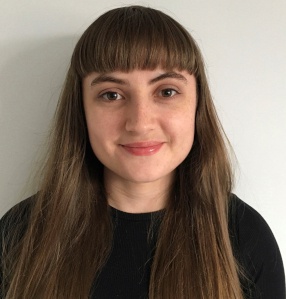
I am the new Digital Content Officer within the Digital Communications team. Some of my duties include assisting colleagues with any website related queries, editing website content, and helping with the preparation involved in moving the University website to a new Content Management system.
- How do you usually start your day?
I always start my day with some coffee!
- What brought you to the University of Aberdeen?
The University seemed like a fantastic place to gain further knowledge and experience of digital communications. I am really looking forward to learning more about my role and the wider directorate of External Relations.
- What's your favourite thing about your job?
I have only been in the job for a couple of weeks, but everyone has been super nice and welcoming since I joined. So, I think my favourite thing so far has been chatting to my new colleagues and finding out about their interests and their roles within the University.
- What are your work priorities at the moment?
Since I have only just started at the University, I have been doing a lot of training. However, I have also been getting involved in some auditing and content review work which has been interesting. This work will help to prepare the University website for the migration to our new Content Management system.
- How do you like to relax outside work?
In my spare time I volunteer for a parrot rescue charity. When I was growing up, I always had pet birds and I think parrots are fascinating. Therefore, I find it very rewarding to be able to assist the charity with their good work in helping parrots of all sizes find new and loving homes.
26 January 2023
- Tell us about your role at the University.
- Saskia Harper
-
- Tell us about your role at the University.
.jpg)
I work as the Communications Coordinator in the comms team, which means it's my responsibility to ensure you get your weekly staff ezine and daily University in the News updates straight to your inbox.
If you'd like to sign up for University in the News updates, email communications@abdn.ac.uk
- How do you usually start your day?
My mornings usually start in a bit of a rush, with a karaoke session in the car thrown in before work.
- What brought you to the University of Aberdeen?
I had been looking to make the move into communications for a while, after a few years of working in journalism. When I saw the job advertised at the University, it seemed like the perfect place to start a career in comms.
- What's your favourite thing about your job?
Everyone is so friendly and helpful and it's a great role for getting to meet so many people.
- What are your work priorities at the moment?
Getting to grips with things! I'm only in my second week, so there's still a lot of learning to do. But my main priority at the moment is making sure the daily University in the News updates and weekly staff newsletter go out on time.
- How do you like to relax outside work?
Reading or guiltily watching reality TV.
19 January 2023
- Tell us about your role at the University.
- Tamsin Gray
-
Fitness fanatic Tamsin Grey has been tasked with transforming the Rowett Institute's digital media presence. It's still early days but find out how she's making her mark and what she likes to do in her spare time.
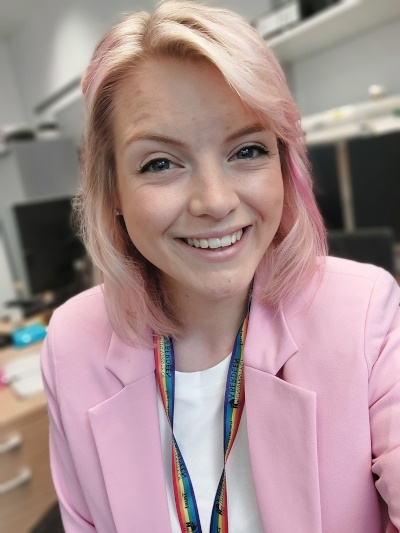
I work as the Communications and Digital Media Officer for the Rowett Institute so my role focuses on promoting the work the institute does, particularly research supported by RESAS. Social media is my main focus - creating content to showcase events, research and visits to the institute and engaging with stakeholders and the public.
2. How do you usually start your day?
Every day starts with some social media scrolling before a walk with my two spaniel crosses around Ellon followed by breakfast.
3. What brought you to the University of Aberdeen?
I studied an LLB Hons Degree in Law at Aberdeen and loved the atmosphere of the university. When the job came up, I jumped at the chance to work here. Growing up in Aberdeenshire, it's nice to stay local and return to a respected establishment like the University for employment.
4. What's your favourite thing about your job?
Speaking to people - it's such a sociable role and I get to interact with a wide range of individuals and teams. The work is also varied and incredibly interesting, especially when any of the research is involved. I'm also a bit of a fitness nut so learning about the nutrition and health findings is fascinating.
5. What are your work priorities at the moment?
My current focus is rebuilding the Rowett's social media. I'm hoping to make the social channels cohesive and engaging, with lots of opportunities for interaction. The overarching priority is showcasing the institute in a positive manner and making it accessible to internal and external stakeholders.
6. How do you like to relax outside work?
In my spare time, I love to run and jump rope. As part of that, I have a fitness-focused Instagram account so I can usually be found flicking through it and uploading reels daily. I also love walks with my dogs and time with friends and family.
04 August 2022
- Vicky Simpson
-
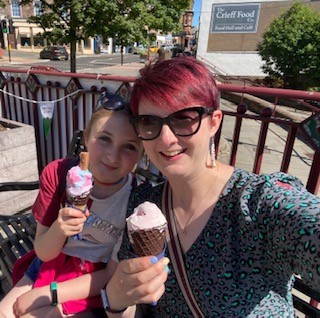
1. Tell us about your role at the University
I have recently joined the School of Education as a Lecturer (Scholarship) in Early Childhood Education.
2. How do you usually start your day?
I usually start the day with a quick HIIT home workout before the challenge of getting my children up and ready for the day ahead!
3. What brought you to the University of Aberdeen?
I was very fortunate to have studied here as an education student, so when the position came up, it felt like a natural next step and an exciting new challenge for me professionally.
4. What's your favourite thing about your job?
Supporting students to become the best practitioners and teachers they can be, ultimately providing the best possible outcomes for our children and families.
5. What are your work priorities at the moment?
Reviewing all the courses I will be supporting on, developing new modules, and getting to know the wider staff team at the School of Education.
6. How do you like to relax outside work?
I enjoy walking, cooking and spending quality time with my friends and family
21 July 2022
- Matthew Clarke
-
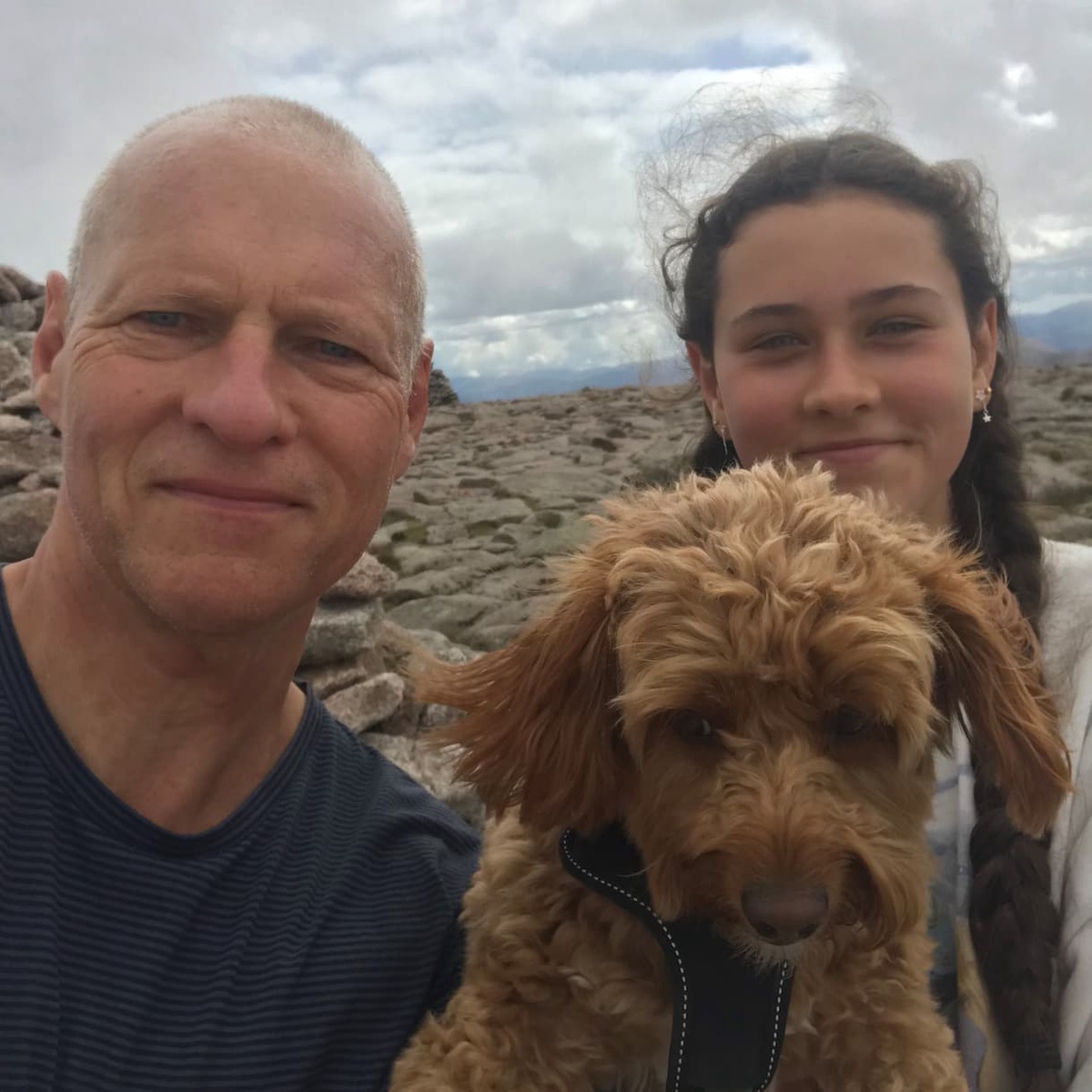
Tell us about your role at the University
My role is to work with colleagues in the School of Education to strengthen and enhance the development and growth of research across the school.
How do you usually start your day?
My days begin with taking Bailey, our dog, out for our morning walk, after which coffee is the next priority!
What brought you to the University of Aberdeen?
I was attracted by the University's history, international and research strength, as well as the opportunity work with colleagues in Education to further strengthen and enhance our research.
What's your favourite thing about your job?
I love working with colleagues and students to develop and share exciting new ideas and perspectives in relation to educational research.
What are your work priorities?
I'm looking forward to meeting and working with new colleagues in the School of Education and beyond and helping to shape our future directions.
How do you like to relax outside work?
I love spending time in the great outdoors but also have passions for coffee, cafes and films.
28 April 2022
- Yaodong Liu
-
One of the newest recruits to the Business School, Finance Lecturer Yaodong Liu tells us about his love of Scotland, football and how coffee is the key to getting up in the morning.
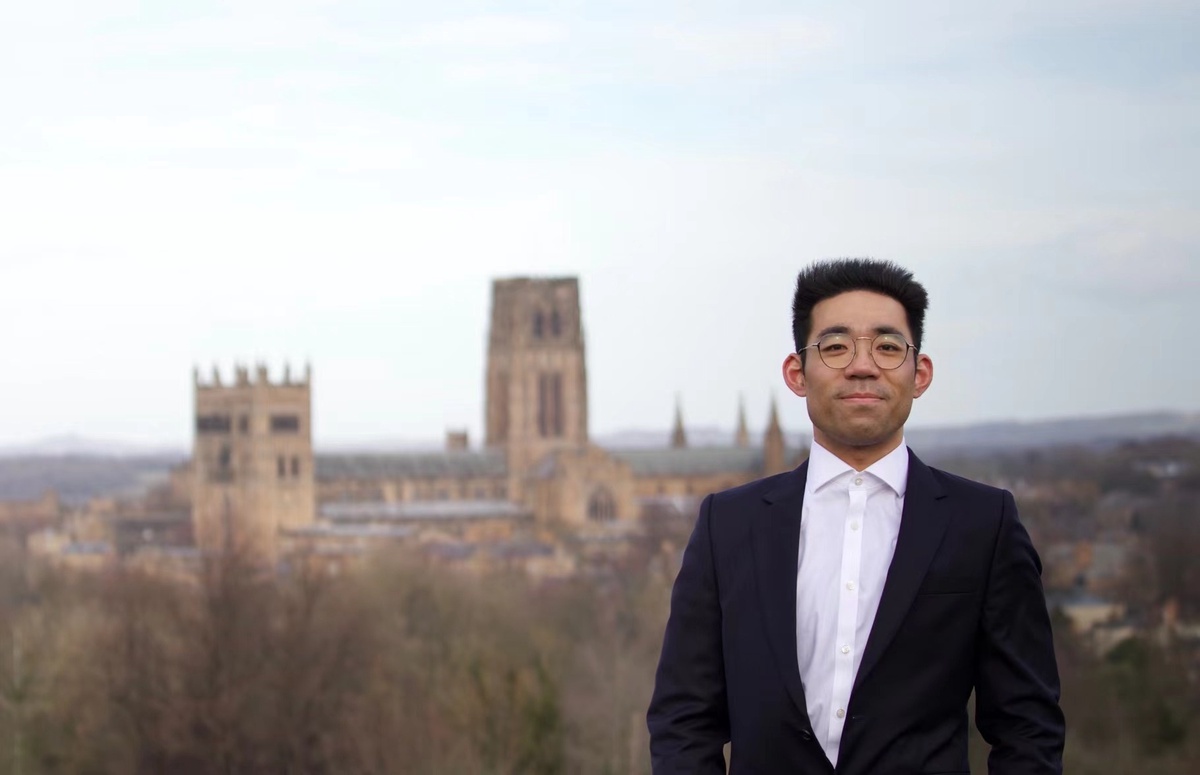
I've been a lecturer in finance within the Business School since February. I also carry out the duties of the discipline level accreditation champion.
How do you usually start your day?
Definitely coffee! I usually start my day with my first cup of coffee and breakfast. A warm breakfast makes me more conscious and energetic when I wake up early. I usually get up before 7am and set up a plan for the day before work to make sure that everything is in order.
What brought you to the University of Aberdeen?
I spent a lovely year in Scotland (St Andrews), so I always looked forward to the opportunity to come back. When I saw the job vacancy advertised in Aberdeen, I didn't hesitate to apply.
What's your favourite thing about your job?
After I joined the University of Aberdeen, I found that I had the opportunity to interact with extraordinary people. The Business School has a very strong finance group and my research background focuses on behavioural and corporate finance, which fits in well with the research interests of the group. Therefore, I think it is a very good environment for me to develop my career and research.
What are your work priorities at the moment?
Understanding the specific requirements of my role and getting to know my colleagues are my primary goals in the short term. Beyond that, I will dedicate myself to a career in behavioural finance, as my current research provides me with expertise in the relevant literature, methodology and the development of new ideas. Teaching is, of course, also very important. I will aim to bring high-quality research-based teaching into the classroom and ensure that all cutting-edge research is integrated into the syllabus.
How do you like to relax outside work?
I am a football fan and I often watch matches during my breaks. At the same time I am also an audiophile. It is always pleasant to listen to a piece of music in a peaceful atmosphere. In addition, I exercise from time to time to get rid of my sedentary habits.
31 March 2022
- David Clough
-
Chair in Theology and Applied Sciences, School of Divinity, History, Philosophy and Art History
1. Tell us about your role at the University.
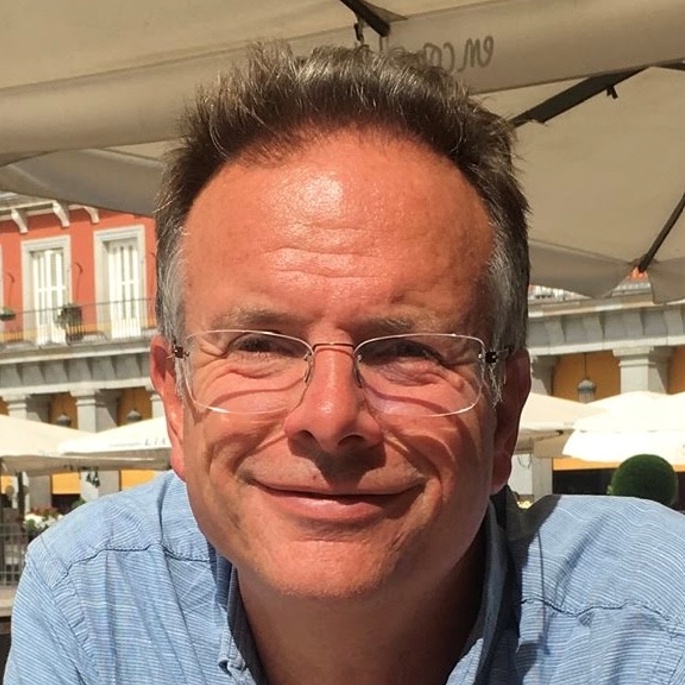
My research focuses on how Christian theology and ethics engage the more-than-human world. I have a particular interest in the place of animals in theology and ethics. I'm looking to begin conversations with colleagues in applied sciences about projects that bridge science and ethics with a view to addressing pressing issues in relation to animals and our shared environment.
I'm Principal Investigator for the AHRC-funded Christian Ethics of Farmed Animal Welfare (CEFAW) project, which in 2022 is working to develop additional impacts from the project through working with RE teachers, a pilot group of church schools, and institutions providing training for those entering church ministry.
2. How do you usually start your day?
For the last two summers we've taken wonderful family holidays in the Outer Hebrides: Harris in 2020 and North Uist last year. That prompted an interest in learning Gaelic and I'm still making a few minutes for Duolingo's course part of the start of my day. I aim to get some exercise before I sit down at my desk, which is usually a quick bike ride. I'm currently trying to keep time and headspace for academic writing at the start of each day by beginning with that and avoiding email until later.
3. What brought you to the University of Aberdeen?
In the next stage of my career, I want to focus on mentoring the next generation of scholars and find support for new research projects aimed at reshaping attitudes and practice in relation to the more-than-human world. It's already clear to me that Aberdeen is a great base for that work. The chance to spend time with some great new colleagues is another big plus. I also look forward to spending time on the North-East coast and in the Highlands.
4. What's your favourite thing about your job?
I sometimes say that I never got round to leaving university because I enjoyed it too much. I still like diving into new questions and new areas of academic literature just as I did as an undergraduate. I look forward to good seminar discussions and after-hours academic conversation over beer. I had a great time on the CEFAW project visiting farms in the company of a veterinary farm animal welfare specialist on the Research Team and have an increasing appetite for the stimulus of that kind of interdisciplinary collaboration.
5. What are your work priorities at the moment?
Alongside getting the CEFAW Education impact project going, I'm completing a co-authored monograph on the Christian Ethics of Farmed Animal Welfare and getting to grips with a conference paper for the Society for the Study of Theology's conference 'The End of the World' in March. Assuming it doesn't, I'll then be continuing to develop my ideas for a new research project on the ethics of food systems.
6. How do you like to relax outside work?
My favourite thing is to be in wild places, up hills and mountains, or swimming, or canoeing. I treasure times like the moment last summer when we reached the top of Eabhal on North Uist and watched a golden eagle circling just below us. Closer to home I enjoy cycling, songs sung round a fire, and dramas on film, TV, or radio. I've just signed up to be part of a production of the musical 'Me and My Girl' in June.
10 March 2022
- Christine Wu
-
Getting to grips with International student recruitment in North Asia is Christine Wu, whose love of Scotland and outdoor adventure prompted a career move.

I'm working with the International Recruitment team, generally focused on the Chinese market with Yu Qi and two in-country colleagues, Daisy Ma and Xuexin Chen.
2. How do you usually start your day?
I love to have a proper breakfast, just to grab some energy and I also swim in the morning sometimes as it makes me feel fresh. Our team have a casual chat every day before we start working, which I really like.
3. What brought you to the University of Aberdeen?
I used to work with our team members previously as a business partner. I know the people are really lovely, warm and caring and I found what they do really matches with what I like work-wise, so when I got the chance I quickly made my decision.
4. What's your favourite thing about your job?
Before I joined the 6. University I thought it would be getting to take another step in building my career and having more opportunities based on my previous working experience. Since joining the International Recruitment team however I really enjoy the atmosphere in the team. Everyone is so honest and supportive, I don't feel any sense of distance and that's really important to me.
5. What are your work priorities at the moment?
I'm focusing on familiarising myself with everything, such as who I'm working with, the processes, getting to know the University and who to speak to if I can't solve a problem - but I'd like to do that quickly and be able to support the team.
How do you like to relax outside work?
I really enjoy swimming and playing badminton, or outdoor walks. The views in Scotland brought me here so I really like to enjoy some outdoor adventures.
24 February 2022
- Gillian Cooper
-
Grants Academy Administrator, AFC front row season ticket holder and quiz master Gillian Cooper, tells us about her morning routine and how working at the University is very much a family affair.
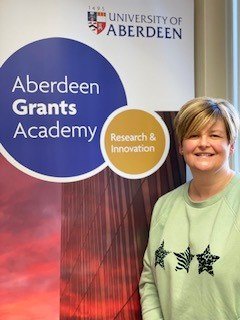
I'm the Administrator for the Grants Academy and I support the team by managing our flagship events including our Conversations on… series, Funder Insights sessions, ResearchBites programme and the Bootcamp. I've probably seen many of you on Teams as we have delivered our programme online for the past two years. Many of our events support the aims of the Aberdeen 2040 Interdisciplinary Challenges and I currently provided dedicated support to the Directors of our Interdisciplinary Centres.
I also undertake a wide range of administrative tasks such as financial reporting, data collection and dissemination of funding opportunities and work closely with the Schools and Grants Academy team. The role is never dull and I've learned so much since I joined the team.
On a lighter note, I am the quiz master in R&I and organise the weekly quiz for the whole department. It provides some humour and tests the knowledge of colleagues during a much-needed coffee break on a Friday. I am also one of the editors of our internal newsletter - Corridor Tales - where we share the good news in our lives.
2. How do you usually start your day?
In a rush, as I like to get every last minute in my bed before I have to get up which results in getting my 10 year old son up and organised within a 40 minute window before he leaves. Then I breathe and finish getting myself ready and heading to work for a cuppa. Some days, if my husband is home I escape early and walk to work, which are the best days!
3. What brought you to the University of Aberdeen?
I started after my maternity leave, working at the University is in the family with my mum having worked here and my sister who still works here. I initially joined the University on a temporary contract in the CPD team within R&I, which was 12 years ago in September. I can't imagine working anywhere else now.
4. What's your favourite thing about your job?
The variety! My job involves so many different things now that each day it can take a different path. I also like the event management side as I get to meet people from across the University and learn more about their research and wider interests.
5. What are your work priorities at the moment?
Just now is busy with funding events and ResearchBites being scheduled and ensuring these are promoted across the institution.
6. How do you like to relax outside work?
I like to go walking and occasionally cycling as damage limitation for my chocolate addiction. I am a big AFC fan and have main stand front row season tickets with the family and we go to all the home games. I have been known to loiter outside to catch a selfie with members of the team!! Having moved house in September I also enjoy compiling 'to do' lists for my other half.
24 February 2022
- Rowan Cruickshank
-
Meet cat-fan Rowan Cruickshank, the latest addition to the UK Student Recruitment Team as she spills the beans on her work and life passions.
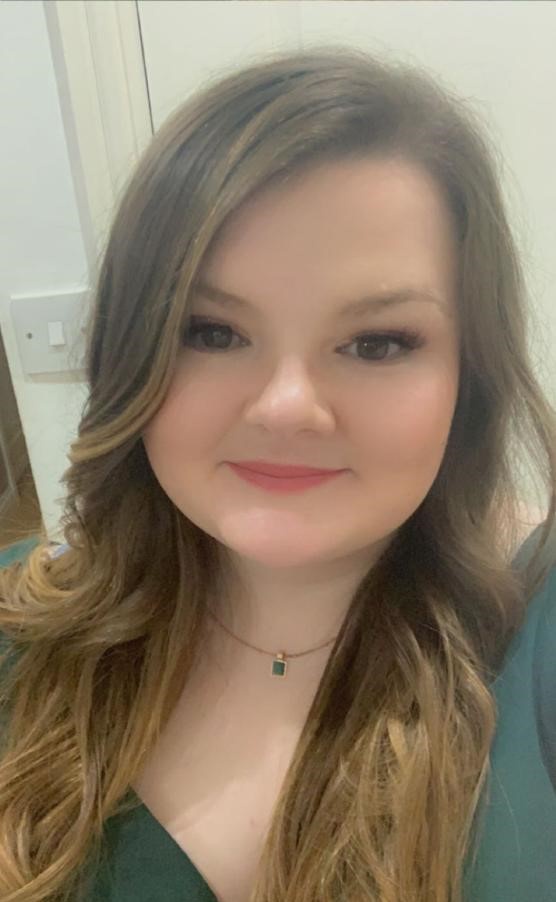
I am part of the UK Student Recruitment team where our main goal is to support and guide applicants from the UK when they are making their University choices and to promote the University of Aberdeen brand.
2. How do you usually start your day?
Usually just pet my cats then take a shower. I'm a night person so my mornings are always a bit slow.
3. What brought you to the University of Aberdeen?
I loved my time at University and I have an Education degree so I became interested in alternative education jobs to teaching which led to being interested in working in higher education. I've lived in Aberdeenshire my whole life, so it became the perfect combination for me to work at the University.
4. What's your favourite thing about your job?
I love how well I get along with my colleagues - especially because we are all obsessed with our cats. I also really enjoy the variety of work in my job and that I get to do lots of exciting things like travel and filming tours for the website.
5. What are your work priorities at the moment?
My biggest priority is beginning to understand all the different aspects of my role and to build in my confidence and knowledge of the recruitment information.
6. How do you like to relax outside work?
I like to ice skate and have been taking some lessons for a while. I also really like shopping, having dinner with my friends, karaoke and board games.
17 February 2022
- Kirsty Shand
-
Jigsaw puzzle aficionado Kirsty Shand is the new Administration Assistant at the School of Education. Find out how she likes to spend her time in and outside of work.
1. Tell us about your role at the University.
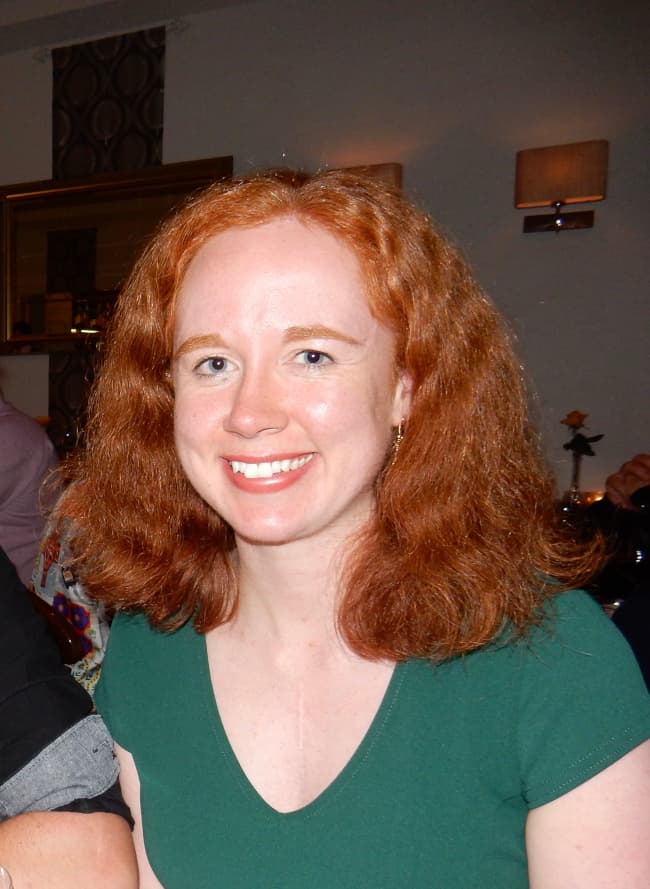
2. How do you usually start your day?
Half-asleep with as little social interaction as possible!
3. What brought you to the University of Aberdeen?
I wanted to work for a university and, as I lived in Aberdeen a few years ago and really enjoyed it, the University of Aberdeen was an obvious choice.
4. What's your favourite thing about your job?
I'm only in my third week, so I've not got properly into it yet, but everyone has been incredibly friendly and welcoming which has been wonderful, particularly since I've just moved to Aberdeen.
5. What are your work priorities at the moment?
Planning a visit for a group of academics coming over from the University of Iceland in March, getting the records for academic annual leave up to date, and learning how to do everything.
6. How do you like to relax outside work?
I enjoy playing my keyboard, doing jigsaw puzzles, catching up with family and friends, and watching TV.
10 February 2022
- Ron Peter Pulimoottil
-

I am so excited to join the University of Aberdeen as International Officer for Sub-Saharan Africa. My role is to contribute to the University's international recruitment, primarily focussing on increasing the number of international students and raising the profile of the University in Sub-Saharan Africa.
- How do you usually start your day?
I usually start the day by thanking God Almighty for another beautiful day. This is usually followed by a cup of tea. Further, I plan the day ahead.
- What brought you to the University of Aberdeen?
My wife is a research student with the University and I learned quite a lot from her about the history, working culture and opportunities for personal and professional development provided by the University. I was also influenced by the University's vision for 2040. This instilled a thought in me, 'why not the University of Aberdeen'. I decided to utilise my skills and experiences in the area to contribute significantly to this University.
- What's your favourite thing about your job?
The opportunity I get to engage with different people and help them to pursue their desire to study. Also the opportunity to learn, coordinate with different directorate sections like admissions, enquires and digital marketing.
- What are your work priorities at the moment?
My focus is on the next intake to attract more potential students to the University. I am also looking at ways to increase our partner networks in the region.
- How do you like to relax outside work?
I enjoy going for a walk and am an avid photographer. I also find ways to spend more time with my family.
04 February 2022
- Charlaine Simpson
-
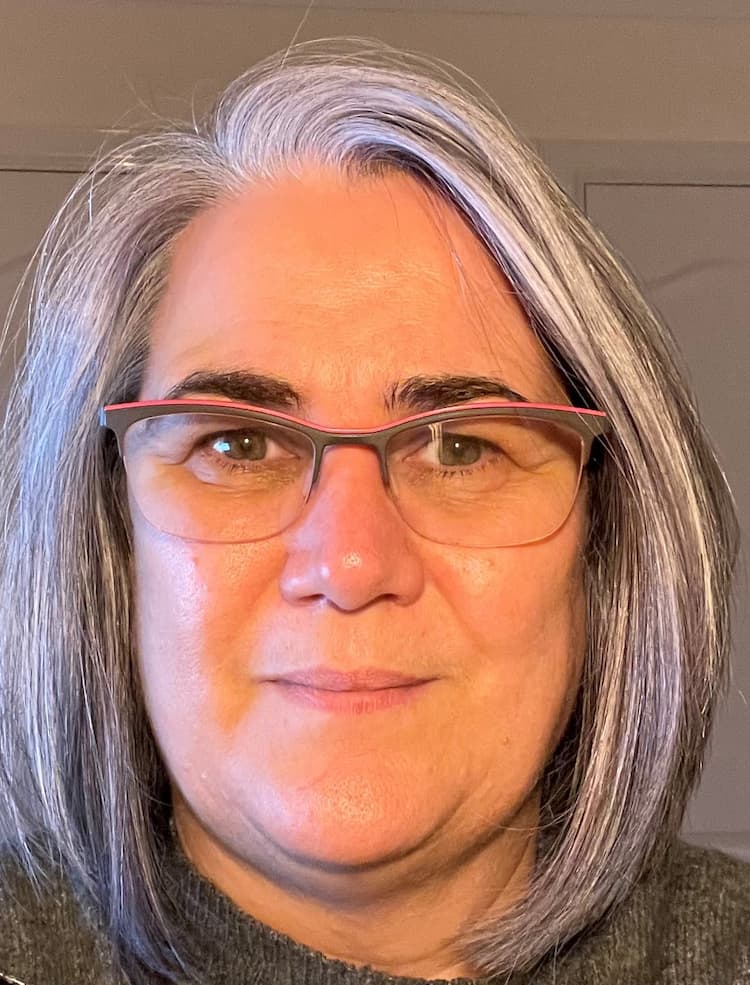
I have recently joined the School of Education in the role of Head of Postgraduate Taught and Professional Learning.
- How do you usually start your day?
20 minutes of yoga and then coffee!
- What brought you to the University of Aberdeen?
A new challenge and a brilliant opportunity for professional growth.
- What's your favourite thing about your job?
The opportunity to support teachers to continue to develop in their professional practice, because our children and young people deserve the best teachers.
- What are your work priorities at the moment?
Getting to know people I am working with and the programmes I am supporting.
- How do you like to relax outside work?
Family time, reading, yoga and I am an avid NBA basketball fan.
27 January 2022
- David Blackbourn
-
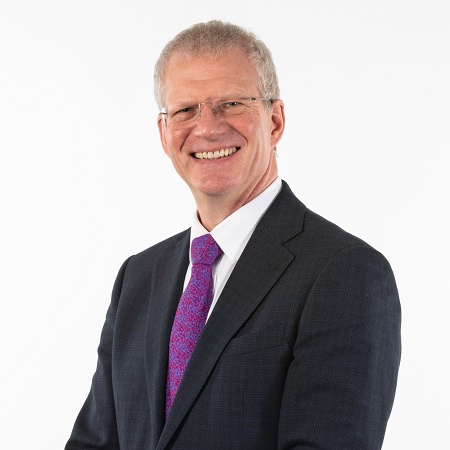
I've just started here, on January 6th 2022 in my role as Director of the Institute of Medical Sciences.
2. How do you usually start your day?
Where possible, I try to protect my calendar from meetings during the period 8-10am as this is one of my most productive times of the day for thinking, planning, creating and/or innovating. Or maybe that productivity is simply the consequence of my pot of coffee!
3. What brought you to the University of Aberdeen?
Although born and bred in Lincolnshire, I've always had a soft spot for Scotland, which goes back to family caravanning holidays spent in this beautiful country when I was a young boy. My father and I also used to fly birds of prey; he flew a golden eagle, which is inextricably linked to Scotland in my mind's eye. Cementing this affinity to Scotland was my first independent academic position as a lecturer at the University of Glasgow, leading my wife Lisa and I to relocate to Glasgow, where our sons were born. Dare I say they are now 20 (Tom) and 18 (Will). Where did that time go? I then moved first to the University of Birmingham for eight years and then the University of Surrey for a further eight years. A friend and colleague told me about this vacancy at the University of Aberdeen and when I read the role description and learned about the fabulous work that was being undertaken here, I decided I wanted to be part of the University of Aberdeen community. That was reinforced by my pre-interview visit and meeting passionate and committed people who are now my colleagues.
4. What's your favourite thing about your job?
My colleagues here at Aberdeen.
5. What are your work priorities at the moment?
To get to know all my colleagues in the Institute of Medical Sciences as far as possible and for them to get to know me, preferably through one-to-one meetings, when the SARS-CoV-2 virus condescends to allow us. I have to say though, so far, we're doing quite well at meeting face-to-face, where colleagues feel comfortable to do so. Of course, I'm fully vaccinated and boosted, but not complacent! I'm keen to learn from them what is going well and how in my role I can help them achieve their goals at work.
6. How do you like to relax outside work?
Fly fishing has been a life-long love of mine and tying fishing flies. I also enjoy tinkering with old cars when I have time.
20 January 2022
2022 - 2025 Team profiles
- The Sustainability Team
-
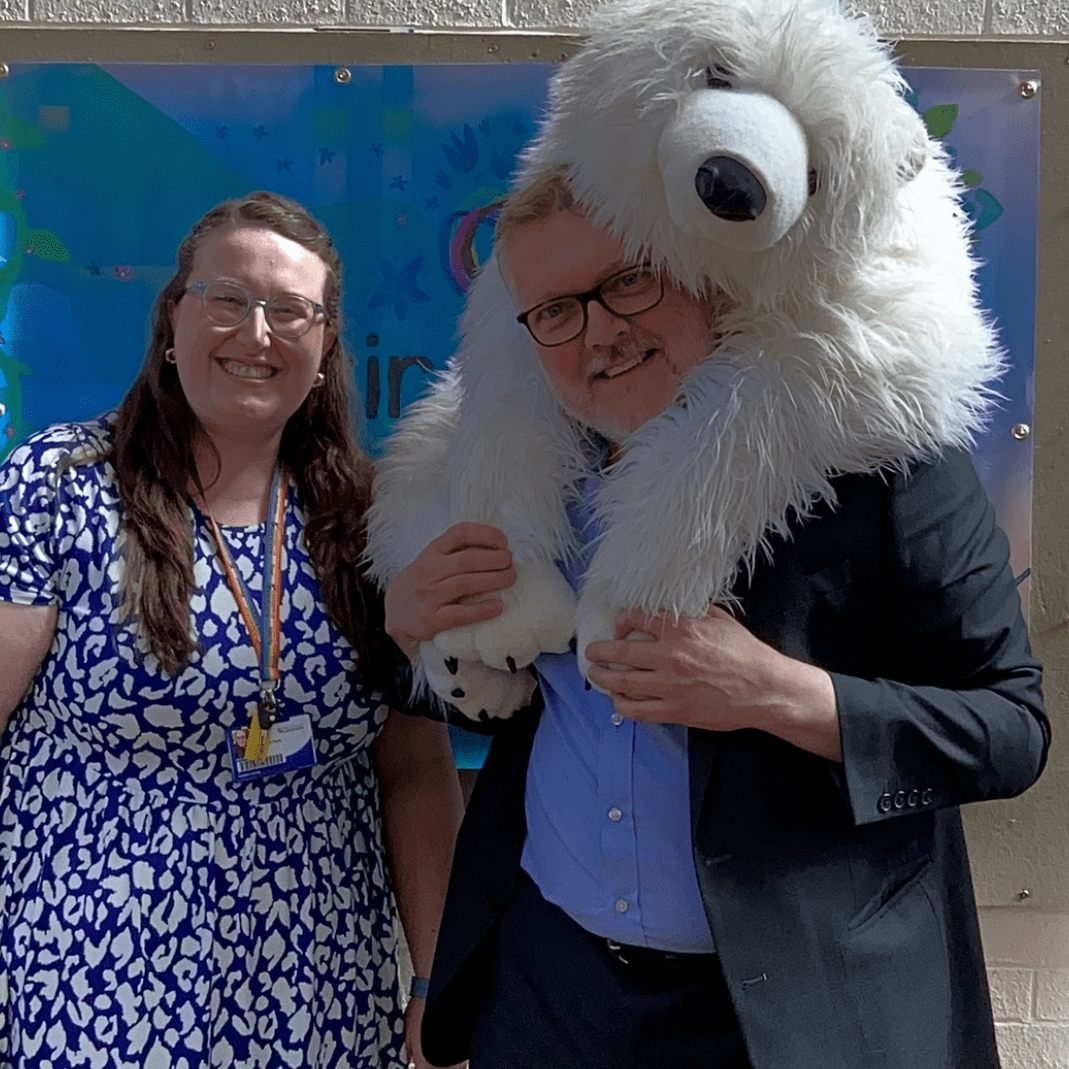
What is your team’s name?
We are the Sustainability team, one of six functional units within the wider Estates & Facilities directorate.
Who’s in the team?
The core Sustainability team consists of Fraser Lovie, Rose Lyne and Alexandra Stuart but there’s a ‘virtual’ team that extends well beyond that (see below) and which we are always keen to recruit new allies to. We’re currently a team of two, as Alex is on maternity leave until later this spring looking after a future sustainability champion, Cassie!
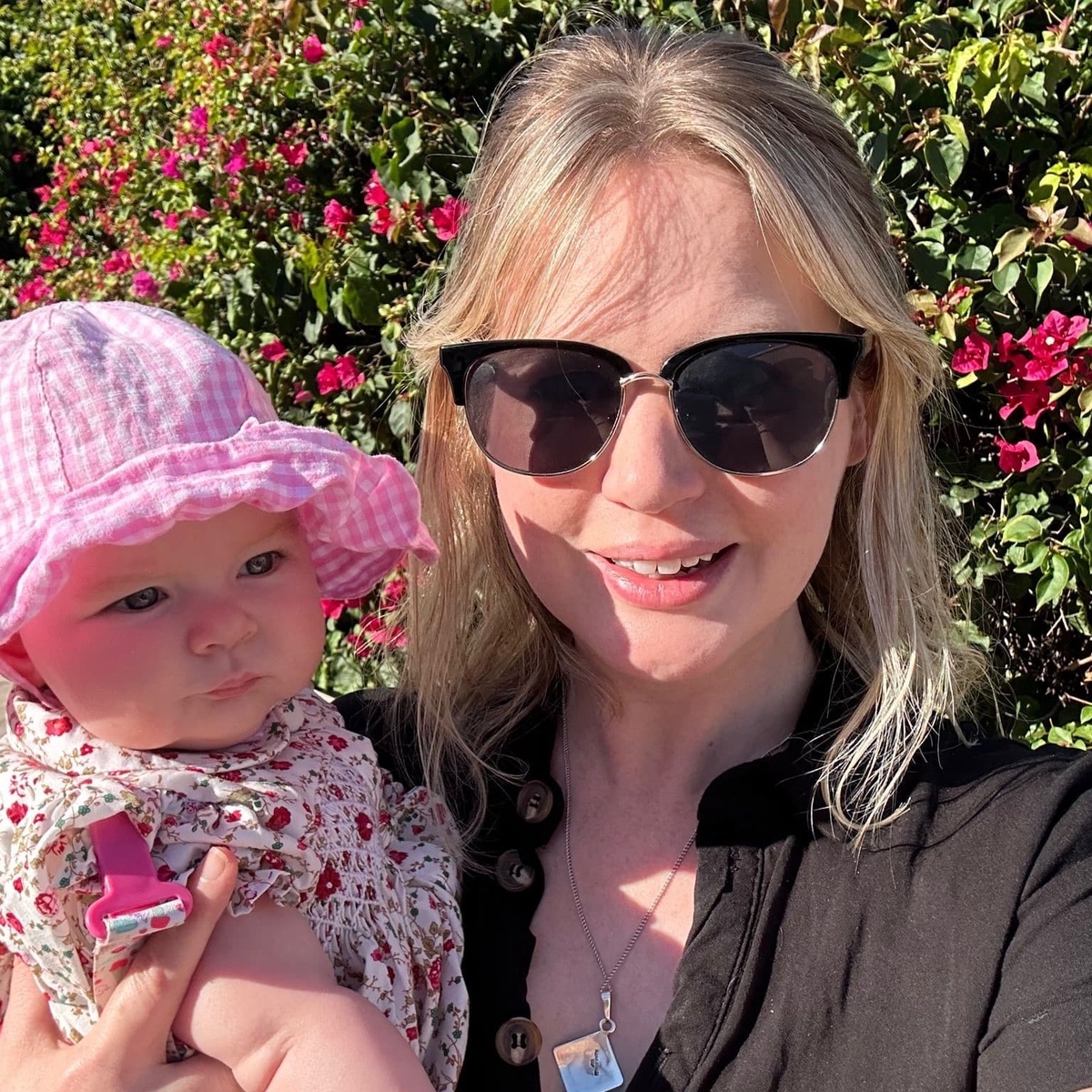
Summarise your work?
We are the group responsible for trying to nudge the University towards more sustainable behaviours and practices in all that it does. We track and report the University’s emissions, we develop sustainability related policies, we keep an eye on what’s developing in the sector and further field, and we encourage the adoption of sustainability practices. In the past year or two we’ve worked on issues including biodiversity, business travel, calculating student travel emissions, the Sustainable Development Goals, greening our laboratories, developing a staff training module, and loads more besides.
What other teams do you work closely with?
Almost too many to mention. Just within Estates & Facilities we work alongside several including Projects, Operations, Catering & Commercial, Grounds & Gardens, Energy, and Transport & Waste. We also work very closely with Professor Tavis Potts, the Dean for Environmental Sustainability. Beyond that we’ve developed some great working relationships with colleagues in AUSA, Procurement, Research & Innovation, Communications, Marketing, Planning, and IT to name just a few … and we’re also working with several Schools to develop collaborations around ‘living lab’ type projects where we use the campus as a canvas for student research.
What’s the most important thing people need to know about what you do?
While we’re the Sustainability team, it’s important that everyone sees sustainability as something they can contribute to. That might mean thinking twice about how (or if) you travel to your next conference or research meeting, taking some extra time to embed sustainability into the specification of a procurement tender, or thinking about how you can link your teaching to sustainability or the Sustainable Development Goals. It also means being aware of the impact we have as we go about our work – be energy conscious, be waste aware, travel mindfully, embed sustainability in our research and teaching, and help us make a difference.
What are some of the big projects you are delivering right now?
The most recent big thing was the finalisation of the University’s Net Zero Strategy. That was a major exercise but one that has now articulated our potential pathways to delivering Net Zero for the first time. There are also various things we do every year, including compiling the institutional emissions footprint for the Scottish Government, contributing to major league table exercises like THE Impact and QS Sustainability, and taking a lead role in the production of the University’s annual Sustainable Development Goals report.
In 2025 - and for much of the period from now to 2040 - the focus will be on advancing the Net Zero agenda, moving forward with implementation, and thinking about climate resilience.
What’s the best thing about being part of your team?
Once we get past the sense of climate anxiety that everyone ‘doing’ sustainability wrestles with (the ticking clock of twin climate and nature crises is a relentless beat that underpins what we do) there is a strong sense of doing something valuable and that we are helping to leave the world in a better place for future generations. That task never ends, and it is a daunting one … but we’re giving it a good go!
- The Design Team
-
The Design Team
What's the name of your team?
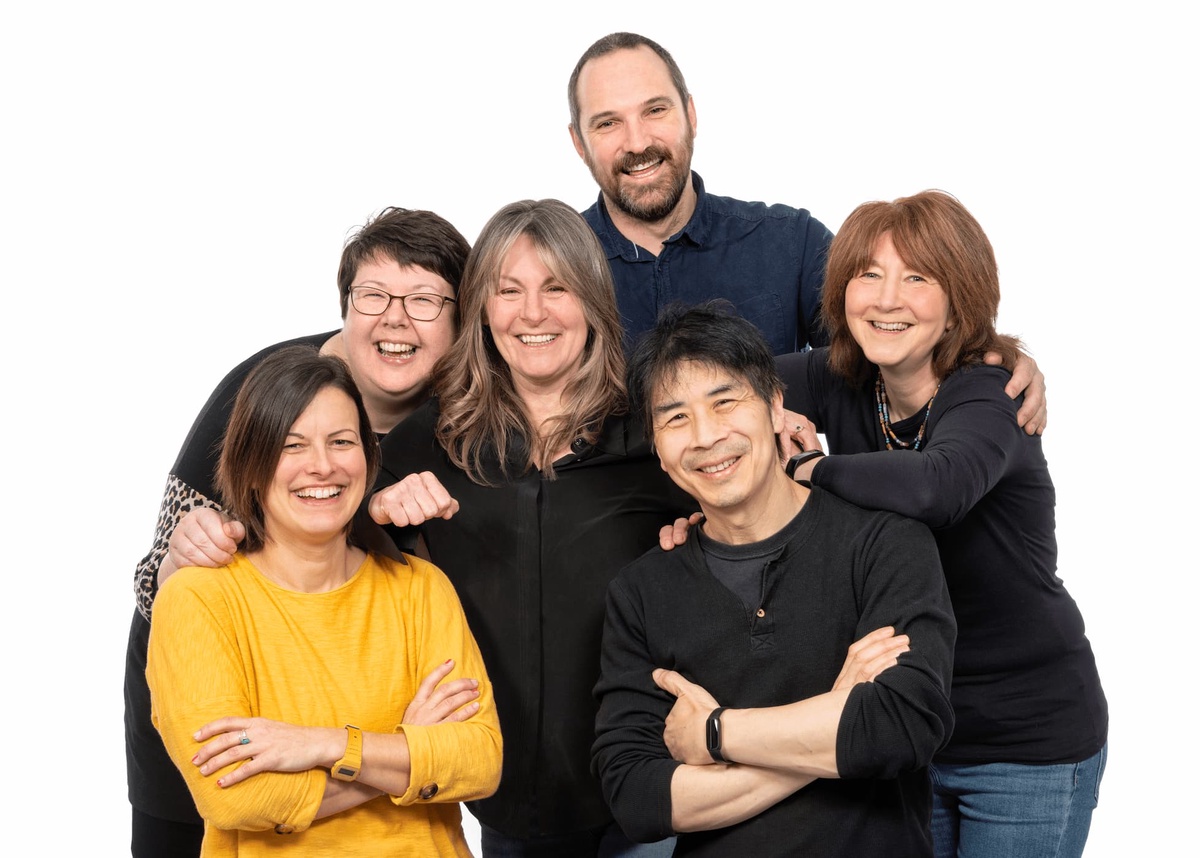
We are the Design Team (part of Media Services), within the Directorate of Digital & Information Services. Led by Craig Lee alongside Karen Law, Wai-Lum Sung, Suzie Clement, Pat Bain and Alison Hay, we are a team of designers with many years' design experience in both print and digital design.
Summarise your work?
Put simply, our job is to promote the University, our people and the work we do.
We work with you to promote the University and influence diverse audiences, from students and alumni to donors and partners. From the stationery we use to the prospectus, and everything in between; from digital advertising to directional signage; from the marketing brochures/events programmes to the annual financial report; from infographics to medical illustrations, posters to exhibition stands. We do it!
We do this by working closely with different Schools, teams, departments and projects to deliver a wide range of creative communication solutions.
What other teams do you work closely with?
The Marketing and Brand Team, Communications Team, Public Affairs and Stakeholder Engagement Team, Events Team, Digital Marketing Team, every School, institute and centre within the University and external partners like the NHS Grampian, local authorities and the Scottish Government. Put simply, we work with the entire University community and beyond!
What's the most important thing people need to know about what you do?
We are a friendly team of skilled creatives who design communications that are underpinned with a deep understanding of the University's goals, strategies, campuses and people - and a strong investment in the success of our brand.
What are some of the big projects you are delivering right now?
We are currently working with the Brand Team to deliver a brand refresh.
You might have already seen some of the creative work circulating already. We will be busy applying that across the campuses over the next few months and into next year and beyond.
It's not necessarily a project, but we are committed to making all projects that we create accessible, so they can be appreciated by all staff and students within the institution.
What's the best thing about being part of your team?
The work ethic, the diversity in styles, the banter, the smiles, the creative experience within the team, the collaborative nature of the team to share knowledge and do well for the team and the University. We could keep going!
Get in touch at design@abdn.ac.uk or visit our web pages to find out more about the team and how we can help at www.abdn.ac.uk/it/services/media/design.php
10 May 2023
- Project Management Office Team
-
Who's in the team?
At the moment the Project Management Office is a small team of three: Iain Grant, Head of Strategic Planning and the PMO; Matthew Robertson appointed just over a year ago as a Project Assurance Lead; and Emily Stokes who joined us as a Project Portfolio Coordinator over the summer.
Summarise your work?
Our responsibilities can be split into four broad categories:
- Having shared ownership of the University's Project Management Methodology, ensuring it is kept up to date in line with best practice, and that it is implemented on all major projects.
- Providing guidance and support on project governance - meaning how projects are governed at institutional level, as well as governance arrangements within projects.
- Developing and implementing a project assurance framework, to be applied to all strategic projects.
- Providing training and support to key project stakeholders, including Project Boards, Project Sponsors and Project Managers, but also more broadly, to any staff member across the University who is involved in running projects - or indeed staff who might just have an interest in project management and want to learn more!
Please feel free to contact us for more information, advice or support - whatever level of interest or involvement you have in project management (pmo@abdn.ac.uk ) - we'd love to hear from you!
What other teams do you work closely with?
We work closely with colleagues in the project management functions within both Digital and Estates, though we're also involved in supporting Project Boards across a diverse portfolio of projects. This means we get to work not just on unique initiatives - every project is unique! - but with multifunctional teams, in the form of Project Boards, made up of staff from all over the University!
What's the most important thing people need to know about what you do?
The most important thing for us is to add value by enhancing the likelihood of delivering the University's major projects successfully, and therefore realising major strategic benefits for the University - in whatever form they take! Ultimately projects are about realising benefits that keep us competitive in a hugely competitive marketplace (for want of a better way of putting it). If we can make a difference in helping the University achieve that, all the better.
What are some of the big projects you are delivering right now?
Right now, we have multiple projects we are working on, but most significant is establishing an Assurance Review Process for major strategic projects. This will be a great support mechanism for Project Sponsors and Boards tasked with delivery! The intention is to apply this for the first time at a key decision point for both the Johnstone and King's projects which are currently in progress. Accepting this may not sound exciting to the lay person, we can only say it's not all glitz and glamour!
What's the best thing about being part of your team?
Iain: For me, I have a passion for projects and project management. I love the concept of taking an idea, or a basic concept, discussed by a group of people around a table, and then bringing that to life, into something real and tangible that will deliver fantastic benefits. Whether that's a building, like Aberdeen Sports Village or the Science Teaching Hub, or a new system that transforms the way we work, or something else entirely, like our University strategy, Aberdeen 2040! Working in this role gives us an opportunity to make a difference in this space.
Matthew: The role challenges me every day and it drives my own improvement, with daily exposure to different project types across the University, and opportunities to learn and develop on a personal level.
It's also great that within the PMO - and the wider Directorate of Planning and Governance - we can all put our opinions, ideas and thoughts across in an engaging environment which makes everyone feel valued and empowered, and I think there is an exciting vision for the future of the Office; to develop a real centre of excellence that will benefit the wider project management function, and add real value to the University. I really look forward to being part of it and helping us to realise our goals.
Emily: For me, the best thing is being exposed to such a broad spectrum of all things project management and getting to work on such a variety of tasks which are all project related. It's a great learning environment: Having only a couple of years' experience within a project environment, I feel my contributions are valued within the team, and everyone is very willing to help me progress. All in all, it's a pleasure to work at the University so far - and that makes coming into work extremely easy!
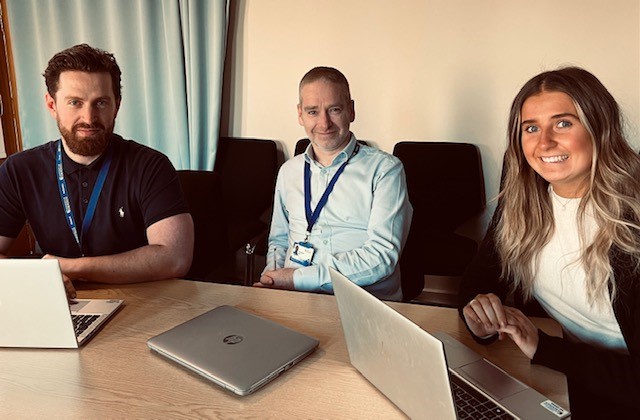
01 February 2023
- Applied Psychology and Human Factors Research
-
What's the name of your team?
Applied Psychology and Human Factors (APHF) research group.
Summarise your work?
The APHF conducts research and impact activities across three key research strands: human factors, clinical psychology and pedagogical research.
Human Factors
The research within the Human Factors strand is primarily focused on three main areas; non-technical skills (the social and cognitive skills that, alongside technical know-how, ensure safe and effective work performance), workplace incivility and applied psychology (spanning risk normalisation, visual search, and attitudes towards risk). In each area we work with industrial collaborators to ensure the research is relevant and conducted with expert and frontline workers. Example projects include investigating the non-technical skills used by helicopter pilots (search and rescue, offshore transport), examining the impact of client and co-worker incivility on veterinary staff, and developing a model of risk normalisation within the energy industry.
Clinical Psychology
The research within this strand focuses primarily on neuropsychology and mental health. Particular areas of interest include exploring the behavioural and social issues experienced by adults with acquired brain injury, and examining mental health support across multiple contexts such as academia and the workplace.
Pedagogical research
Our pedagogical research includes work examining graduate attributes, student resilience, employability and online internships. Example projects span evaluating the importance of context and duration of student work experience for employability, to developing a course designed to enhance and support University of Aberdeen student resilience.
What other teams do you work closely with? Any external partners?
We work with a wide range of industrial partners across aviation, healthcare, veterinary practice, the energy industry, agriculture and forestry. Most recently this has included projects with VetLed and Forestry Land Scotland. Our industrial partners are absolutely vital for our research, enabling our access to industrial participants, and supporting the implementation of developed tools and evidence-based materials.
What's the most important thing people need to know about what you do?
Our key aim is to conduct rigorous research that has real-world impact. We love to work with industrial partners across a wide range of projects, and have developed a range of tools to support safety at work. These include tailored behavioural marker systems and even web-apps to support non-technical skill development and assessment!
What are some of the big projects you are delivering right now?
We have just begun a four-year collaborative SGSSS PhD project with Forestry Land Scotland to examine non-technical skills in the forestry context, along with performance limiting factors. We are also pursuing an ongoing research programme analysing the impact of incivility within the veterinary context with VetLed.
What's the best thing about being part of your team?
There are many benefits of being part of the APHF team. The group meets regularly to discuss current research across the various strands of the group and to broadly brainstorm areas of interest to the group, so there is a great deal of support available. The group is also very collaborative, regularly meeting with industrial partners and engaging in dissemination activities related to ongoing research, as well as reaching out to partners to contribute to talks and the groups newsletter.
Perhaps the best thing about being a part of the APHF, however, is getting a sense of community within the applied psychology realm. In 2017 we had only a couple of applied PhD students and staff in the School of Psychology - now we have an entire team internally and a broad group of industrial associates.
08 September 2022
- Confucius Institute
-
What's the name of your team?
We are the Confucius Institute, part of the Directorate of External Relations. We are led by Director Michelle Macleod, alongside Institute Manager Sarah Wang.
Other Aberdeen staff are Lindsay Sullivan, Marianne Noble, Qing Luo, Ellen Adam, Lynnette Doherty, and Xiaolin Niu. We work alongside visiting honorary staff members from our partner, Wuhan University, who can be here for between one and four years; the Chinese Co-Director is Cheng Xuemeng but his term in office comes to an end soon and he will be replaced by Xu Dongyang; other Wuhan staff currently, at the CI are Liu Chen, Liu Kun, Zhou Xiaoming, Zhou Han, Chen Liao, Luo Juntong, Quan Yi, Tu Shaokai, and Wang Danqing.
Summarise your work:
The Confucius Institute provides classes in Chinese language and culture and delivers events across the north-east of Scotland. We work with University staff and students, schools, business and industry, and community organisations and individuals.
It acts as a linguistic and cultural bridge, promoting knowledge exchange between China and the people of the north-east. The Confucius Institute has been going from strength to strength since it opened in 2013. It continues to develop and grow teaching and cultural activities.
What other teams do you work closely with? Any external partners?
We work closely with many departments and schools across the University. We have recently completed a project with museums and special collections to create a permanent display of Asian objects from the UoA collection. This past academic year we have taken part in student experience events, school events and activities on campus.
We work closely with our external partner Wuhan University, who we have worked with since we opened in 2013. Prior to its more recently found source of fame, Wuhan was known for being a large and youthful University city famous for its breakfast food, such as hot dry noodles. There are an incredible 21 universities in the city of Wuhan, with Wuhan University being a top ten university within China.
We host staff and students from Wuhan University here on campus, for example some of our Mandarin classes are taught by PG students from Wuhan. Some are studying a post graduate degree in teaching Chinese as a foreign language and come to us for a teaching work placement for an academic year.
Locally we work with external partners such as Aberdeen City Council and Aberdeenshire schools, independent schools and organisations such as Girl Guides and Belmont Cinema. We regularly participate in local events such as Aberdeen Mela, Celebrate Aberdeen and Doors Open Day.
What's the most important thing people need to know about what you do?
We operate all year round, seven days a week. We are often out in the community, delivering weekly Mandarin language lessons in primary and secondary schools, giving cultural workshops in dance, calligraphy, or painting and participating in weekend community events to raise awareness of our activities.
Of course, we are on campus too, delivering 30+ Mandarin classes every week to staff, students and the wider community, mostly from our centrally located building on High Street, Old Aberdeen. We hope to restart our pre-pandemic staff classes at Forresterhill this semester and we continue to offer a limited amount of online teaching too.
From a casual interest in the basics all the way up to the highest level of fluency and everything in between, we can support learners of Mandarin language here in the north-east. We also have Mandarin Bookbug: an initiative to introduce Mandarin language to pre-schooler children through picture books, stories and rhymes.
We support academic colleagues in their Mandarin learning and we help academic units across the two partner institutions make contact with each other.
What are some of the big projects you are delivering right now?
We are currently working on our new community library project. Our building at 17 High Street was refurbished in 2019. On the top floor, our wee library and reading room might just have one of the best views on campus looking down over King's Lawn.
We are implementing a new community library software to make our book collection more accessible to all; once the cataloguing is complete it will be easy to register with us and borrow from our library.
We have a wide range of books available including textbooks, grammar books, poetry, and an excellent selection of Mandarin and bilingual children's picture books.
What's the best thing about being part of your team?
The variety of our work. One day we might be supporting a University of Aberdeen student to enter a global Chinese language competition (and win) and the next we could be making Mid-Autumn Festival Moon Cakes out of plasticine at a primary school in MacDuff.
The best thing about our team is that we have a new intake of colleagues from Wuhan every year so it keeps us all fresh and we benefit so much from the variety of different skills they bring to Aberdeen each year.
Our busy calendar of cultural events throughout the year includes Kung Fu, dance, guest lectures, music concerts and drama shows in local theatres and schools. All of our events bring valuable enriching international culture and the arts to Aberdeen and the north-east for the whole community to enjoy.
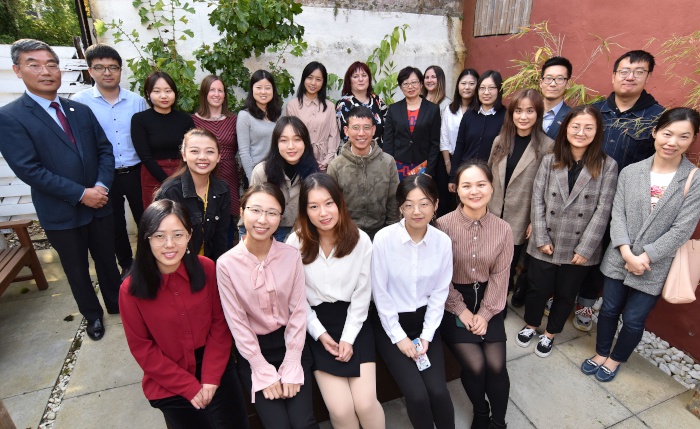
25 August 2022
- Health Economics Research Unit (HERU)
-
Summarise your work
With around 30 economists, the Health Economics Research Unit (HERU) is a world-renowned research unit delivering both applied research to inform policy and innovative methodological work to advance the discipline of health economics.
Limited resources coupled with ever increasing demands on health systems mean difficult decisions must be made. Who should be treated? What treatments should be provided? How can we recruit sufficient health workers to ensure all demands can be met? How should we pay our workforce? How can we incentivise individuals to live healthy lives, thus reducing the demands on the health systems? What are the preferences of patients and the public in the delivery of healthcare?
Our research is organised into four themes, reflecting the areas in which we have an established reputation for excellence and where we can make the most effective contribution to these many questions:
The Workforce and Organisation of Care theme examines how financial and non-financial incentives influence the behaviour and performance of the people and the organisations delivering care. We are the only health economics group in the UK with a theme dedicated to researching workforce issues.
Our Health Behaviour theme uses economics to understand health behaviour (alcohol consumption, physical activity, and dietary choice) and to design and evaluate health behaviour interventions to encourage health behaviour change.
The Assessment of Technologies theme produces high quality evidence on the value of new and in-use health technologies. We lead research on using a person-centred approach to economic evaluations.
And our Preference and ValuE theme is internationally recognised for developing and applying preference elicitation methods, particularly discrete choice experiments (DCEs).
HERU's capacity building activities both increase health economic literacy amongst health professionals and develop future leaders in health economics. Our online Postgraduate Programme in Health Economics for Health Professionals builds on over 30 years of offering distance learning postgraduate training in health economics.
Our popular three-day course on 'Using Discrete Choice Experiments in Health Economics' takes place annually; and we contribute to a range of other University courses, including the Masters of Public Health, the MSc in Global Health and Management and the undergraduate courses in Medicine and Economics.
What other teams do you work closely with? Any external partners?
Much of our research is conducted with collaborators, both internal to the University and external. We aim to work with the best in their fields. We collaborate with the Health Services Research Unit (HSRU) and other units across the Institute of Applied Health Sciences and the wider University, including the Rowett Institute and the Business School . We welcome opportunities to discuss collaborations across the University.
What's the most important thing people need to know about what you do?
We have an international reputation for conducting innovative, policy relevant research to inform the delivery of healthcare in Scotland, the UK and internationally.
What are some of the big projects you are delivering right now?
- One of the greatest challenges in providing healthcare to rural and remote communities in Scotland is the ability to recruit and retain healthcare staff. Funded by the Chief Scientist Office (CSO) of the Scottish Government, and in collaboration with the Health Services Research Unit, we are conducting research to better understand doctor's preferences for working in remote and rural areas.
- In collaboration with the Rowett Institute, we have recently received funding from the Scottish Government Rural and Environment Science and Analytical Services (RESAS) programme to research factors enabling consumers to make healthier and more sustainable food choices and how the COVID-19 pandemic has changed diets in Scotland.
- Informed by research at HERU, Scotland was the first country in the world to introduce Minimum Unit Pricing (MUP) for alcohol (in 2018). Funded by the CSO, we are now conducting research looking at whether the introduction of MUP had unintended consequences for diet quality and health.
- As part of our National Institute for Health and Care Research (NIHR) contract to conduct Technology Assessment Reviews for the NHS, we have been providing evidence to the National Institute for Health and Care Excellence (NICE) since 2001 to inform decisions on what treatments should be nationally funded.
- In an era of personalised healthcare, it has become increasingly important to elicit patient preferences. We are exploring the use of discrete choice experiments to develop decision aid tools to aid the delivery of person-centred care within a shared decision-making framework.
All our projects can be seen on the Research pages of the website.
What's the best thing about being part of your team?
HERU provides a supportive, creative environment encouraging all staff and students to be the best they can be while offering the opportunity to apply their economic skills to both contribute to the development of health economics and improve the health and wellbeing of people in Scotland and beyond.
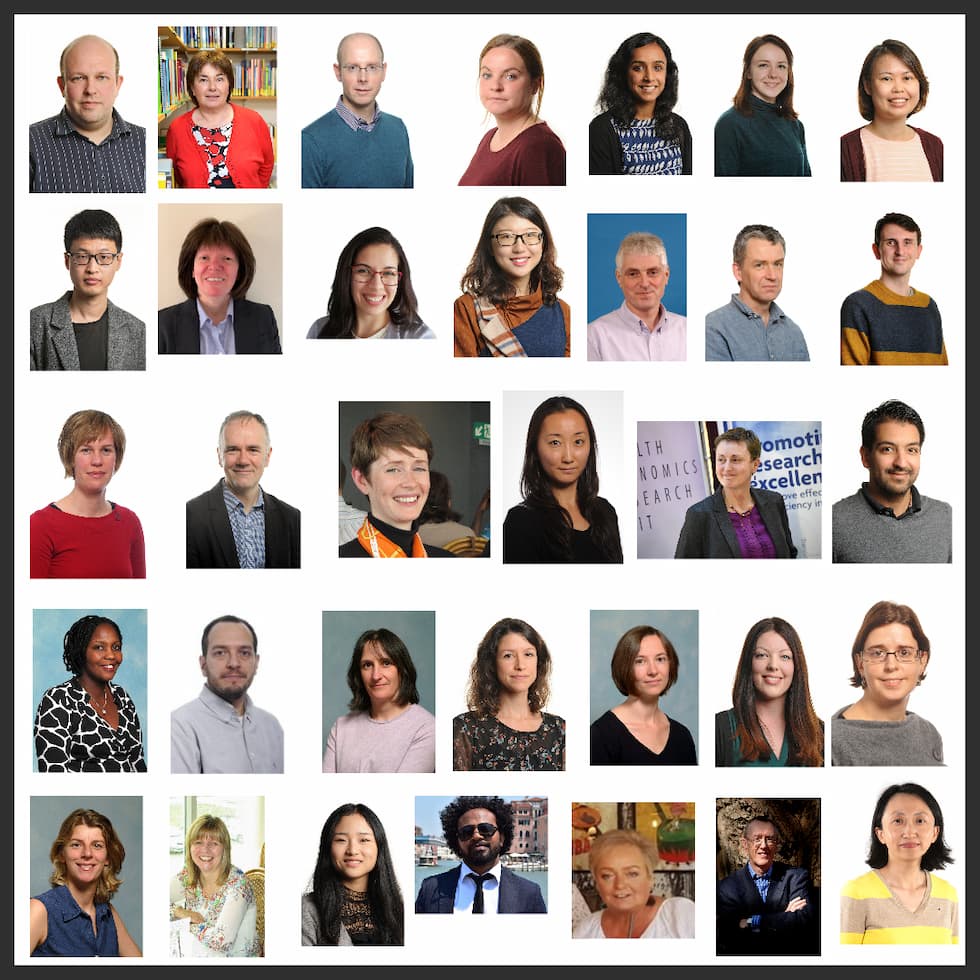
21 June 2022
- One of the greatest challenges in providing healthcare to rural and remote communities in Scotland is the ability to recruit and retain healthcare staff. Funded by the Chief Scientist Office (CSO) of the Scottish Government, and in collaboration with the Health Services Research Unit, we are conducting research to better understand doctor's preferences for working in remote and rural areas.
- Health Services Research Unit Team
-
Who's in the team?
We have around 80 staff in a wide range of roles who work in multi-disciplinary teams to deliver high-impact health research: qualitative, quantitative and mixed methods researchers, statisticians, programmers, systematic reviewers, clinical trial managers and data coordinators as well as a number of administrative support and clinical academic staff.
What's the name of your team?
Health Services Research Unit (HSRU)
Summarise your work:
Our work is interdisciplinary. We research ways to understand and improve patient experience, evaluate healthcare interventions in real-world , and improve research practice and design better healthcare.
What other teams do you work closely with?
All of our research involves working with collaborators. We work with many teams across the SSMNN and colleagues across other Schools such as in Geography, Philosophy, Anthropology and Social Sciences and, of course, collaborate closely with our sister Unit HERU.
Any external partners?
We have extensive international and interdisciplinary collaborations, working closely with other research units and universities across the UK and globally, and also with other healthcare organisations such as NHS UK and NHS Education Scotland.
What's the most important thing people need to know about what you do?
Our core mission is to deliver impactful research which helps, supports and improves healthcare delivery and the experiences of both patients and staff across the UK and internationally.
What are some of the big projects you are delivering right now?
We have 140 ongoing projects so picking a select few is challenging! Our Care in Funerals project is examining the impact of the COVID-19 pandemic on bereaved families, celebrants and funeral directors, and is notable for the interdisciplinary work from philosophy, anthropology and archaeology, as well as a funeral director.
What's the best thing about being part of your team?
We have a very collaborative, supportive working environment in which every member of staff, regardless of role, is valued and is enabled to make a real contribution to research that is changing people's lives.
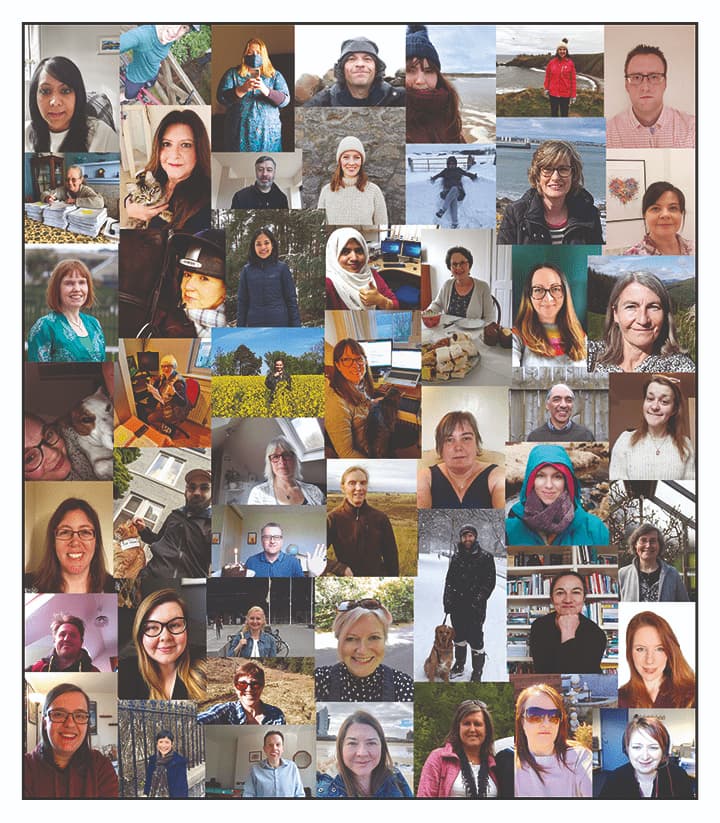
16 June 2022
- Communications Team
-
What's the name of your team?
We're the Communications team, part of the Directorate of External Relations. Led by Jen Phillips alongside Bob Turbyne, Euan Wemyss, Jo Milne, Wendy Davidson, Laura Graham, Laura Grant, Catherine Shanks and David Henderson, we're a mix of former journalists and public relations experts.
Summarise your work?
In a nutshell, it's our job to raise the profile and protect the reputation of the University.
We do this by working closely with the Schools and various project groups to deliver a mix of proactive news releases, features, videos, interviews and blogs; as well as reactively responding to dozens of requests and queries that come in from journalists every week.
Our aim is to help University staff and academics promote the work they are doing to a wider audience and feel confident when dealing with the media.
We also manage the distribution of University-wide internal communications, from the stand-alone mailers and daily University in the News round-up which drop into your inbox to collating and issuing the staff newsletter every week.
Last but not least, we are a 24/7 team, operating an out of hours service for breaking incidents.
What other teams do you work closely with?
Any external partners? We work with the Digital Communications team for activities involving the website and mailers - look out for a Getting to Know You article from them in the weeks ahead! We also work closely with colleagues in the Social Media team, the Marketing and Brand Communications teams, the Public Affairs and Stakeholder Engagement team; and the graphic designers and photographers in the Digital & Information Services and Digital Marketing teams.
We also liaise and collaborate with external partners like the local authorities, NHS Grampian, ONE and so on to promote news on collaborative projects; as well as liaising with Qatar to help work together to ensure that they are also represented online.
What's the most important thing people need to know about what you do?
We know how to communicate well with people. We also understand how media operate, so when we make suggestions about how something could be worded, or the best approach to take to meet an agreed objective, it's because we're looking at the issue through an objective lens.
It's also why we ask lots of questions. We like to know where the quicksand is so we can figure out all the ways to avoid it!
What are some of the big projects you are delivering right now?
We're currently working on good news student stories to share around Summer Graduations. These are all written in advance and shared on the website and on social media on the day so we're keen to identify as many as possible now.
You might also have seen some of the focus month activity we've been doing to demonstrate the University's depth and breadth of research activities around the interdisciplinary challenges. It started with Data & AI in March and ends with the Environment in November. A mix of news stories, opinions, fun facts and talking head videos, the first focus month delivered a 258% increase in pageviews on the website.
What's the best thing about being part of your team?
Sounds like a cliché but it's true to say the best thing is the people. We are a tight-knit team who are always there for each other, anytime of the day or night.
Also, every day is different. You might arrive in the morning with a plan of action but a story breaks, a journalist calls, a film crew turns up or something wholly unexpected happens on campus and you need to drop everything to deal with it. That might be some people's worst nightmare but we wouldn't have it any other way.
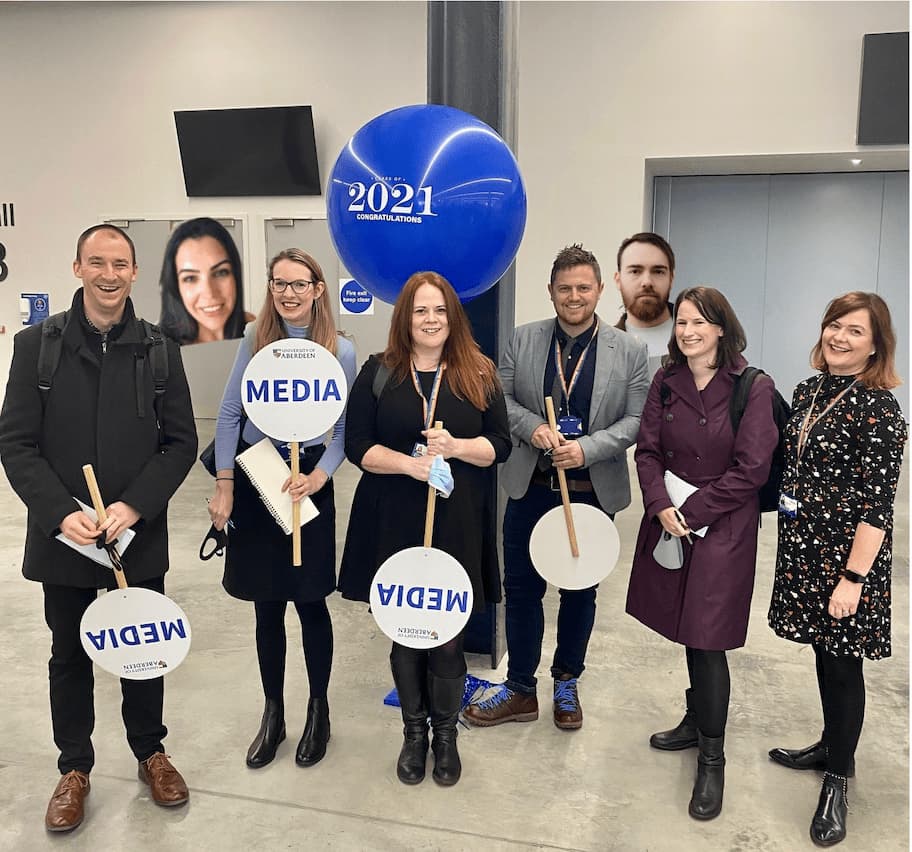
09 June 2022
2021
- Natalia Dudzik
-

1.Tell us about your role at the University.
I have just started working in the enquiry team and will be helping answer any queries students may have.
2. How do you usually start your day?
When I wake up I always have either scrambled or poached eggs for breakfast and when I come into work I have a big cup of tea.
3. What brought you to the University of Aberdeen?
The amount of opportunities available here and, of course, the absolutely beautiful campus. I mean, who can be sad in the morning when walking through that to get to work?
4. What's your favourite thing about your job?
How lovely, friendly and helpful everyone has been!
5. What are your work priorities at the moment?
To ensure I learn everything as quickly and as best as I can.
6. How do you like to relax outside work?
I absolutely love reading books and cooking. My goal was to read 100 books this year and I am only three away! My favourite dish to make (and eat) is chicken and chorizo paella. I was also a make up artist at my previous job so find doing my make up very relaxing and fun and consider it my 'me time.'
02 December 2021
- Duncan White
-
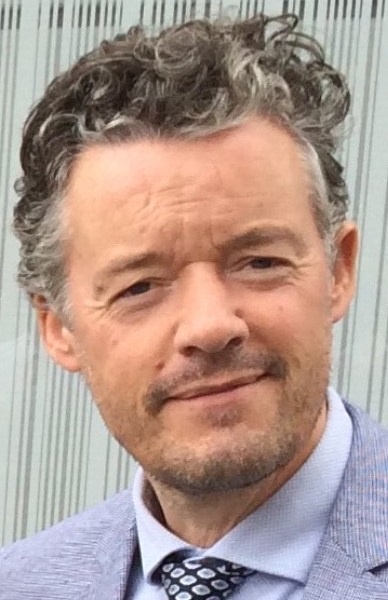
1. Tell us about your role at the University.
As Interim Director of Estates and Facilities, one might say that the role is to provide a safe, functional, aesthetic environment in which to stimulate the collective university community.
2. How do you usually start your day?
At this time of the year, I wake up to the sound of the boiler starting up 10 minutes before the alarm goes off and then wonder how cold the house will be and then the quick walk to the shower room. The morning salutation to my wife is followed by a breakfast of porridge, stewed apples and berries, a further morning salutation to Sybil my pet dog, a glance at the clock and then the familiar morning commute.
3. What brought you to the University of Aberdeen?
Well I have spent over seven years with a weekly long distance commute from home to the Universities of Staffordshire and Gloucestershire and living locally during the week in similar roles to this one, by choice I would add, in order to gain wider exposure to the rest-of-UK institutions, their different cultures, priorities, people and dare I say budgets. The opportunity to join this University presented a new range of challenges but ones in which I believe I can contribute meaningfully and bring past experience to bear. Finally as my wife reminded me at the time, it was 500 miles nearer to home than the other options on the table!
4. What's your favourite thing about your job?
Arriving at work.
5. What are your work priorities at the moment?
Well I have short term, medium term and long term priorities but my short term priority is to forge meaningful connections with staff within the department and the wider university community.
6. How do you like to relax outside work?
Weighing up whether I should go to the gym, have a glass of wine or take the dog for a walk.
25 November 2021
- Sam Revell
-
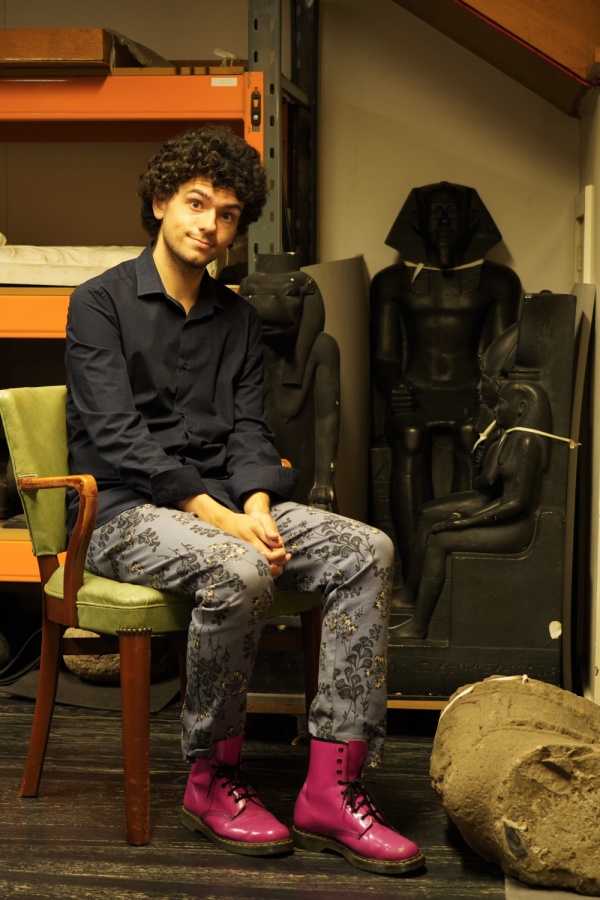
1. Tell us about your role at the University.
I'm working at Marischal College on the Open to All project. Most of what I do is photographing objects from the university's museum collection so that they can be put on various online platforms. The idea is to make the collections more accessible, and to create images for use in talks and other events. I'm also taking photographs for other museum business, such as for researchers who need to look at our material.
2. How do you usually start your day?
I've only been here a few weeks so I usually start by hoping I don't accidentally get locked in or out or set an alarm off! My day usually involves getting objects from the storeroom and photographing them. I've already photographed objects from Egypt, Greece and Australia.
3. What brought you to the University of Aberdeen?
I studied Conservation of Cultural Heritage at BA and MA level (actually I'm still finishing my MA) where I learned how to document museum objects, so the role was a good match for my skillset, but it was the ideas behind the Open to All project - making collections accessible to a wider audience - that attracted me to work here. The collections department's repatriation efforts, particularly the high-profile Benin Bronze case, also attracted me.
4. What's your favourite thing about your job?
It's probably finding different ways to photograph things. Every object has a different surface texture and responds to light differently, so finding the best way to highlight the object's features and show it accurately, in a way that informs the viewer, is a challenge I enjoy.
5. What are your work priorities at the moment?
I'm currently photographing some of the carved stone balls, mysterious artefacts from thousands of years ago which are mostly found Aberdeenshire.
6. How do you like to relax outside work?
I'm not doing much of that as I'm still writing an MA dissertation! However I have found the beaches here to be great places to find interesting pebbles.
04 November 2021
- Laura Grant
-
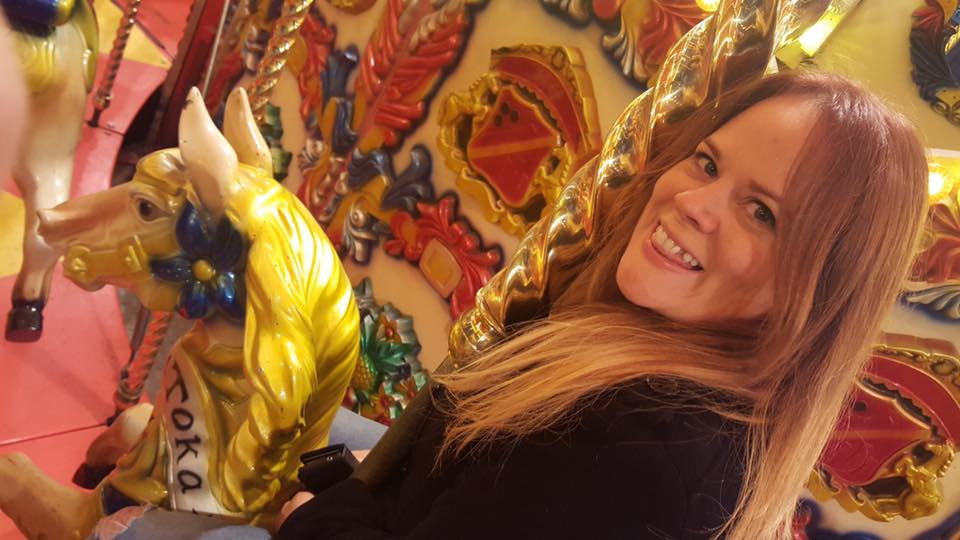
Find out more about Laura, her role and her ambitions at the University.
1. Tell us about your role at the University.
Part of the Directorate of External Relations, I'll be working with the Business, Law, Social Sciences and Education Schools to help get their news out far and wide.
2. How do you usually start your day?
Up at 6am for a run along the beach followed by half a grapefruit…is what I'd like to say. In reality anything before the first cup of coffee is generally incoherent mumbling accompanied by uncoordinated limb activity.
3. What brought you to the University of Aberdeen?
I was a journalist then a public relations officer, working predominantly with clients in the oil and gas sector. After 11 years of helicopters, subsea pipelines and emergency response calls I joined the Chamber of Commerce as Head of Marketing and Communications. The University is a Chamber premier partner and, quite simply, I fell in love with the amazing news stories it puts out every month.
4. What's your favourite thing about your job?
Meeting interesting people and learning new things. Every day.
5. What are your work priorities at the moment?
It's Day 1 so I'm finding my feet but looking forward to getting stuck into driving some results and supporting my new colleagues.
6. How do you like to relax outside work?
I'm up for having a go at most things - last Saturday I went axe throwing, for example. I also like collecting old musical instruments that I'm truly terrible at playing.
21 October 2021
- Paul Fisher
-
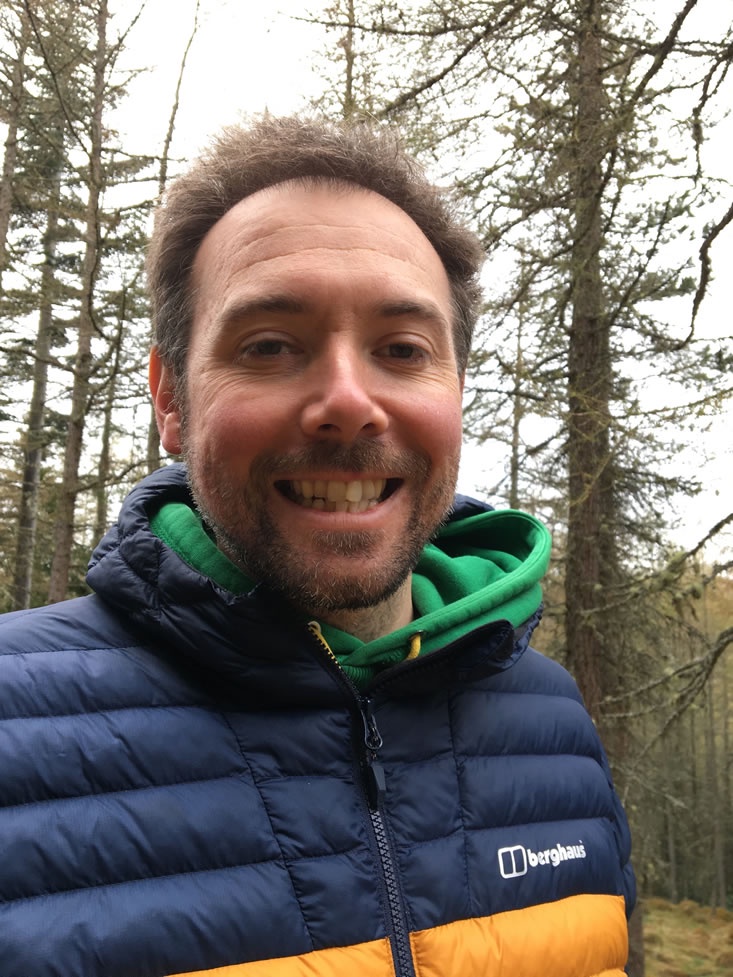
1. Tell us about your role at the University.
For two and a half years, I've worked as an Enquiry Assistant on the Engagement and Conversion Team, answering enquiries from prospective students about studying and living in Aberdeen.
I'm about to start an exciting new role as a Digital Marketing Co-ordinator, where I will assist with building digital campaigns, creating emails, and supporting the team by producing and analysing reports.
2. How do you usually start your day?
No morning is complete without a nice cup of tea. I also really love my walk into work - seeing the beautiful campus in the morning is a lovely way to start the day.
3. What brought you to the University of Aberdeen?
My wife Emily was posted to a job in Aberdeen, so we moved here from Nantymoel, in South Wales, in December 2018. We've really fallen in love with the city and the surrounding area.
4. What's your favourite thing about your job?
It's fantastic being able to help enquirers on their journey to becoming a student at the university. I love helping to develop engaging and creative ways to promote the university.
5. What are your work priorities at the moment?
My priority over the next weeks and months will be learning all the aspects of my new role - I'm very excited about it.
6. How do you like to relax outside work?
My wife and I are massive rugby fans. We support Cardiff Rugby, and hopefully we'll be able to make it down to a match at Cardiff Arms Park some time this season. We're also both huge music fans, and we really enjoy going to gigs and festivals.
16 September 2021
- Dr Camilla Mørk Røstvik
-
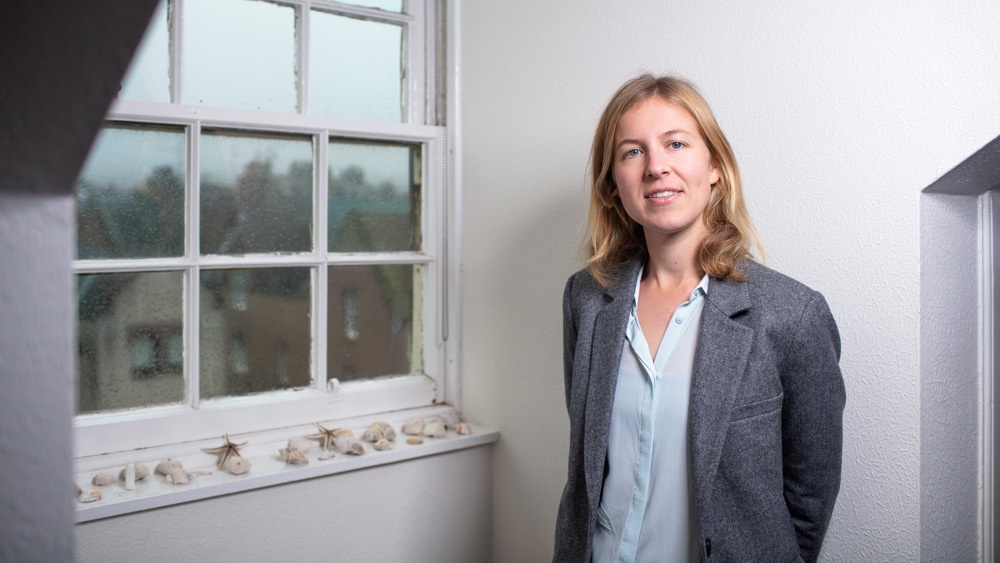
Over the past few years, she has been researching and writing about menstruation in art history and visual culture. She also co-runs the Menstruation Research Network UK for scholars in the field.
1. Tell us about your role at the University.
I am a new Lecturer in Modern & Contemporary Art History in the School of Divinity, History, Philosophy and Art History.
My research focuses on the intersections between 20th and 21st century art, technology, activism, and science. For the last few years, I have been researching and writing about menstruation in art history and visual culture, and I co-run the Menstruation Research Network UK for scholars in the field (menstruationresearchnetwork.co.uk/).
2. How do you usually start your day?
Happy to be alive. Playtime with our Albino lop-eared rabbit Mr Albus. Breakfast. Coffee!
3. What brought you to the University of Aberdeen?
The wonderful Art History program and my colleagues, the potential for interdisciplinary research, and the university's strong track record on women's health research.
After years of precarious employment, I am very happy to be here. If I can be useful to anyone at Aberdeen in precarious employment, please reach out!
4. What's your favourite thing about your job?
Writing. Engaging with art and artists. Learning.
5. What are your work priorities at the moment?
Finalising a research grant application for a project about menstrual culture in the Arctic. Preparing a larger grant application about the 'environmenstrual' movement, activism and art since the 1960s. Preparing for teaching!
6. How do you like to relax outside work?
Hiking, foraging, spending time with my partner and Mr Albus, running, eating vegan food, reading, watching series, and trying to remember that life is a gift. Also, cake!
19 August 2021
- Dawn Leslie
-
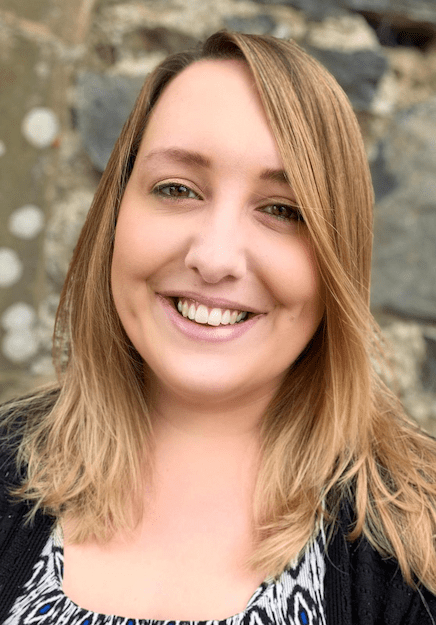
1. Tell us about your role at the University.
My new role at the University is as a Lecturer in Language and Linguistics. This is a step up from my previous post as a Teaching Fellow. I teach on several of the undergraduate Linguistics courses: these cover a range of topics, mainly centred around language variation and change. Last year, I also launched a new undergraduate course on North-East Scots (often referred to as 'Doric') for the Elphinstone Institute.
2. How do you usually start your day?
Usually with my cat miaowing loudly in my ear or falling on my head as he attempts his tight-rope act along the headboard! No alarm clock required.
3. What brought you to the University of Aberdeen?
I'm from the North-East of Scotland and did all my studying at Aberdeen (although I was away doing other things for quite a few years in between my postgrad and my PhD). My research is mainly focused on Scots language issues, with a particular interest in the dialect of the North-East, so I feel like it makes sense for me to be based at a university where my work gives me the opportunity to connect with the local community.
4. What's your favourite thing about your job?
I like the fact that I'm always learning. I learn from my research. I learn from the people I work with. I learn from the students and all the new ideas that they contribute. It's a real privilege to be doing a job that's interesting, always changing, and based around a subject you have genuine passion for. In terms of teaching, new content creation is a particular favourite of mine - I love trying to think of new ways to engage the students and hopefully pique their interest so that they want to study Linguistics further.
5. What are your work priorities at the moment?
I like the fact that I'm always learning. I learn from my research. I learn from the people I work with. I learn from the students and all the new ideas that they contribute. It's a real privilege to be doing a job that's interesting, always changing, and based around a subject you have genuine passion for. In terms of teaching, new content creation is a particular favourite of mine - I love trying to think of new ways to engage the students and hopefully pique their interest so that they want to study Linguistics further.
6. How do you like to relax outside work?
I've played the bagpipes with the local Kintore Pipe Band since I was 12. I'm now Pipe Sergeant and we usually spend our summers entertaining folk at local events and Highland games. We sometimes manage to venture slightly further afield too: so far, we've piped at events in Shetland, Ireland, Belgium, Czech Republic, Italy and the USA. My bagpipes even came with me to play at a school assembly in Bangladesh while I was over there as part of the British Council's Connecting Classrooms scheme (in my former life as a secondary school teacher). As part of the band's tuition programme, I run beginner's lessons for those wanting to learn the bagpipes. I'm not sure 'relaxing' is always the best word for it, but it's certainly a lot of fun.
27 May 2021
- Fabien Naneix
-
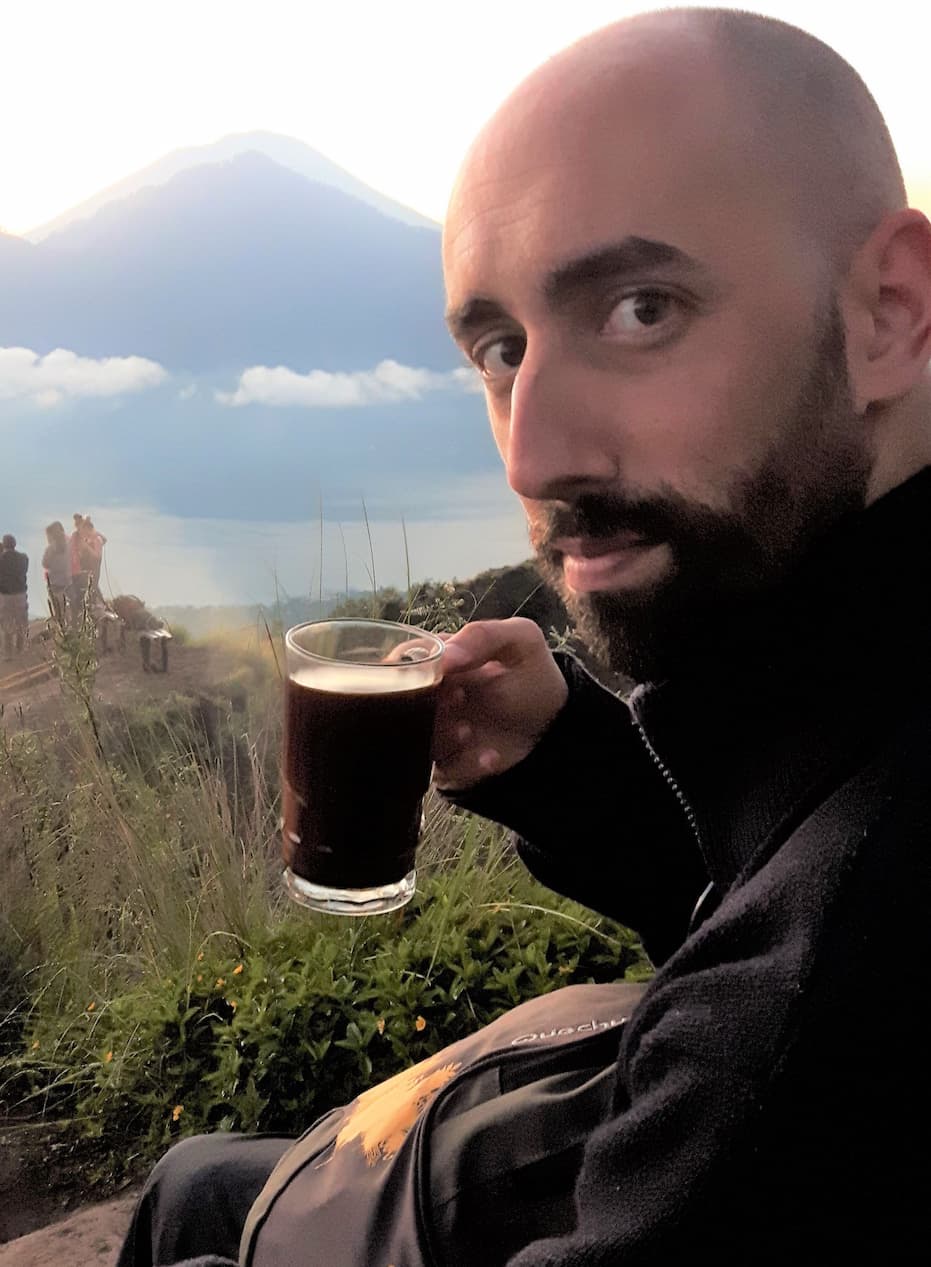
Here he tells us about his research, which looks at how the brain controls food choice, how these processes change during development and how it can be affected by diet.
1. Tell us about your role at the University.
I have been a lecturer within the Rowett Institute and the School of Medicine, Medical Sciences and Nutrition since June 2020. I am working on how the brain controls food choice, how these processes develop during childhood and adolescence and how it could be altered by an unhealthy diet.
2. How do you usually start your day?
Coffee and toast - I can do nothing without a good breakfast. And my French culture taught me how important it is to have three good meals a day. If I'm honest, I'm not really a morning person and I definitely work better later in the day or night. But I'm trying to have a better work/life balance... and the coffee helps!
3. What brought you to the University of Aberdeen?
I was at the University of Leicester for my second postdoc, when my former PI relocated to Norway and the lab was closing. I was torn between finding a lecturer position in the UK or going back to France. An opportunity opened at the Rowett Institute, and it looked like the perfect match between my interest in nutrition and the Rowett's ambition to develop neuroscience research.
4. What's your favourite thing about your job?
The freedom, and the feeling to participate in the extension of our knowledge. It is a very exciting time right now for neuroscience. In recent years, the development of genetic tools has allowed us to really dissect the role of precise brain circuits or neuronal populations in specific behaviours.
5. What are your work priorities at the moment?
I am trying to understand how our brain decides to pick some food more than another, and how this choice is influenced by environmental cues. I am especially interested in how this process changes during early life because the brain is still developing and is more vulnerable.
6. How do you like to relax outside work?
I play a lot of videogames and I love to bake. I also love long walks and hiking. I moved to Aberdeen last December between two lockdowns, so I did not have a lot of opportunities to visit the surrounding area, but I plan to buy a car at some point and look forward to exploring Scotland.
06 May 2021
- Jess Butler
-
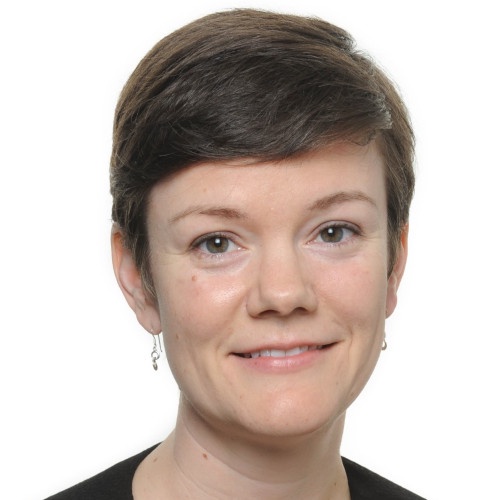
Here she tells about her love of her job and why she is passionate about improving how research is 'done'.
1. Tell us about your role at the University.
I'm a research scientist, running a project called the Networked Data Lab at the Centre for Health Data Science . Our team works within NHS Grampian, writing software and analysing electronic health records to improve care. I love the work - it's a great combination of challenging and useful.
2. How do you usually start your day?
I always protect some time first thing in the morning to work deeply on analysis. Otherwise, meetings will take over everything!
3. What brought you to the University of Aberdeen?
We moved to Aberdeen when my husband took a position in the philosophy department, and I was very lucky to start as a research fellow with Corri Black in IAHS not long after.
4. What's your favourite thing about your job?
The people! We've built an excellent environment at the Centre - even though the work is critical and fast-paced, we prioritise teamwork, support and flexibility. I also really enjoy working in a place where women are well represented in the leadership team and technical staff.
5. What are your work priorities at the moment?
I'm passionate about improving how we do research. I want to make research methods transparent and reproducible, and to make results freely available to all. To do this, we have to change what we reward professionally. There's lots of exciting activity on this right now, both in Aberdeen and across the UK, with funders and universities improving research assessment and publication strategies. Anyone interested, please feel free to email me and join our Open Research mailing list for news and events.
6. How do you like to relax outside work?
I should probably say gardening and walking (which is true) but during the pandemic it's been more watching telly and drinking wine!
29 April 2021
- Robyn Crabtree
-
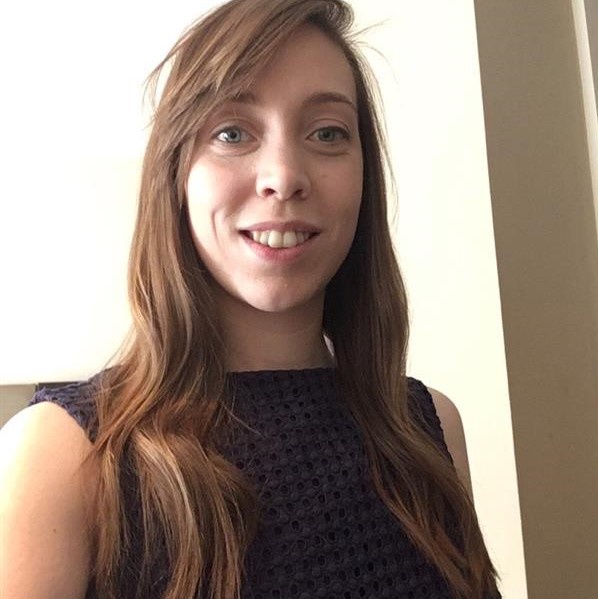
Find out more about Robyn's role and why making student's dreams come true is her favourite part of the job.
1. Tell us about your role at the University.
I'm responsible for arranging study abroad opportunities for University of Aberdeen students outside of the Erasmus scheme, and supporting students during the entire process; from initial application to returning to their studies in Aberdeen after exchange.
I work with partner institutions across the world to organise student exchanges and provide summer school options to students. It's been an interesting role to take on during a global pandemic and the past year has required significant out-of-the-box thinking for practically all aspects of the job as, like many, we've had to figure out how to do a lot of in-person activity online.
2. How do you usually start your day?
These days, I usually wake up to a cat jumping on my bed shouting for attention, which she gets of course. Next comes a cup of tea, a must have before getting myself ready for the day, and a bit of mindless scrolling on Instagram. Breakfast is usually porridge and fruit with a second cup of tea after I've fed the cats. Then depending on time and what the weather is like I'll either read, go for a walk or maybe do some Yoga before starting work.
3. What brought you to the University of Aberdeen?
After I finished my undergraduate degree at Leicester, I moved around a bit doing part-time work while I did a postgrad online and ended up in Aberdeen. To be honest, I still wasn't sure what I wanted to 'do' when I 'grew up', but I'd heard good things about working at the University of Aberdeen and I'd enjoyed working with students in previous jobs. I applied for an admin assistant role in Registry in 2013 and worked my way up to Registry Officer before realising it was time for a change. With my usual great timing, I started this job on 20 March 2020, three days after we got the order to work from home.
4. What's your favourite thing about your job?
The people! The Go Abroad Team is a collection of wonderful people and the wider directorate has been really welcoming. I have the pleasure of working with some of our academic staff in our wider team of Go Abroad Tutors. I also get to regularly communicate with passionate and excited students and our fabulous counterparts at our exchange partners. Another major highlight is the sense, when everything comes together, of having made a student's dreams comes true; that's a great feeling!
5. What are your work priorities at the moment?
Trying to get students abroad safely next year which, above all, means making sure that our students are well supported and prepared to be living abroad during these unusual global circumstances. Maintaining exchange options last year in the face of so many cancellations and travel issues due to Covid was a huge challenge and I'm mindful our students are still facing a lot of uncertainty. Mitigating the impact of that uncertainty and any cancellations for them and for their studies is my primary concern. I'm also looking at ways to improve our outreach to prospective exchange students at Aberdeen for 2022/23.
The 2040 international commitment 'to ensure all our students can have an international experience' is a big incentive for our team. I've been looking at ways we can streamline processes for students, improve our engagement with students on social media, and have been collaborating with an Aurora network project about obstacles to studying abroad.
6. How do you like to relax outside work?
I have a range of hobbies which bring me joy - I love to cook and bake, spend time in the garden, read, occasionally knit, play with/train my cats to do tricks. I love yoga to wind down and I'm a fair-weather runner. My partner is an extremely active person and we often walk together. I also have a little wood-working workshop set up in the garage which I like to tinker in.
15 April 2021
- Hannah Clarke
-
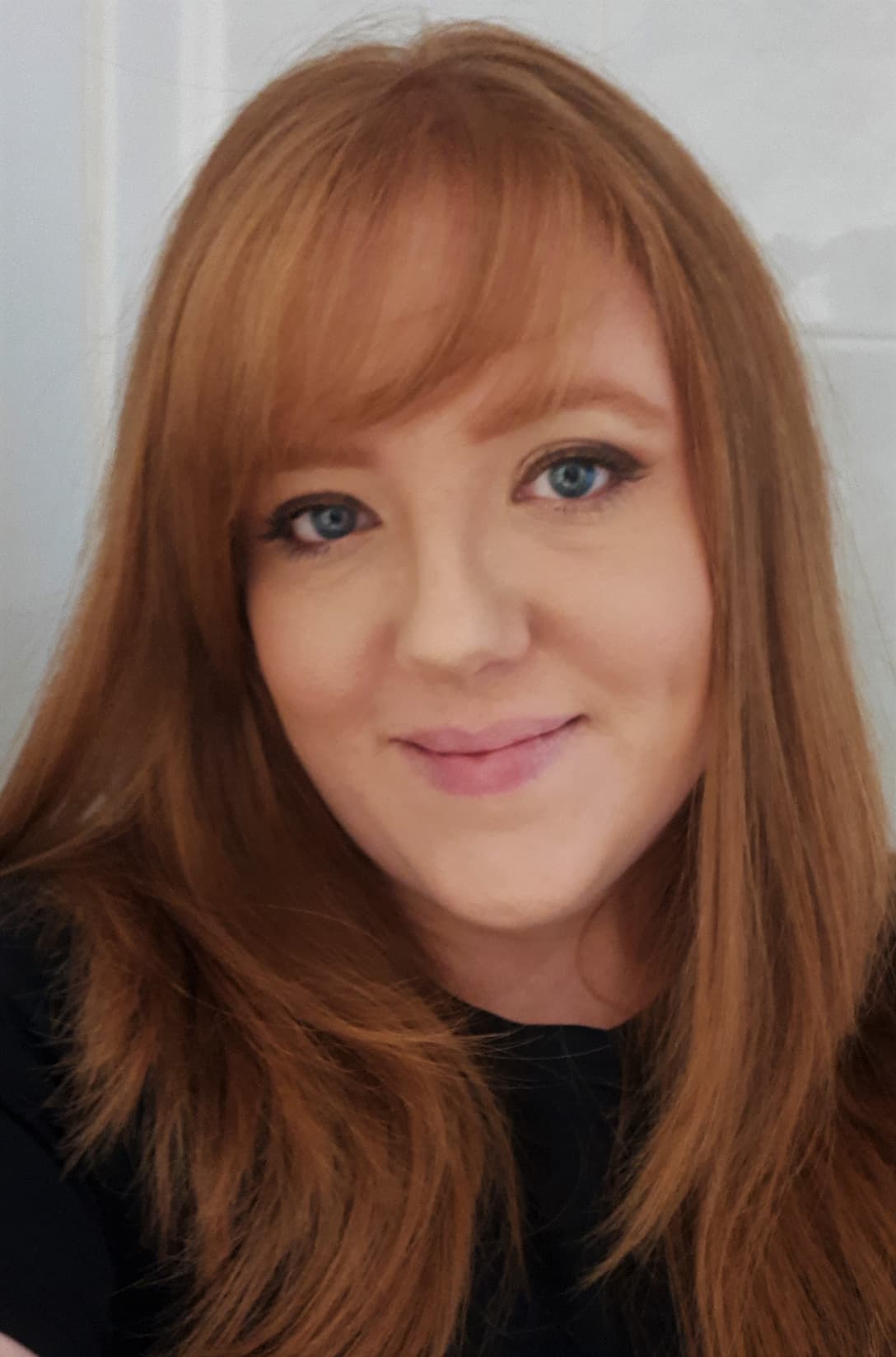
1. Tell us about your role at the University.
Prior to lockdown, I was based mainly at the Marischal College Collections Centre, and then at the Zoology Museum for two days a week. Since the pandemic, we have all had to adapt to working from home, meaning that my role has become much more documentation-based, including supporting the shift to blended learning.
My role within the Collections Team supports research and teaching using the collections, while caring for the objects to increase their longevity. I carry out housekeeping, pest monitoring and remedial conservation, as well as completing documentation work such as updating database records, filling in object movement forms, and cataloguing objects and natural history specimens.
2. How do you usually start your day?
With a large cup of tea to set me up for the day!
As my role is so varied, I check my calendar to make sure I know which building I should be in and whether I have housekeeping, collections work or documentation to complete. I love that I can be flexible with my workload, which allows me to prioritise, particularly if there is a research visit or class visit scheduled in the diary. This flexibility allows me to work on several projects at any one time, meaning that I can manage my workload more effectively and complete several smaller projects at the same time.
3. What brought you to the University of Aberdeen?
My career with the university museums began back in 2013, when I arrived as a fresh-faced Museum Galleries Scotland Intern, from the south of England.
Since then, I have been lucky enough to work within the same team as a Conservation Assistant and later Curatorial Assistant, before progressing into my current role at the beginning of 2020.
4. What's your favourite thing about your job?
I love how varied my role is and feel lucky to be able to work 'hands on' with such incredible collections every day. Not only is my day-to-day workload varied and interesting, but I also get to work with a diverse range of individuals including students, academics, researchers, and members of the public.
5. What are your work priorities at the moment?
Since working from home, I have been focused more on supporting teaching using the museum collections, answering research enquiries, and updating object records on the museum database. Now that we are able to access the collections again, I have begun working on re-housing the Nigerian artefacts held at the Marischal College Collections Centre. I am also set to begin work on an exciting new project at the Zoology Museum, as part of this years 'Zoology 50' celebration, so watch this space!
6. How do you like to relax outside work?
I love nature and the outdoors, and during lockdown I invested in a new telephoto lens for my DSLR camera. As an RSPB member, I can often be found at a local wildlife reserve such as Fowlsheugh or Loch of Strathbeg, trying to get that 'perfect shot' of a bird I've spotted that's too far away!
I love gardening too and, in the summer, I try and grow my own vegetables in the garden. This year we have built our first raised bed, and I am already planning what veggies I can grow in it.
I'm also an avid crafter, and enjoy card making, sewing, as well as recently taking up embroidery.
01 April 2021
- Jen Shaw
-
Assistant Curator Jen Shaw is a familiar face to many, having previously worked in Special Collections. She returned to work in the University's Museum & Special Collections Public Engagement team just days before the start of the pandemic. Find out how a year of online digital engagement has helped her prepare for the roll out of an exciting new project which aims to bring to life the museum collections virtually.
1. Tell us about your role at the University.
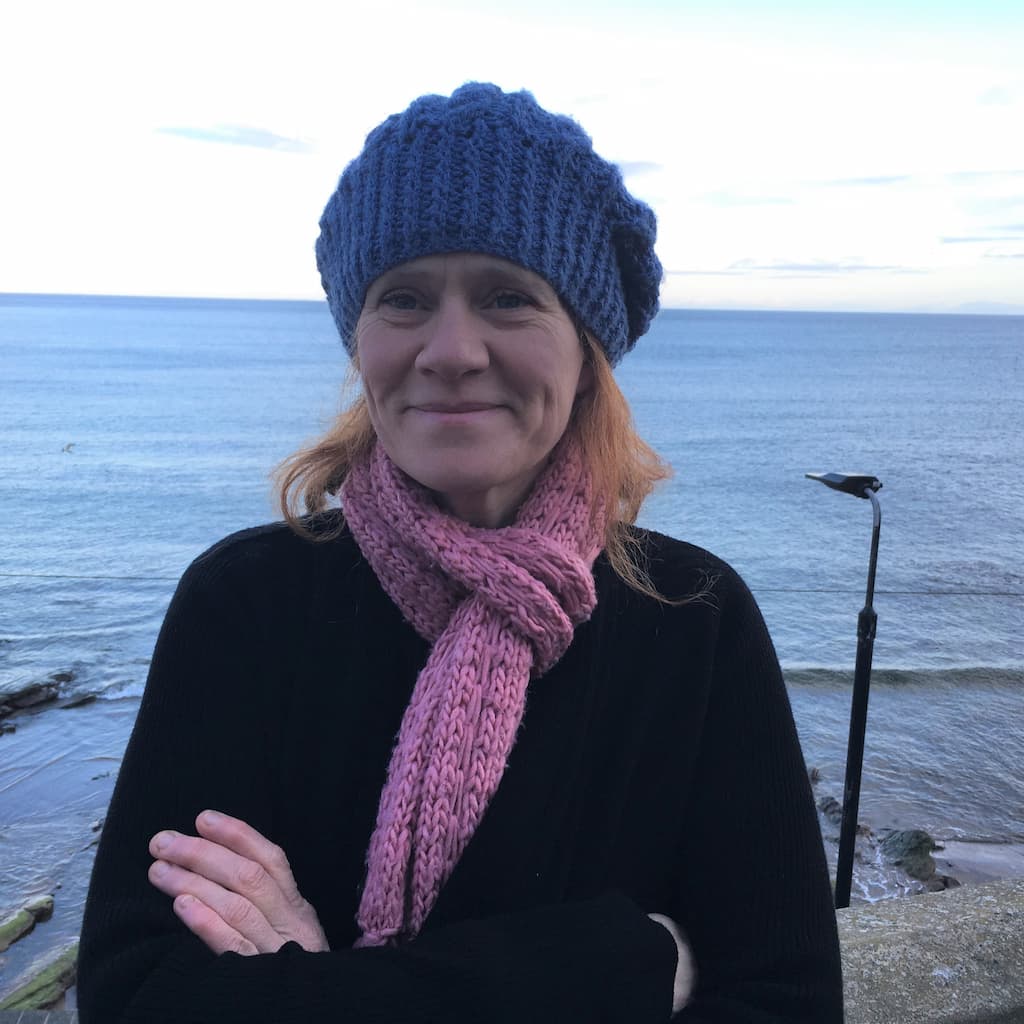
I was back on campus for just a week and a half before it became clear that my job as part of the Museum & Special Collections Public Engagement team was going to be very different - no on campus events to plan. Instead, we shifted to creating online content. Now, after a lockdown year of digital engagement, I'm engaged in the roll out of a new year-long project co-ordinated by Lisa Collinson that will build on this experience.
The Open to All project, funded by Museums Galleries Scotland, aims to improve online access to the collections and their stories. We will be finding out what sorts of images of museum items people are interested in seeing before we embark on a period photographing objects and showcasing them in different ways on our social media platforms.
You can follow us on Twitter, Facebook and Instagram.
2. How do you usually start your day?
Now that my seven-year-old is back in school (hurrah) I start my day thanking my lucky stars that I'm not having to do maths straight after breakfast - it was tough. Respect to all teachers out there! So, once he's on the bus to school, it's the long commute to the living room to start work.
My day can be quite varied - it might involve planning for an online event; video editing; working on the website, or brainstorming social media ideas with the MSC team, oh and a LOT of MS Teams meetings!
3. What brought you to the University of Aberdeen?
The weather.
4. What's your favourite thing about your job?
The University Collections are vast and wonderful, curious, and inspiring - and that goes for the Museum & Special Collections team too. It's great working with both!
5. What are your work priorities at the moment?
The University Collections are vast and wonderful, curious, and inspiring - and that goes for the Museum & Special Collections team too. It's great working with both!
6. How do you like to relax outside work?
As home is now the office during the week, it's great to head off to the allotment at the weekend - living the Good Life! Purely by chance, an allotment became available in the grounds of Duff House in Banff just a few weeks before the first lockdown and it's been a great way to switch off.
Living in Gardenstown, of course, I'm lucky to be just a stone's throw from the beach and there's nothing more relaxing than a stroll across the sand to Mohr Head. A bit less relaxing though is the fact that I've just accepted a neighbour's challenge to swim from Crovie pier to Gardenstown pier, across Gamrie Bay this summer. I'll let you know how that goes!
25 March 2021
- Ruth Quigley
-
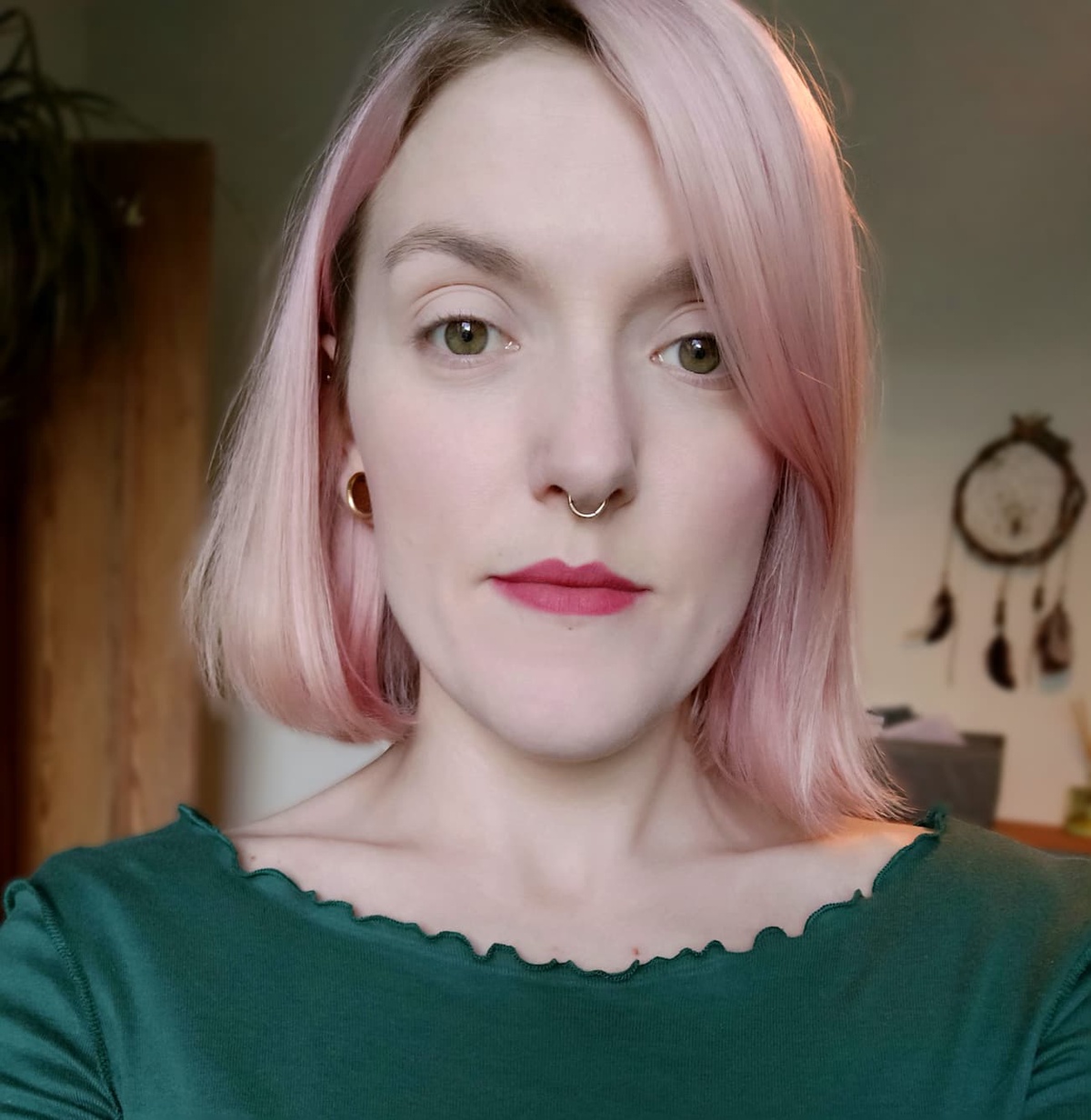
1. Tell us about your role at the University.
Currently, I am the Postgraduate Research (PGR) Administrator within the School of Biological Sciences, responsible for the PGR administration from point of enquiry through to graduation. I organise PGR events such as the annual conference, and even get to go on the annual retreat to our field station in Cromarty. It's a great role, with a lot of variety and it's nice to have contact with the students and to support them through their PhD journey.
I also work closely with two PGR student ambassadors on engagement activities and offer holder conversion, which has been a real highlight. As of the end of March, however, I will be transitioning into a new role in the Postgraduate Research School as the Recruitment and Admissions advisor.
2. How do you usually start your day?
After my Earl Grey and crumpets, I like to have an email free morning (where possible) to work on other tasks.
I am currently undertaking an MA in Digital Marketing alongside my role. The modules for this are fed in to mostly from the work I do in relation to PGR recruitment. I like to spend at least one morning a week on tasks like this.
3. What brought you to the University of Aberdeen?
I joined the University in 2003, for the Summer School access course, later graduating with a 1st class BSc in Zoology in 2017.
I worked as a student ambassador throughout my degree and went on to work in international student recruitment before starting my current role in 2019.
It has been great to see the University from both a staff and student perspective, especially within my own School.
4. What's your favourite thing about your job?
I know it sounds sad, but I love producing reports from Student Records and Admissions data. However, I also really love to see a student from interview stage right through to becoming a confident PhD student.
I organise our Research Day, where first year students present a talk on their research project; it's nice to then see them presenting a poster the following year at our conference once their project has really got going.
5. What are your work priorities at the moment?
Some other colleagues and I have just finished most of our recruitment work around our Doctoral Training Programmes (DTPs). This has been our focus for the past few months from advertising to application processing and interviews.
The DTPs are very competitive and attract high class applicants; this year they were open to international students as well, which increased the interest significantly.
6. How do you like to relax outside work?
I am not sure my colleagues would agree that I do relax outside of work! I am (usually) a competitive triathlete and last year joined the University road cycling club as a sponsored cyclist.
Despite local races not going ahead, I have continued to train throughout which has kept me sane in the last year of lockdown! I also enjoy spending time with my cat Bones and cooking nice plant-based food.
18 March 2021
- Lindsey Wightman
-
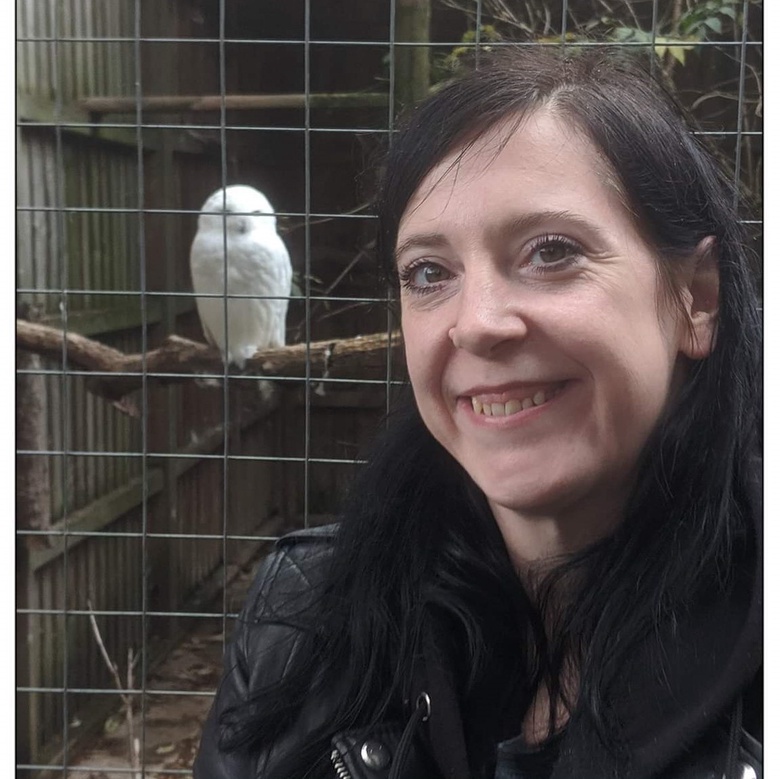
1. Tell us about your role at the University.
I have a range of responsibilities, but the main ones are the line management of secretarial staff, the administration of the Disability Support Team with additional help from my team, as well as back of office management.
2. How do you usually start your day?
My day starts with a cup of coffee and puss cat belly rubs. I am logged on between 8am and 8.30am for a quick catch up on my mailbox prior to the daily duty/disability/admin meeting at 9am. These have been a life saver for me during lockdown as I live alone with my cats, brothers Thor and Loki.
3. What brought you to the University of Aberdeen?
I had been out of work for five years due to health problems; after long-awaited surgeries, I couldn't wait to get back to work. I had worked in social work previously, so was glad to get back into a caring profession.
4. What's your favourite thing about your job?
I really enjoy the face-to-face interaction with colleagues and students, and I have really missed that and our beautiful campus since working from home. Being able to help a student who has been struggling for whatever reason can be very satisfying.
5. What are your work priorities at the moment?
Helping to support our students who are struggling for various reasons but in particular those experiencing mental health difficulties as a result of the Covid-19 pandemic. We are extremely busy with those types of queries at present.
We are also very busy assisting with Winter Covid Hardship Fund applications given to higher education institutions by the Scottish Government to help all students affected by the pandemic. It's open to all students so our workload has kicked up a gear or two.
The deadline for having Disabled Students Allowance applications is also fast approaching, which creates a lot of work for the team at this time of year.
6. How do you like to relax outside work?
Music, my cats and good TV are generally what relax me at present, because that's all I really have access to given current lockdown. However, when the world is “normal” I love going to gigs and festivals and meeting friends and family for adventures of any kind. I love to travel, with my favourite places being the Isle of Skye and Norway.
Music is my main love though - I'm a rocker at heart. I'm also a star gazer and would love to go to space someday. It will never happen, but a girl can dream!
11 March 2021
- Chantal Den Daas
-
Behavioural scientist Chantal den Daas joined the University last year, eventually moving to Aberdeen in October. Find out how she has embraced her new life, despite the ongoing pandemic.
1. Tell us about your role at the University.
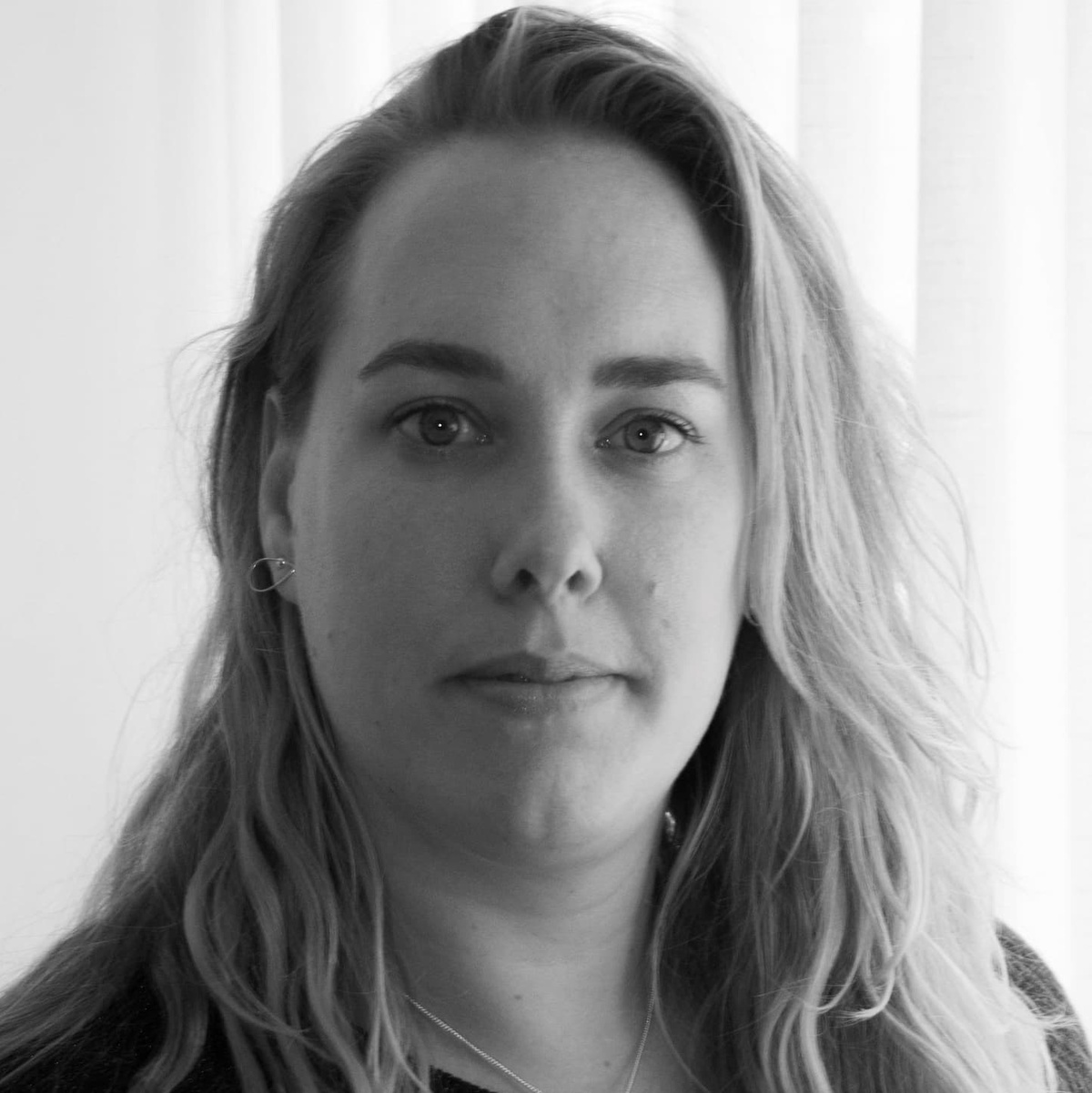
2. How do you usually start your day?
Coffee! I usually start my day with my first cup of coffee and breakfast. I have started eating Scottish oats, somehow a warm breakfast makes waking up in the dark easier. I started this year with a Hell week (developed by Erik Bertrand Larssen), a week where you wake up at 5am, work out first thing in the morning, and then get to work, and try to be your best self for seven days. Even though the 5am wake up was easier than expected, I have not been able to keep this up.
3. What brought you to the University of Aberdeen?
I moved to Aberdeen last October, but I started in May, working remotely. I saw an advert for a position as a senior lecturer at a conference I was attending. I have not regretted the decision to move to Aberdeen, even in the time of a pandemic and Brexit…
4. What's your favourite thing about your job?
What I love about working in Aberdeen is the positivity. Even though I have not yet been in the office, I am still getting to know everyone, and I feel included at the University. There is an open, welcoming culture that made me feel like I belong. I also love the 'can do' attitude - everyone seems really committed to doing great work and making things work if they can. Working at Aberdeen has not felt like working at all.
5. What are your work priorities at the moment?
I am currently supervising six students in their research projects; my priority is to have them do great research in less-than-ideal circumstances. I am also co-ordinating a postgraduate course and my priority is to have this run smoothly. I am also involved in grant application for two PhD students, running all the analyses for the CHARIS project, and working on all the projects I previously mentioned, which include supervising PhDs and writing up some manuscripts and book chapters.
6. How do you like to relax outside work?
Usually this would involve visiting wine bars, going to restaurants, concerts, festivals and comedy shows. A couple of times a year, I would take a long trip somewhere, the last one was in 2019 to Suriname, to travel around that country, take in some sun, eat foreign food, and drink cocktails. I can't wait to be allowed to travel again. Currently, I read books, watch Netflix, bike through Aberdeen, and drink wine.
24 February 2021
- Chloe Hardy
-
Chloe tells us about her role as Admin Assistant in the School of Medicine, Medical Sciences and Nutrition.
1. Tell us about your role at the University.
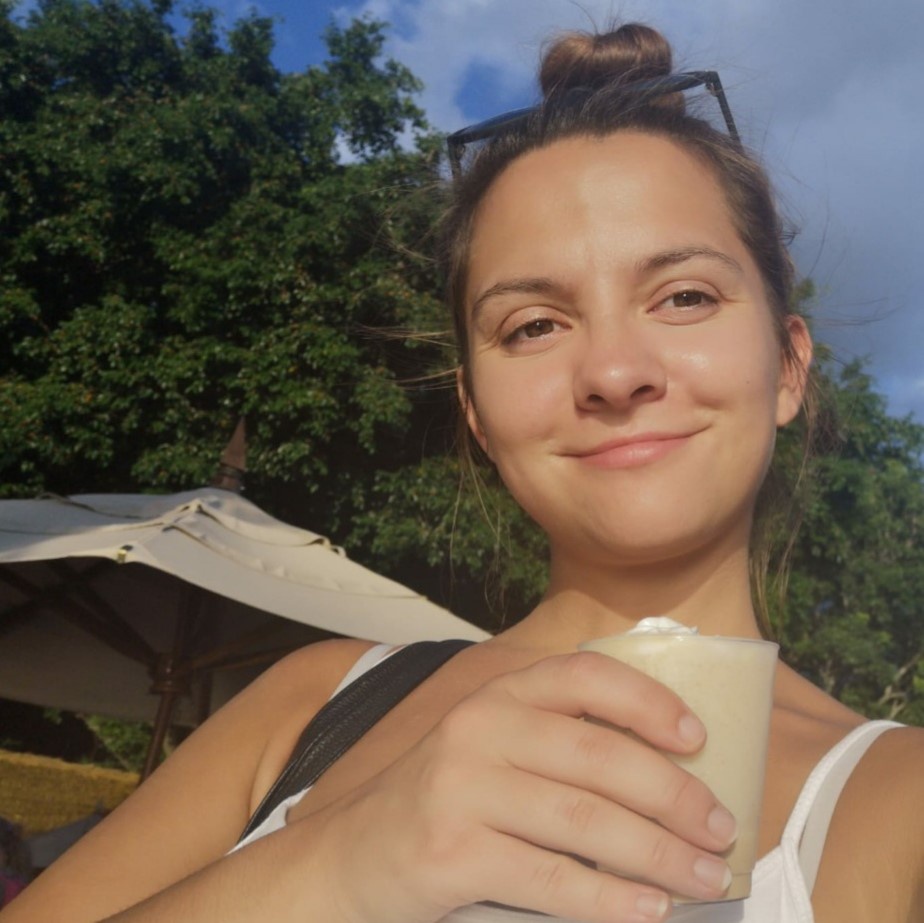
2. How do you usually start your day?
With a big coffee! Once that's in hand, I'm at the laptop raring to go.
3. What brought you to the University of Aberdeen?
I started here as an apprentice five years ago working full time and doing my work towards a qualification. Once I completed this, I was offered a permanent contract and have stayed put ever since
4. What's your favourite thing about your job?
I like that there is a lot of variety in my job and I don't spend too much time focusing on one thing, I think I would get bored! Also, at the end of the year seeing the students graduate gives you a bit of a proud mum feeling.
5. What are your work priorities at the moment?
With the new semester beginning, just now I am prioritising making sure assignment submissions are all set up and we have everything in place for them. I am also about to clerk student staff liaison committees this week, so that will also take up a lot of time.
6. How do you like to relax outside work?
We're pretty limited to what we can do just now with lockdown being in place, so I have binge watched A LOT of new series with my boyfriend and, having recently moved to a new town, I have been walking more after work to get myself familiar with my new surroundings. I still get lost a lot!
11 February 2021
- Clare Trembleau
-
Staff Development Partner Clare shares with us her passion for delivering staff professional development and training.
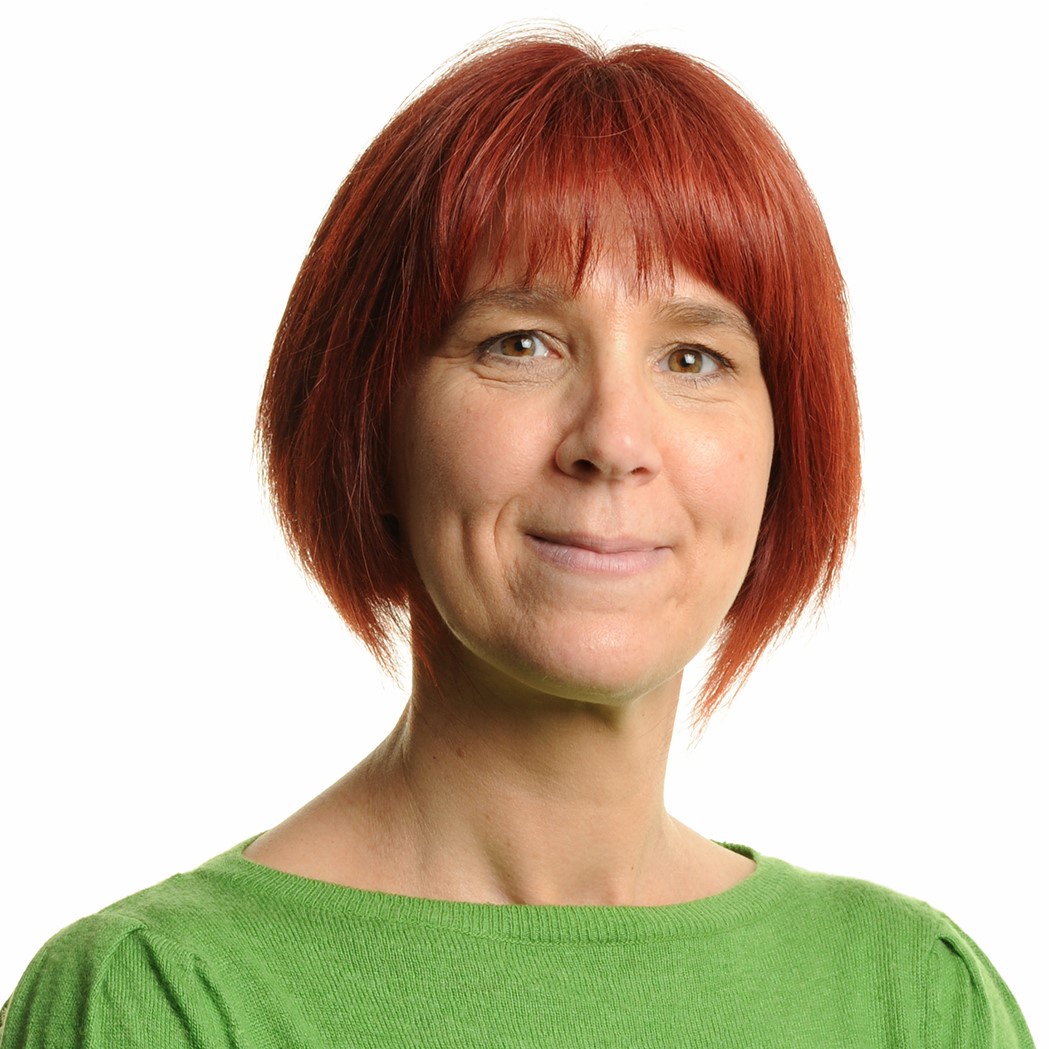
I am the lead for all staff professional development initiatives, which involves mainly designing and delivering workplace skills training and leadership, management and coaching qualifications. I also work with teams and individuals to respond to any development needs that have been identified, tailoring workshops to facilitate their desired outcomes. I am a qualified workplace coach and mentor and part of the Universities Coaching and Mentoring scheme, which is another great method we use for individual development and realising potential. I have recently become a workplace mediator, joining the existing team of mediators. I am also a member of the Women's Development Network Steering group.
2. How do you usually start your day?
With a cup of tea and that is an absolute must!! (I love the drink so much I have a teasmade next to the bed, so I don't even have to go downstairs). Tea obsession apart, I greet the cat enthusiastically every morning in the hope that he will eventually acknowledge my existence. I am usually up before everyone else, so I just like to enjoy the peace. I have the obligatory read of the news and other stuff on my phone and then start to get ready for the day ahead, not before checking again if the cat will finally return my affection.
3. What brought you to the University of Aberdeen?After living and working all over the place (Brussels, San Diego…. Preston!) we moved to Aberdeen 16 years ago as my husband was offered a job here. I spent a few years working in oil and gas and then 12 years in a charity, both in learning and development, until I decided it was time to move on. I'd always wanted to work at the University as being steeped in a learning environment really appealed to me so, when an opportunity arose a couple of years ago, I applied and - to my delight - got the job.
4. What's your favourite thing about your job?This is difficult to answer without a cliché, but I love working with all the staff I come into contact with across the University. I like to hear people's stories and how they can enrich the training sessions I deliver with their own experiences. I always like to come away from my training having learnt something new from my colleagues, and that usually involves finding out about the many diverse roles we have at the University. I also really appreciate the fact that I have an appropriate degree of autonomy to manage the professional development we offer, based on the trust placed in my experience in the field of learning and development. This allows me to shape what we do and bring in new ideas and be creative with the resources we have.
5. What are your work priorities at the moment?I am currently preparing to start another ILM Level 5 leadership and management cohort on the OnDemand platform for external participants, and then I will start to work on creating a Level 5 coaching and mentoring qualification. In terms of training delivery, I am jointly running an ILM Level 3 effective coaching course with the University of St Andrew's, which will qualify some new coaches for our internal pool. I am also looking at how we are going to support the University as the year goes on with our professional development courses based on some of the feedback from the staff survey. I have a few teams that I am supporting with project work, so I am looking at putting together proposals to take that forward.
6. How do you like to relax outside work?I have a 10-year-old and a 16-year-old, so relaxation is always interrupted by the need to referee between them. I like to get out and discover a walk that I haven't been on before in the surrounding area. Pre-covid activities currently on hold are seeing family, socialising with friends and travelling abroad to discover new places. I have also taken up embroidery during lockdown, which I have come to really enjoy. I didn't realise I had such a creative side.
18 February 2021
- Rebekah Walker
-
I am a Wellbeing Adviser in the Student Experience team. I lead on the University's Healthy Working Lives accreditation and BeWell programme.
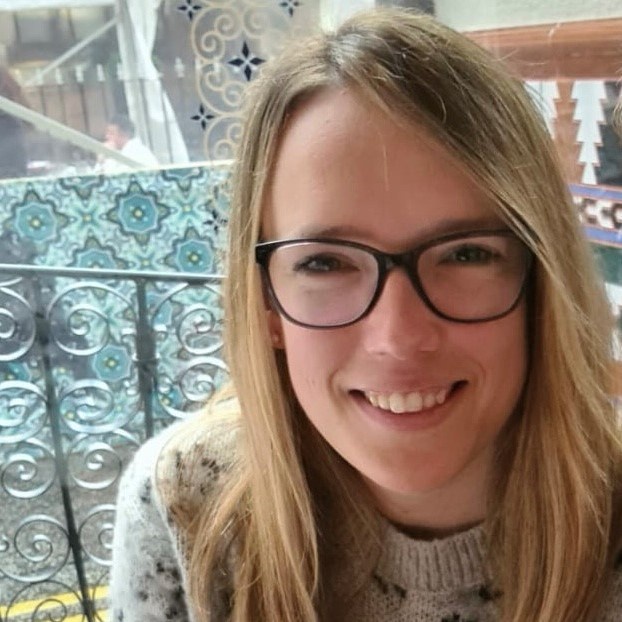
I am a Wellbeing Adviser in the Student Experience team. I lead on the University's Healthy Working Lives accreditation and BeWell programme.
2. How do you usually start your day?
I usually start my day early and head to the gym before work. It helps to wake me up and spikes my motivation so that I feel ready to take on the day. Right now, while the gyms are shut, I have taken up running and try to get out as often as I can, even if it's just for 20 minutes.
3. What brought you to the University of Aberdeen?
I wasn't actually looking for a new job. I just stumbled across the advert and knew straight away that it was an opportunity I had to explore. The range of staff benefits stood out and particularly the access to the Aberdeen Sports Village. As someone who is passionate about wellbeing it was important to me to work for an organisation that looks after their staff and invested in employee wellbeing.
4. What's your favourite thing about your job?
I absolutely love my job so it's difficult to pinpoint my favourite thing. I really enjoy engaging with the staff and student community through different campaigns. My favourite one so far has been the Movement Challenge last year. It was fabulous to see so many people having fun and being creative with movement.
5. What are your work priorities at the moment?
I have just developed a wellbeing campaigns and events calendar for the year ahead. We have some exciting projects in the pipeline that we hope the staff and student community will be able to benefit for. I am also doing a lot of work hosting our BeWell podcast series. It's been great fun recording the episodes.
6. How do you like to relax outside work?
I am a huge MK Dons and Manchester United fan so I spend a lot of time watching football. I also love to spend time outdoors, exploring the beauty of Scotland with my hubby.
04 February 2021
- Elaine Sinclair
-
Elaine tells us about her role as Community and Regional Engagement Officer and her love of nature.
1. Tell us about your role at the University.
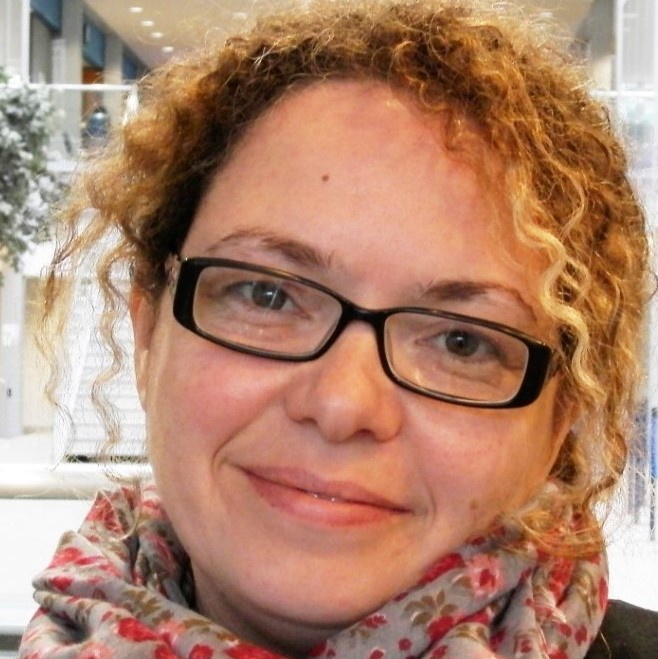
In my role to date, this has translated into practical day-today activities such as identifying and mapping the University's stakeholders and capturing the breadth, depth and outcomes of our current external engagement activities. More recently, and increasingly so going forward, the role includes identifying opportunities to enhance community and regional engagement, with the aim of helping the University achieve greater reach and recognition as one of the North East of Scotland's principal anchor institutions.
2. How do you usually start your day?
During lockdown, there's admittedly more chance of seeing the local sparrowhawk visit the garden than catching sight of my two teenagers of a morning but aside from some caring responsibilities, I usually walk on Beauty Hill with the dogs before work. With views over to Bennachie it's a wild place that I'm lucky enough to have to myself most days. Back home and with the lockdown reducing my teenager chauffeuring duties to little or none, getting the tasty toast and tea in hand as I turn on the laptop is pretty much my gold standard groundhog day.
3. What brought you to the University of Aberdeen?
The chance to build a new area of work from the bottom up in an outward facing role appealed as it is a challenge I've enjoyed before, including in HE roles. After 20 years in multisector partnership settings and 15 years in project and service management roles, the opportunity to continue to learn from new people and settings and to work closer to home and family was a big draw. I'd last been on campus over 20 years ago….it was a brief visit…to get married at Kings!
4. What's your favourite thing about your job?
Being outward facing, I regularly get to meet and work with new people so every day brings insight and opportunity; harnessing partners' enthusiasm, their willingness to engage or to simply learn from their lived experience to achieve better outcomes for the University and our partners is a real motivator. Starting a new job during lockdown has not been without its challenges but my experience of the #ABDNfamily has been very positive and I'm much appreciative of the kindness of colleagues across the University who have keenly engaged with and embraced my new role.
5. What are your work priorities at the moment?
As the University pledged to become a Civic University in 2020, part of a network of over 60 universities across the UK, I'm currently developing a pathway for the University to successfully develop, secure external accreditation for and implement a Civic University Agreement. The task of stakeholder mapping, tracking current engagement activities and identifying gaps and opportunities for enhancement remains ongoing, as does raising the University's profile via strategic engagement with local, city and regional partners. Some of this work is visible - the introduction of Civic News in 2020, the University's external stakeholder showcase e-bulletin - while a lot of the work is developed behind the scenes - making contacts, building networks and enabling new partnerships to link colleagues with opportunities on emerging issues.
6. How do you like to relax outside work?
I'm a beachcomber, losing more hours that I should admit on North East estuaries. I'm also a fairweather sea swimmer - more like float around on my kids boogie boards if I'm being honest - ideally in Assynt, but also at the many east coast gems such as Lunan Bay and Hackley Bay. Admittedly, I do fear I may scare the natives hilst getting the wetsuit on and off.
Wildlife and the countryside have always been close to my family's heart, whether in our unruly garden, gone to seed vegetable plots, out across Aberdeenshire or setting up wildlife trail cameras. I'm in year two of a three-year distance learning MSc in Countryside Management - it's been a bit tricky at time with juggling family and work with study and field trips - I'll admit that the extension request has been my friend on more than one occasion.
Finally, on the subject of relaxation, I've been a Blipper for over 10 years… the global BlipPhoto journal site that started in Edinburgh. I would thoroughly recommend becoming a Blipper, it's fantastic for keeping in touch with your nearest and dearest across the world and for capturing the small and big things in life in words and pictures that time and tide might otherwise make you forget.
28 January 2021
- Tracey Slaven
-
Tracey started her role as the new University Secretary and Chief Operating Officer in January.
1. Tell us about your role at the University.
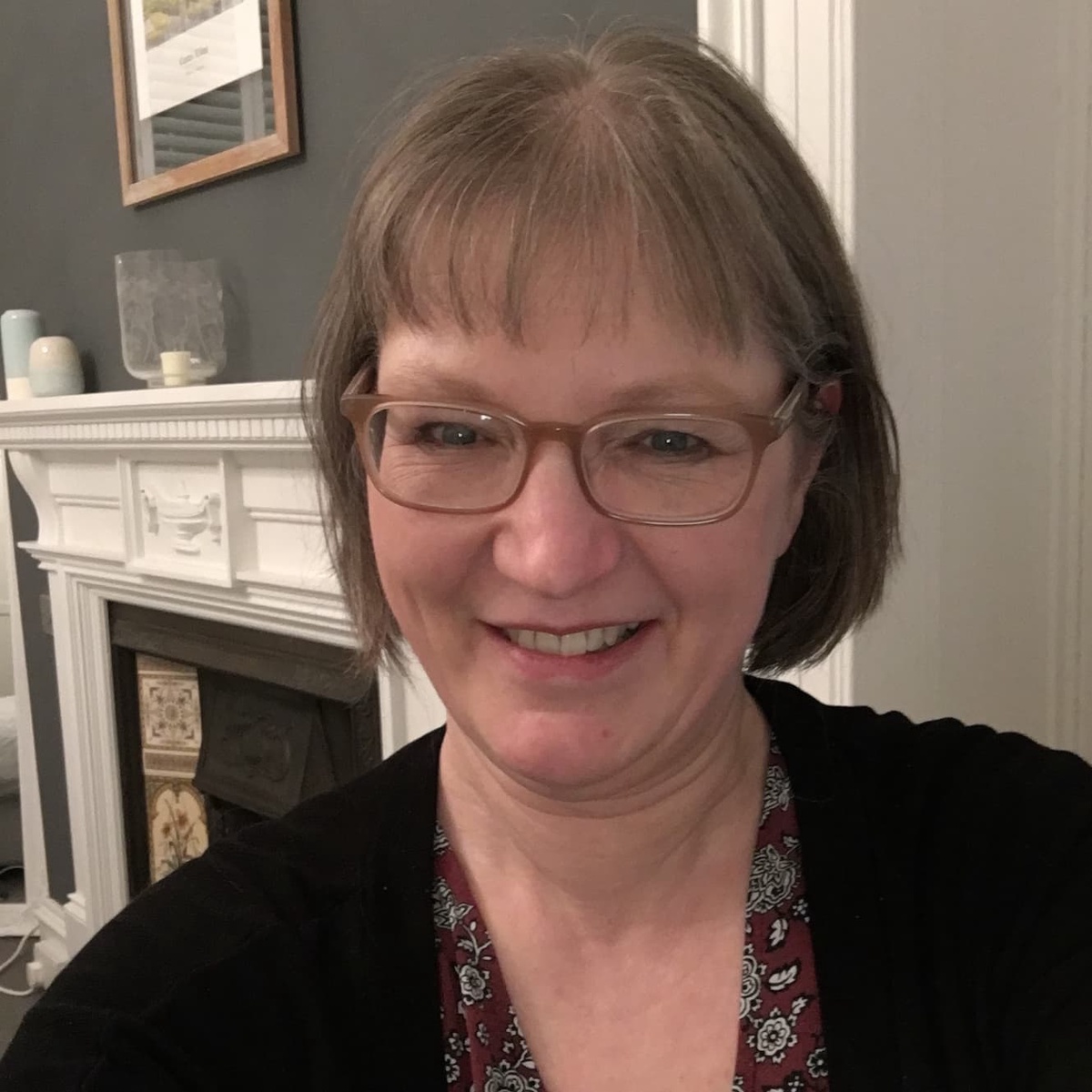
As Chief Operating Officer I'm responsible for Professional Services across the University. Whether it's service delivery or governance, both roles are fundamentally about supporting the University to be as effective as possible.
2. How do you usually start your day?
Definitely with a cup of tea and a first dose of BBC news. I can't function otherwise. However, I do try to be only half awake when I head to the crosstrainer to do 5km before starting work. I damaged a disk in my back about three years ago, and using the crosstrainer during Covid restrictions has really helped manage that - but I still don't like it.
3. What brought you to the University of Aberdeen?
The right job at the right University. I was looking to join a strong cohesive team, with the energy to make positive change and I think I've found that at Aberdeen. I was also influenced by the sense of potential around the University.
I've visited over the years, “working” open days alongside teams from SAAS or for Universities Scotland working groups - and that sense of a place you want to be was always there.
4. What's your favourite thing about your job?
I think it's the variety and range of things I get to engage with and the feeling that it makes a difference to real people.
5. What are your work priorities at the moment?
Hard to say anything other than contributing to our response to coronavirus but also hugely conscious that we need to plan a new trajectory. There are lots of challenges with changes following Brexit but lots of insights and opportunity as we've been forced into experimenting with digital delivery, flexible and home working and service design.
6. How do you like to relax outside work?
I love books, catching up with my daughters (two students and one working in London) and hugely miss going to the theatre (even panto) with friends. Exploring Aberdeen and the Shire is high on my list - but will need to wait a bit till post lockdown. I also started learning Spanish on Duolingo just before lockdown last March and I'm trying to stick with it. Day 338 - but the Duolingo Owl reminders are only slightly less annoying than the old Paperclip on Word.
14 January 2021
2020
- Robert Turbyne
-
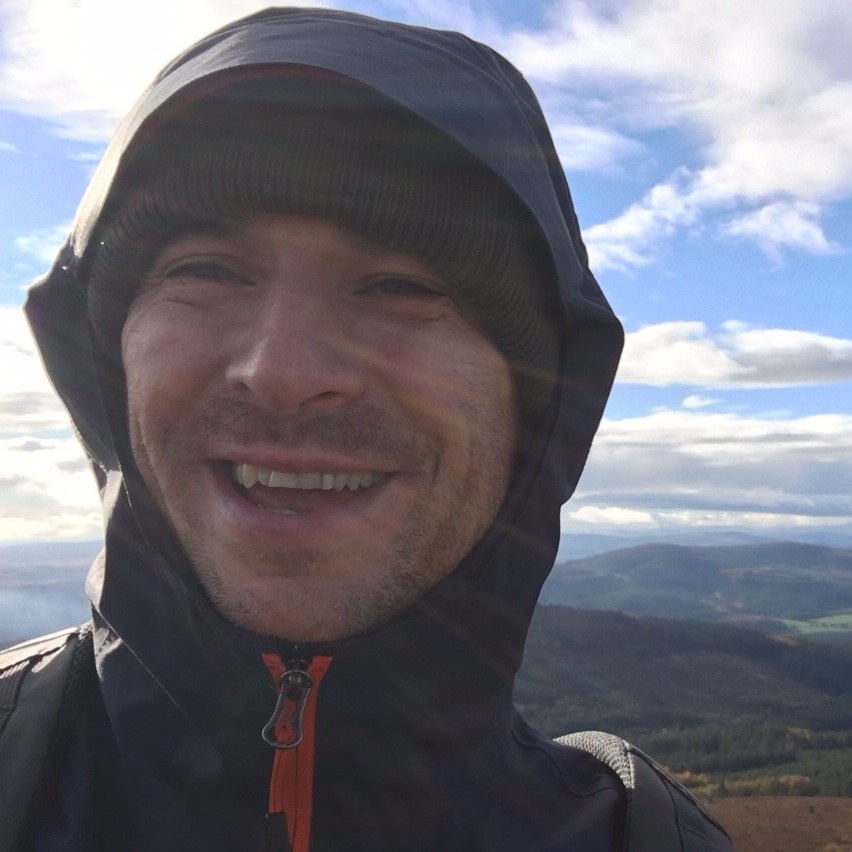
1. Tell us about your role at the University.
My role consists of drafting communications to staff and students, writing press releases, responding to media enquiries, drafting content for our website and social media channels, and a fair bit more besides! This year our team has been heavily focused on internal communications and keeping our community informed of everything they need to know as we navigate our way through the pandemic. Like every other team across the University I think we've done a good job in testing circumstances, but it has left us with far less time to dig out good news stories which is our bread and butter - so if you have any exciting news please get in touch!
2. How do you usually start your day?
I trained as a journalist and still consider myself one by vocation, so my favourite thing to do is find great news stories from across the University and tell people about them via the media.
My colleague Jo Milne set the bar high for all of us this week, with her press release on the discovery of a 5,000-year-old artefact from an ancient Egyptian pyramid in the University's Asia collection - the story was picked up across the world, and was among the top 10 most read on the BBC website. Tough act to follow!
The content can vary hugely, such is the breadth of activity across the University. The last press release I issued was about a donation of Christmas trees to a group in Aberdeen that supports young people in care - prior to that it was about some very interesting work led by Brice Rea and Matteo Spagnolo in Geosciences , who have studied glaciers to determine how the weather behaved in Europe 12,000 years ago.
As I said, varied! As a reporter, especially in local newspapers where I started out (hello any Fife Free Press or Falkirk Herald readers out there) you are given a 'patch' to cover which could be a geographic area, or possibly covering sport or the local courts.
The University is one of the busiest patches I've ever had to cover, and certainly the most interesting.
3. What brought you to the University of Aberdeen?
I'm looking forward to spending time with my wife and son. He's five and pretty lively so he keeps us on our toes. But like everyone else I'm just looking forward to some down time, or as much as I can reasonably expect to get. The extra days off are very welcome. I hope everyone has a relaxing time off because we all deserve it.
4. What's your favourite thing about your job?
I think I'd do all of the obvious things that I think anyone would do right now, using all the available powers at my disposal. That's a politician's answer isn't it? So all I've really done is prove that I'd make a very bad Santa…
5. What are your work priorities at the moment?
Aside from all the usual ones, I always look forward to finding out what's going to be my favourite Christmas song, which will invariably change from year to year. This year's winner is 'I Believe in Father Christmas' by Greg Lake. I've no idea why, but it seems to have struck a chord with me this year. My favourite Christmas film is steadfastly Home Alone, and it would take something very special to change that - I introduced it to my son last weekend, but he only seemed to be interested in the violence. Which to be fair are the funniest bits, albeit I'm not advocating the misuse of blowtorches.
6. How do you like to relax outside work?
I'll keep my own counsel on that, I can't face the shame of admitting that I've failed on them all come the end of January.
18 December 2020
- Richard Anderson
-
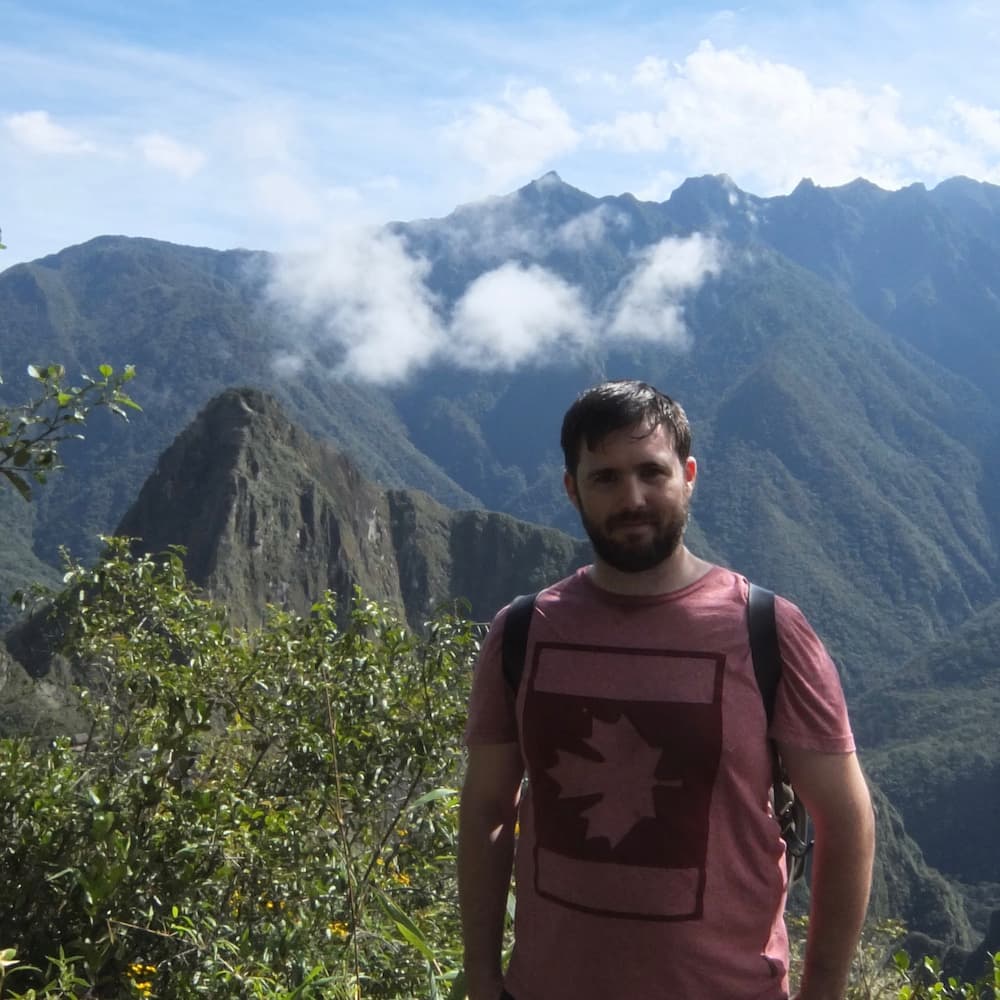
1. Tell us about your role at the University.
I am a lecturer focusing on the history of slavery and abolition in Africa and the African Diaspora. I am undertaking a two-year research project examining the legacy of historic slavery to the University of Aberdeen within the context of the broader region.
2. How do you usually start your day?
Emails, reading, and writing. Usually in that order. I find reading the work of others is a useful stimulant and inspiration for the more difficult task of writing. But all of this comes after coffee and a peak at my Outlook calendar for the day.
3. What brought you to the University of Aberdeen?
There is a great amount of work being done in Scotland on the histories and legacies of empire. This was a unique opportunity to be a part of these discussions within a 525-year-old university.
4. What's your favourite thing about your job?
Historians like archives and museums. Much of my current work involves working with curators and archivists at Aberdeen and exploring the university's incredible collections.
5. What are your work priorities at the moment?
I am developing new modules on the history of Africa and the African Diaspora that I will be teaching from 2021 onward. The COVID pandemic has made it difficult to get to know students, but the University has some very active student societies and it has been great working with them on online events.
6. How do you like to relax outside work?
So far, it has been getting to know Aberdeen and the region having moved from Cornwall in August. Getting back into running has been a great way to explore. I think I have settled on a route past St Machar's Cathedral and through Seaton Park. I have also dusted off my old snare drumming sticks and have been practicing for any pipe band that will take me.
02 December 2020
- Emma Raymond
-
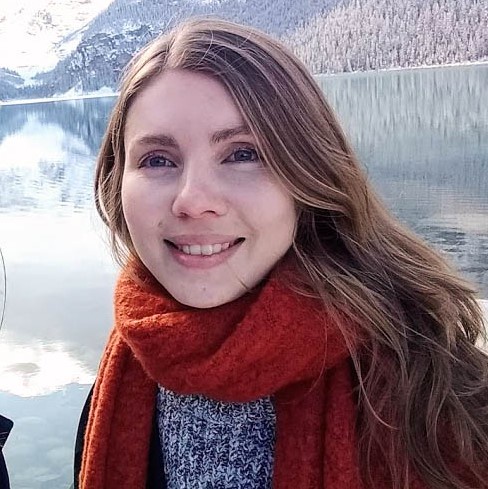
1. Tell us about your role at the University.
I work in Museums and Special Collections and alongside my colleagues I'm responsible for exhibitions in the Sir Duncan Rice Library Gallery, as well as other smaller displays around campus.
The job is very varied - I see an exhibition through from its early stages to its completion, so I work on coming up with object lists, writing text, designing the physical space and layout, promoting the exhibition and physically installing it before it opens to the public (and then deinstalling it at the end!). It involves lots of collaboration - we often work with academics, students and other organisations on our exhibitions.
2. How do you usually start your day?
Before Covid, there was a bit more variety to how I started my day. During an exhibition install I might have started my day in the gallery, getting things ready to go for a new exhibition. Mostly, I start my day checking emails as there's quite a lot of co-ordination and communication involved in curating exhibitions.
3. What brought you to the University of Aberdeen?
I'm from London originally but did a Master's in Edinburgh and fell in love with it. While being there, I also had a great experience working with a collection of rare books. Later, when I saw this job advertised in Aberdeen, I thought it sounded like a fantastic opportunity and I was keen to live in Scotland again. Working at a University was also appealing - I liked the idea of getting to learn about the exciting research going on and helping to showcase it through exhibitions.
4. What's your favourite thing about your job?
My favourite aspect of the job is learning about new things and then working out how the subject can be explained to and shared with an audience in an engaging way. I've got to learn more about Victorian visual illusions, Chilean textile art and nineteenth century naturalists in this job. It can be a challenge explaining complicated subject matter in concise and interesting ways, but it's one I enjoy.
5. What are your work priorities at the moment?
My main focus right now is preparing for deinstalling the latest gallery exhibition, which has been a bit more tricky than usual given the restrictions posed by Covid-19. Once that's out of the way, I will be able to focus more on a new exhibition marking 100 years of the University' Student Show, an online exhibition that will show off a lot of our archival collections and tell stories of the show, which is the longest running student theatre production of its kind in the UK.
6. How do you like to relax outside work?
I like writing, mostly short stories, and I read a lot. I probably spend most of my free time watching films and then I listen to podcasts about films. This year, with not being able to travel, I started trying to watch a film from every country in the world. So far, I've watched a lot of Spanish language films to help improve my vocabulary before I (fingers crossed!) go to Mexico to visit my partner's family next year.
12 November 2020
- Julia Leng
-
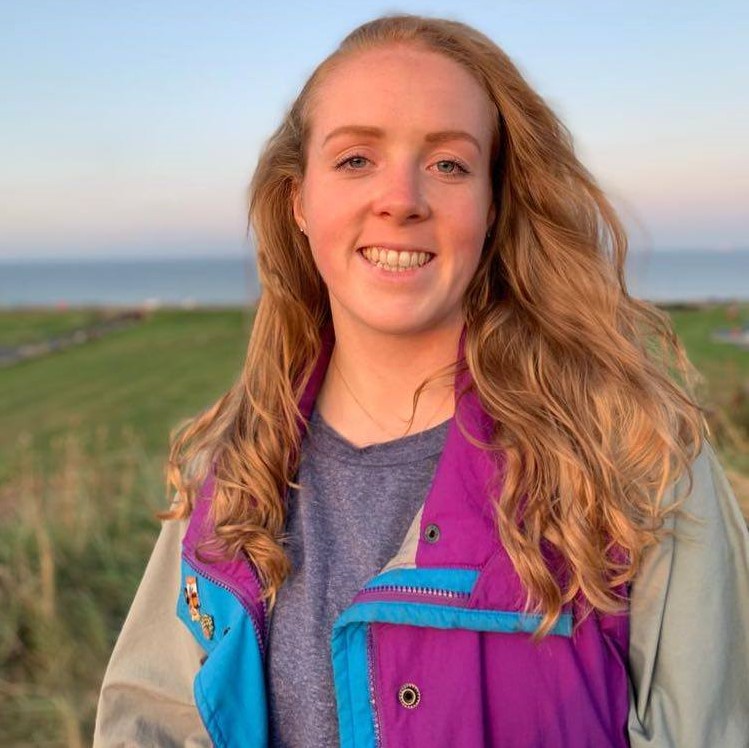
Julia tells us about her role as Graduate Trainee at the Careers and Employability Service and what has changed for her since the start of the pandemic.
1. Tell us about your role at the University.
In my role I support students as they move from university to the world of work or look to enhance their employability during their studies.
My job involves conducting CV/application checks with students, leading workshops and assisting my colleagues with the running of co-curricular programmes, most notably the BP Student Tutoring Scheme and the Careers Service Ambassador programme. I also contribute to marketing strategies and lead on promoting the service though our social media channels, working hard to encourage engagement with students from all levels of study.
2. How do you usually start your day?
Whilst working from home I have missed my usual walk to work so instead I start each day with a 3 mile walk up the beachfront and back. During this time I like to listen to podcasts and prepare myself for the day ahead. Once home I have breakfast and read a few pages of my book or The Week magazine before heading to the spare room/work from home office.
3. What brought you to the University of Aberdeen?
I studied my undergraduate degree here and graduated in 2019. As a student I participated in the BP Student Tutoring Scheme and gave a presentation on my experience. A member of the Careers team heard me speak and approached me afterwards to tell me about the job and encouraged me to apply. I was thrilled to be offered the job and the chance to stay on at the University, accepting the offer before my graduation and moving from student to staff member in the space of a couple of months!
4. What's your favourite thing about your job?
The fact that I am always learning. Every day I learn something new, be that from speaking to students, taking time on my own to work on our social media strategy or chatting to my colleagues in our team meetings. I have also had the opportunity to connect with employers and colleagues working in other parts of the university, which brings a great variety to my day and new perspectives from which to view careers guidance.
5. What are your work priorities at the moment?
We are currently running our Aberdeen Employability Boost Award so there is a lot of marketing going on around the events, workshops and learning resources that are available to students and graduates. With everything being online our marketing is more important than ever to spread the word about our services and what we can do to support students.
I am also currently studying for a Postgraduate Certificate in Careers Education, Information and Guidance in Higher Education at the University of Warwick. The course is delivered in collaboration with the Association of Graduate Careers Advisory Services and I am very much enjoying learning more about the role of the Careers Adviser in a university setting.
6. How do you like to relax outside work?
Before the pandemic I enjoyed playing netball and squash during the week as a great way to keep active and socialise with different people around Aberdeen. I hope to be able to do that again soon but in the meantime I have taken up cycling as a COVID friendly alternative. Having had a bit more time this year I've been reading more than ever, and I've made the effort to broaden my horizons in choosing books I might previously have overlooked.
05 November 2020
- Alexander Ross
-
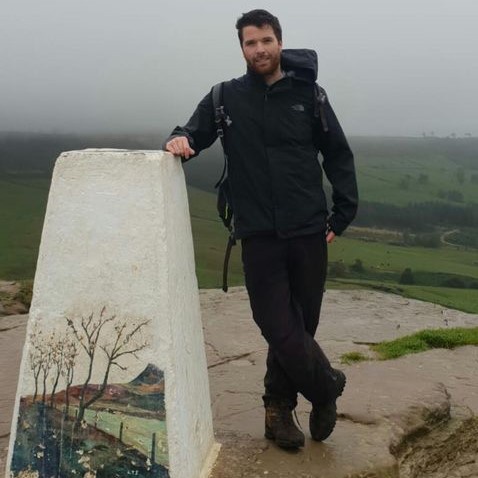
1. Tell us about your role at the University.
I help the University and its academics develop political relationships, ensuring that the strategic aims of the University are implemented, and research has political impact.
2. How do you usually start your day?
I read some of The Times and Financial Times while having breakfast, which is good for keeping up with developments. I then listen to Times Radio while checking emails - a great alternative to the Today Programme for current affairs. Although I do prefer Test Match Special when that is on.
3. What brought you to the University of Aberdeen?
I had previously worked for two universities while employed at a public affairs agency and found it motivating to work within a sector that provides a significant societal benefit.
Working with talented people who are passionate about their work is a great place to be, which applies to the PASE team (Public Affairs, Stakeholder Engagement & Events), my wider directorate and the academics.
The Aberdeenshire coastline, countryside and golf courses are also appealing.
4. What's your favourite thing about your job?
Meeting and supporting academics who are passionate, intelligent and committed to their work.
5. What are your work priorities at the moment?
I have been ensuring that politicians are kept informed about the University's response to Covid. I am also working on a PASE team plan, which will help to achieve the University's strategic ambitions.
6. How do you like to relax outside work?
I've been playing a lot of golf through the pandemic, but the way I play is far more stressful than relaxing.
In the absence of pandemics, I like to play squash and most other racquet sports. I love music, reading, being outdoors and seeing new places.
22 October 2020
- Vanessa Holmes
-
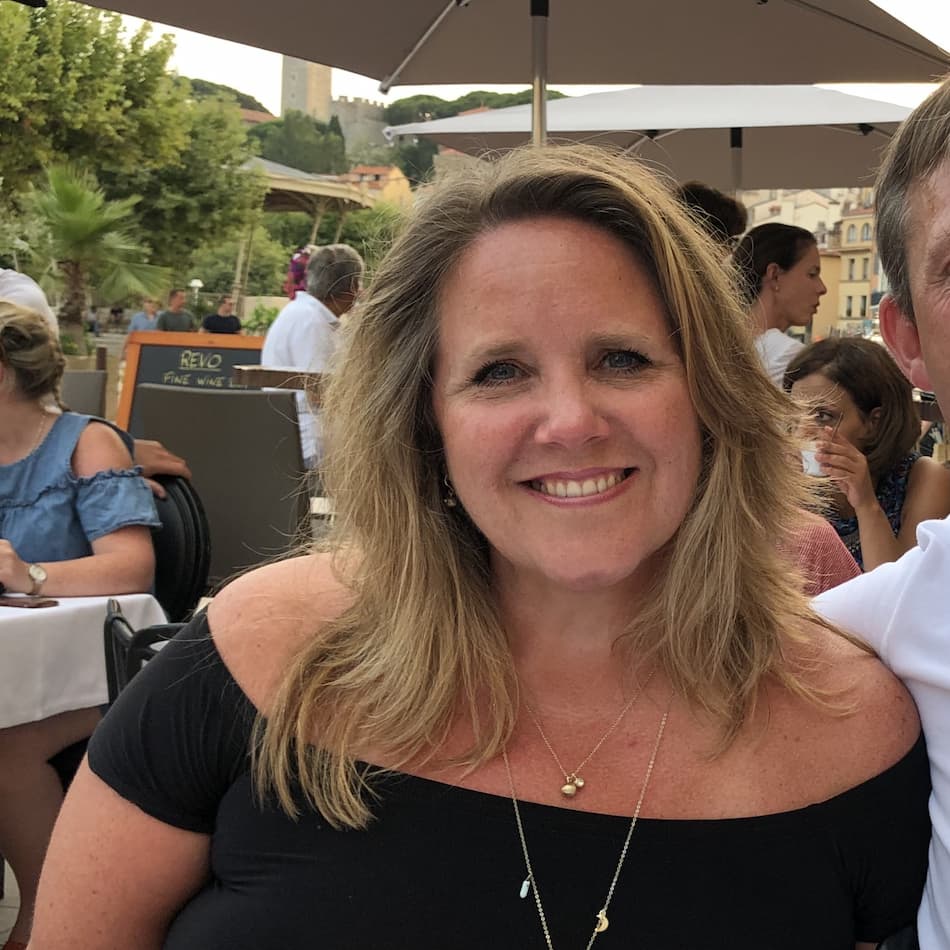
1. Tell us about your role at the University.
I work in the Alumini Relations and Advancement Services team as a Fundraising Research Officer. My role is researching donors that have a potential affinity to the University which can include due diligence on large donations being offered to the Trust. It is essentially finding donors that can potentially support our students through their higher education journey or it may support medical research and many other areas.
2. How do you usually start your day?
Most mornings I do a HIIT cardio work out. Once I am dressed and ready for the day, I grab my breakfast in front of the computer, catching up on email correspondence and planning my day. Coffee features in there somewhere, too.
3. What brought you to the University of Aberdeen?
I started this job in November last year, so I am a 'newbie' to the University but have lived in Aberdeenshire for 21 years now. I moved from London due to my husband's job. About 7 years ago I did some community fund raising for Gastrocan - this is when I first heard of the Development Trust. I liked the ethos and always wanted to be part of the team. I got my opportunity last year and jumped in with both feet. It has been a huge learning curve, most of it from home which has been challenging. I am now able to say that I have worked longer from home than I have physically in the office!
4. What's your favourite thing about your job?
The team that I work with is brilliant and hugely supportive. The job has become what I expected when I first started. Working from home has focused the role and it is exciting to be an essential part of the fundraising team. I love it when my research has found something interesting about a potential donor and the Development Officer is able to use this in the conversation - very rewarding.
5. What are your work priorities at the moment?
I am focusing on researching potential donors. Whilst there are no other demands on my time, I build a list that can be tapped into for the future and for any potential campaign.
6. How do you like to relax outside work?
I like to read, going for walks and when the opportunity allows, meeting with friends, often for a lovely coffee in one of the many nice cafes Banchory has to offer! I also enjoy trying different gins and tonics!
08 October 2020
- Coreen McIntosh
-
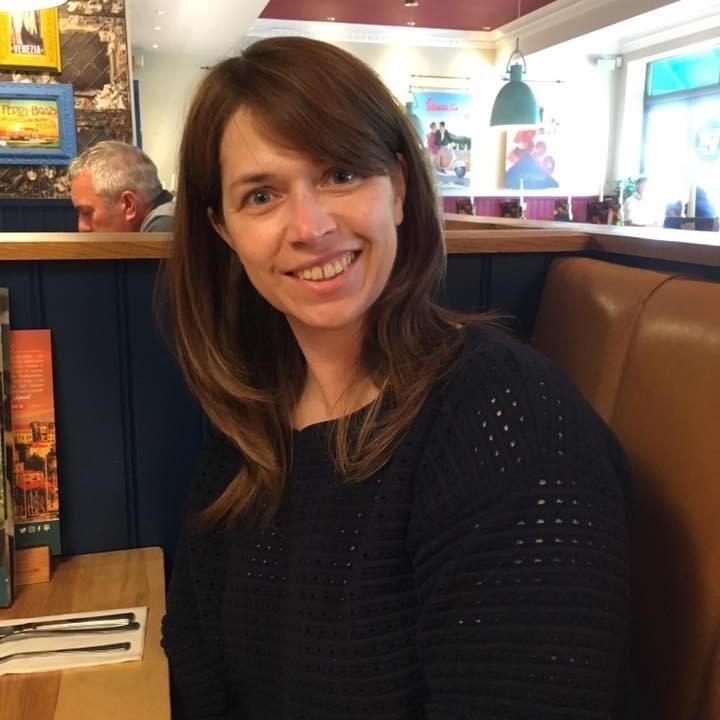
1. Tell us about your role at the University.
I am part of the Student Support Team and specialise in working with students with disabilities. My role is to discuss support with students and advise their academic departments of any adjustments that are required to ensure that access to studies remains equitable.
2. How do you usually start your day?
Whether it is working in the office or working from home it starts with tea and toast and a bit of breakfast news; when I'm ready to work I sit down with my coffee and fire up the computer.
3. What brought you to the University of Aberdeen?
I moved to Aberdeen at 5 years old and have been in the area ever since. Prior to this post I was a lone-worker, supporting D/deaf people into work and training but after I had my daughter I was less comfortable working on my own. The post here offered the chance to broaden my knowledge and experience in a pan-disability area.
4. What's your favourite thing about your job?
Undoubtedly it is meeting with students; there is nothing more satisfying than seeing someone achieve their full potential.
5. What are your work priorities at the moment?
New students - ensuring that our new entrants have the right support in place and know to reach out if they feel overwhelmed.
6. How do you like to relax outside work?
I have two cats and two dogs and, as my daughter's first love is horses, I can sometimes be found at The Cabin assisting the Dressage judges as a writer. I'm also not averse to sweeping out the barn and grooming the cuddies.
24 September 2020
- Marie Douglas
-
.jpg)
1. Tell us about your role at the University.
I work at the Medical School and look after all the patient partners. Patient partners are members of the public who volunteer to help students practice communication skills or physical examination skills. I also do a little clinical skills teaching.
2. How do you usually start your day?
Always with a cup of tea! Ideally outside with the dog.
3. What brought you to the University of Aberdeen?
I worked in the NHS for 10 years and was made redundant and I didn't want to lose the patient contact and skills I had. The medical school was recruiting the same week I was made redundant and I was very lucky to be given the role.
4. What's your favourite thing about your job?
Meeting all the patient partners, we are like one big family. They are wonderful people and I have the pleasure of hearing all their stories and get paid for it.
5. What are your work priorities at the moment?
We are doing a lot of online sessions; this means the patients have had to learn how to use Blackboard. Currently we are trying to recruit more patients who would be willing to do online sessions.
6. How do you like to relax outside work?
I like gardening and walking on the beach.
10 December 2020
- Jade Murray
-
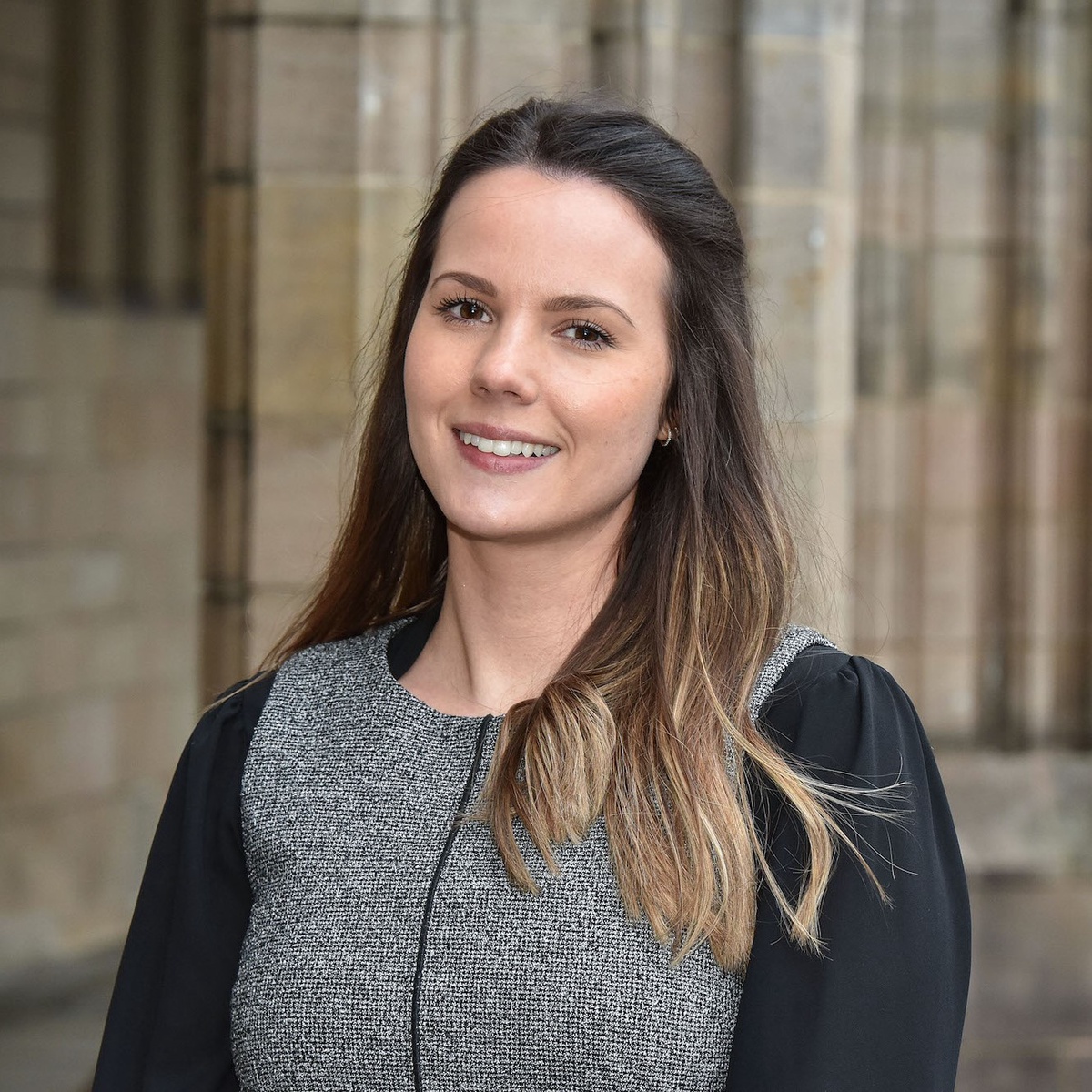
1. Tell us about your role at the University.
I work with University academics and external clients to develop and organise Continuing Professional Development (CPD) courses and events aimed at an external audience.
I am involved in all aspects of developing and creating a CPD event, which can range from national and international conferences, short CPD courses, teacher courses and tailored training for external organisations looking to upskill their workforce.
My role involves a wide variety of tasks, from developing bids to secure conferences to the region, creating marketing materials, budgets, websites, securing sponsorship and grant funding for each event, liaising with suppliers and speakers…everything and anything to ensure the event is a success! When I do have an event on, you will find me running around and making sure everything is running to a tee.
2. How do you usually start your day?
If I don't have an event on then I am in the office by 9am with a cup of tea in hand, ready to start the day catching up on emails and getting through my list of actions that each event brings. Right now the office is my kitchen!
3. What brought you to the University of Aberdeen?
After graduating from Gray's School of Art with a BA Hons in Fine Art in 2011, I knew I wanted to do something creative so I started my own online jewellery and illustration business from my home makeshift studio which I ran full-time for five years. I was looking for a new challenge and the opportunity to develop my skills and this job ticked all the boxes. I am still able to work on my jewellery in my spare time, so it is a win/win.
4. What's your favourite thing about your job?
Developing and planning an event from the very beginning to being there on-the-day to see it through. When the last day of the event comes round you are ready to sleep for a week, but it is the best feeling seeing it run so smoothly. All the planning paid off!
I also love the opportunity the University allows to develop and learn new skills. Just before lockdown I completed the Institute of Leadership and Management (ILM) Level 3 course, which has been a fantastic opportunity to develop my own CPD.
5. What are your work priorities at the moment?
As we had to postpone all of our physical events, we have spent time getting trained up in using the online platforms, so we are able to offer virtual events now which is fantastic. I've been working on two online events, one in the Robotics field and the other in the Wastewater field-the events really do vary! Some of my time has also been redeployed to help other teams, so I am helping the CAD team caption lecture videos for accessibility purposes and I'm also helping the PGR school make a new pre-arrival guide for their research students.
6. How do you like to relax outside work?
You will usually find me walking and listening to podcasts, catching up with family and friends (I love a games night) or watching Netflix at home and spending time with my fiancé. We are getting married in Summer next year, so soon enough I'll be busy planning that too!
30 July 2020
- Helen Fellows
-
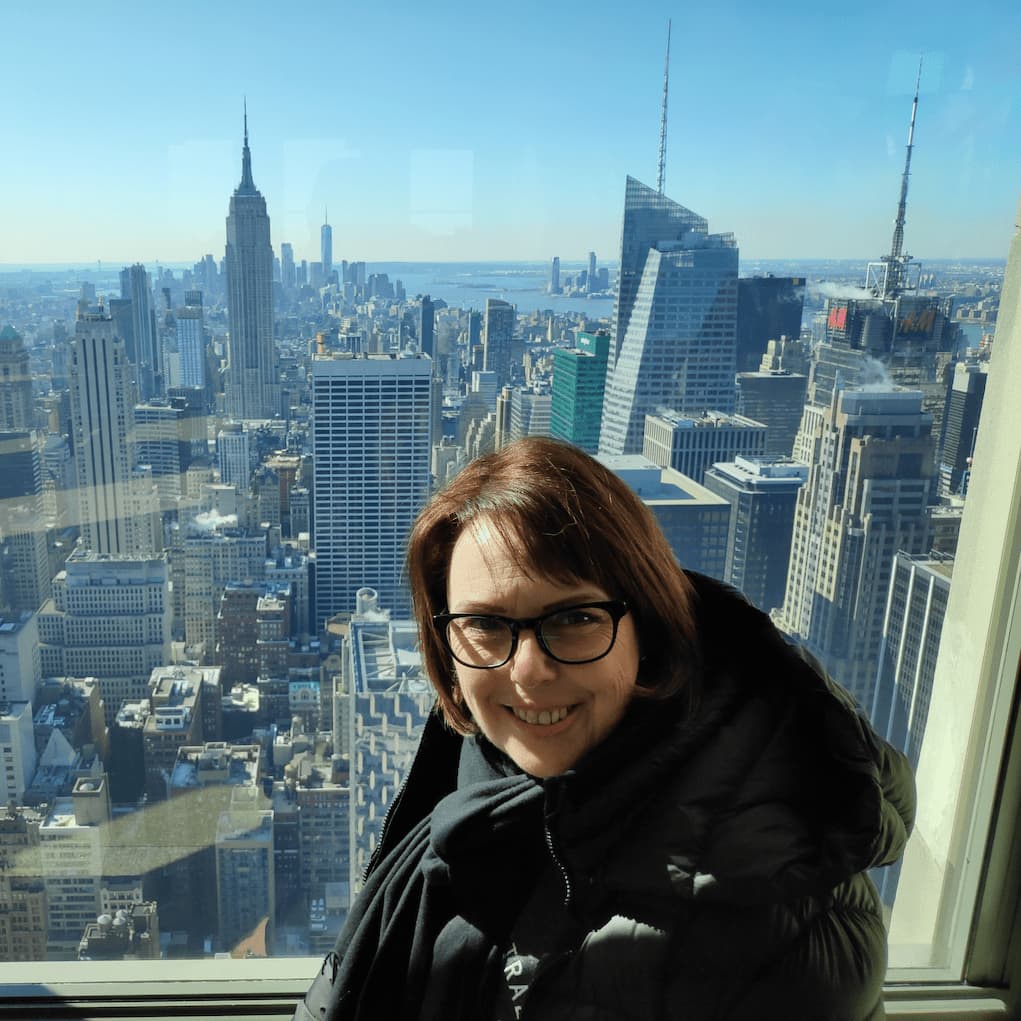
1. Tell us about your role at the University.
I commenced my role as Postgraduate Admissions Manager at the start of the pandemic which has meant I have been managing my new team of 17 remotely for the last three months without having met them!
2. How do you usually start your day?
Cup of coffee, catch up on emails, shower and make up my face so I'm camera ready - it's tough seeing yourself day in day out on Teams!
3. What brought you to the University of Aberdeen?
My partner, who I met on holiday four years ago works for NHS Grampian so I have relocated from Shrewsbury, a lovely little town near the Welsh border, to be with him now both my daughters have graduated.
4. What's your favourite thing about your job?
Being able to focus on one thing. My previous role as Head of HE in a College was very diverse and I was often pulled in many different directions throughout the day. I'm also enjoying getting to know my new team, albeit currently through a screen.
5. What are your work priorities at the moment?
We are busy at the moment clearing postgraduate applicants for September, particularly our international applicants who will require a visa to come here and study.
6. How do you like to relax outside work?
I've recently purchased an electric bicycle and I am really enjoying cycling around Aberdeen and getting to know the city, particularly along the beachfront. Whilst we have been in lockdown, I have been using my green fingers and growing plants in our conservatory and vegetables in the garden, there is something very therapeutic about nurturing plants and watching them grow. I also love going out for cocktails and dinner and have missed this over the last few months, although my partner has learnt to make a great cosmopolitan!
23 July 2020
- Jackie Mitchell
-
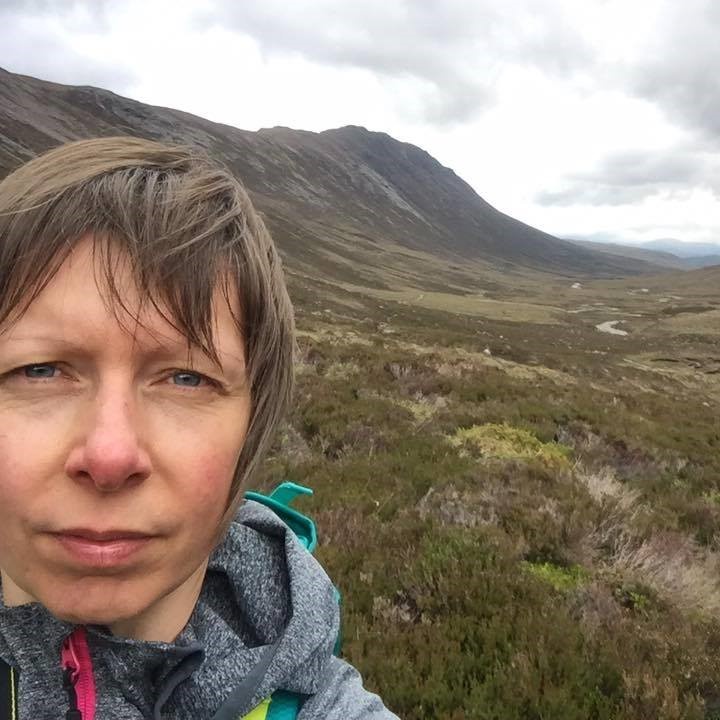
1. Tell us about your role at the University.
I am currently the Personal Assistant to the Acting Director of External Relations and Marketing which, following a recent restructure, includes Communications; Public Affairs & Stakeholder Engagement; Marketing and Brand Development; International and UK Student Recruitment, Engagement and Conversion. As one of only a handful of administrators across a huge directorate, my role involves everything from diary management, travel arrangements, financial and administrative support, staff recruitment, IT and office moves. Having been based within the University Office for nearly 25 years, previously with the Estates Section and the Secretary's Office, I've built up a wealth of knowledge and relationships with colleagues across the University which makes me the go to person for anything and everything!
2. How do you usually start your day?
Currently my morning starts with getting my daughter set for the day with breakfast and whatever school work has been uploaded and seeing to my two cats before hitting the laptop.
3. What brought you to the University of Aberdeen?
I'd previously worked in a clerical role in Inverurie but always wanted to be a 'secretary'. My first position within the Estates Section saw me join a small secretariat. Who knew I'd still be in the same building 25 years later!
4. What's your favourite thing about your job?
The variety! No day is the same.
5. What are your work priorities at the moment?
Managing the Director's calendar and interests is always a priority. Finance is always a constant, especially as we head into year-end, as I look after the majority of transactions for Marketing and Brand, Festivals and Events and also reconcile our digital marketing billing. With the Directorate having rapidly expanded in numbers, there are a number of administrative tasks that need to be consolidated.
6. How do you like to relax outside work?
I like to run and try to get out 2-3 times a week. When on campus, we are lucky to have the beach and Seaton Park on our doorstep. Makes for some lovely runs at a lunchtime when time allows. I ran my first (and last!) half marathon last year. With the lockdown I'm still fitting in the odd run here and there but I've been cycling a lot more. Certainly has allowed me to see more of my own local area and find new routes/paths to enjoy.
I also enjoy hillwalking (which I can't wait to get back in to once we're allowed!) - last year I bagged my first 6 Munros and walked the Lairig Ghru (twice). Other interests include card making; crochet; upcycling; reading; photography; gardening; and generally spending time with my daughter.
27 February 2020
2019
- John Barrow
-
Dr John Barrow tells us about his role as a Senior Lecturer in Biochemistry and Molecular Biology.
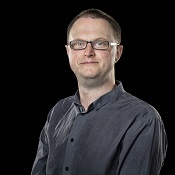
I am involved in teaching undergraduate students across the many different degree programmes we have in Medical Sciences. I teach predominantly biochemistry and molecular biology subjects, but also dabble in physiology and pharmacology teaching.
I'm also responsible for the assessment processes within the undergraduate medical science degree programmes with the official title of Examinations Officer (I don't have uniform!).
Outside of my direct involvement in teaching, I coordinate the University-wide Students4Students (S4S) peer mentoring scheme and sit on various committees that decide on student engagement, feedback and assessment, and other projects like the new Science Teaching Hub.
2. How do you usually start your day?
I'm usually up at 6 am, have a cup of tea, get the kids ready for school and then I'll check my calendar to see if I need to go to Foresterhill or Old Aberdeen first as I have classes and meetings between campuses on most days.
3. What brought you to the University of Aberdeen?
Honestly… it was the only place that would take me to study a BSc Pharmacology degree as I came here as an undergraduate student in 1998! I came to Aberdeen via Clearing as I didn't get the grades required to study a Pharmacy degree.
The day I got my A Level results was the biggest motivator I have ever had to work hard and put the effort in, and since then I have never looked back!
4. What's your favourite thing about your job?
Making a difference to the student experience and education. There is nothing better than taking a room full of students that are a bit grumpy because they do not understand a topic and have them leaving your class with smiles on their faces because they have had that “lightbulb” moment and suddenly understand.
I also like the everyday chats with students and staff, and really feel privileged to teach and hopefully make a difference.
5. What are your work priorities at the moment?
At the moment I am involved with a lot of undergraduate teaching and getting things ready for our exams at the end of term by sending exam papers to our External Examiners at other universities to make sure we are doing a good job of our assessments.
I'm also working on a project funded by the Physiological Society that is looking into the use of augmented reality to visualise cell biology processes, which I am planning on using in one of my courses this year. Further to that, I am working with my colleagues across different disciplines to decide how the new Science Teaching Hub will be used by our students when it opens in 2021.
6. How do you like to relax outside work?
I enjoy getting out and about with my family in the amazing countryside we have around here, as well as listening to music and cooking (I make a mean curry)! I might also add, I don't do all of those things at the same time, although cooking while listening to music on top of Bennachie could work if I put my mind to it!
21 November 2019
- Ruth Taylor
-
Ruth Taylor, our new Vice-Principal for Education tells us about her first week at the University and her initial priorities in her role.

I've been appointed as Vice Principal for Education, part of the University's Senior Management Team with responsibility for the overall Education Strategy focusing on areas such as the student experience, student success, employability, quality, and learning & teaching. As part of the role I will be out and about in the sector so that I have an external view and to learn with and from others.
2. How do you usually start your day?
As I'm getting ready for work, I listen to the news and then turn on my podcast for the day for my walk to work. Walking to work is a new experience for me - this is the first time in my working life that I haven't had to commute! For anyone who enjoys podcasts, I thoroughly recommend the Missing Cryptoqueen - I loved it! I find walking to be so good for my physical and mental wellbeing. When I get to work I have a decent breakfast - it's always the same but sets me up for the day ahead.
3. What brought you to the University of Aberdeen?
A number of things, firstly the role itself. I wanted my next role to be a VP for Education. In my last job, I was a PVC/Dean of a large faculty and had cross-institutional responsibility for student retention. My background in HE and my research are student focused and this is what I am passionate about.
The university itself also appealed to me: its reputation; its excellence in education and research; and its values because how we articulate and enact our values is hugely important to me.
I feel so fortunate to have got this role in this university. It's not only my ideal role but also the ideal geographical location for me. I worked at Robert Gordon University until 6½ years ago and then moved down to Cambridge for a new job. Over those years my family have been up here and I've been down there, with us going back and forth every weekend - which we loved as Cambridge is a lovely place. But I'm so happy to be back with my family and friends, and particularly my new grandson who I get to squeeze regularly now!
4. What's your favourite thing about your job?
I am only 5 days in but what drives me, and always has, is people. I was a nurse before I went into education so it was always about people and the patient experience, and then when I moved into Higher Education it became about the student experience and the people I work with. I think that how we communicate, how we interact, and how we do things is so important in creating a vibrant culture that enables us to work well together. So my favourite thing about my job in short is people.
5. What are your work priorities at the moment?
Before Christmas I aim to get out and meet as many people as I possibly can; colleagues from across the University and AUSA. This will help me to get to know the university and its people, learn more about what's important to everyone. I also have some key areas that I'm interested in discussing related to my portfolio so that I can understand colleagues' perspectives. Most importantly I want to start to develop relationships - relationships matter.
6. How do you like to relax outside work?
It may sound corny but family and friends are a huge priority for me. I also absolutely love live music - I used to be on the Montrose Music Festival committee before I moved down south and enjoyed being part of a team that brought great live music to the town. One of my daughters has given me an Aberdeen Performing Arts Friends membership for my birthday, so I already have loads in my diary! I'll be going to the theatre, enjoying some comedy, and of course seeing live music.
I love reading when I can - I have a thing about Man Booker prize winners and am working my way through all of them (it may take some time!). And I love walking, that's my biggest thing. I absolutely love being out and about; it's one of the joys of being back up here - the hills, the sea and scenery.
21 November 2019
- Corinna Dingwall
-
Corinna tells us about her role working as an Administration Assistant in the Online Team.
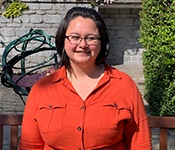
I recently joined the Online Learning Team as an Administrative Assistant. My role includes providing support to online learners from admission to registration and providing administrative support to the Online Team.
2. How do you usually start your day?
In the morning I usually meet a friend and we walk in together. Once I'm in the office, I catch up with colleagues, check emails and review the tasks for the day.
3. What brought you to the University of Aberdeen?
I first came to the University as an undergraduate student. After graduation, I worked at different companies and was excited to return to the University as an Admissions and Marketing Assistant when the opportunity arose. Since then I have worked in Admissions Office and recently joined Online Learning Team.
4. What's your favourite thing about your job?
I work with a fantastic team who are friendly and very passionate about what they do. I am enjoying the variety of tasks my job gives me from learning new systems, meeting colleagues and assisting prospective and current students.
5. What are your work priorities at the moment?
As I am still quite new, I have been working to build up my knowledge and learning different processes. I am also involved with preparations for our next intake of students starting their course in June.
6. How do you like to relax outside work?
I am a keen baker and I am part of a baking group called Aberdeen Bake Club which encourages bringing a bake following a different theme each month which encourages me to try new ideas and recipes. Since joining the team, we now have “Fine Piece Friday” so that everyone on the team can bring in their own bake to share.
This year I have started learning Mandarin with the Confucius Institute which has been challenging but very enjoyable.
I also enjoy travelling. My husband and I tend to have city breaks both in Scotland and Europe as we love trying new food and experiencing different cultures.
16 May 2019
- Alison McBoyle
-
Alison tells us about her role as Academic English Preparation Programme Coordinator in the Language Centre.
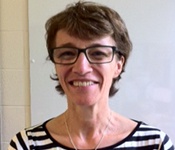
I am based in the Language Centre and my job combines a variety of roles. I am the coordinator for the Academic English Programme which is a course that is designed for international students prior to their degree programmes.
I also teach on the MSc TESOL programme and am also currently looking into ways in which the Language Centre can help academic departments with support for international student during their studies.
2. How do you usually start your day?
With a cup of coffee at home. How the day starts at work depends on what's on. It could be writing course materials, speaking to students and teachers, marking, answering e-mails, meeting with departments.A regular day, however, will usually see me at my desk with some breakfast getting down to whatever's top of the list.
3. What brought you to the University of Aberdeen?
I come from Huntly which is near Aberdeen and after being away from the area for some time, moved back due to family circumstances in 2000. I was fortunate to be offered a temporary 3-week teaching job at the university and it snowballed from there. From teaching academic English I progressed into my current roles.
4. What's your favourite thing about your job?
The variety. This refers both to the job and to the people. With regards to the former, it means that I can go from discussions with students and teachers, to teaching, to planning courses, to assessment procedures. This allows for some diversity in my activities.
Secondly, every semester we welcome students from a range of countries. Despite meeting hundreds of students over the years, I am constantly learning from their experiences.
Finally, much satisfaction at work can come from who you work with and fortunately, we are a team that work well together.
5. What are your work priorities at the moment?
We currently have 70 students at the moment so number one on the list is ensuring that we are meeting their needs in order for them to progress on to their degree programmes. Secondly, led by colleagues, I am working on designing and preparing the summer course.
The summer is the busiest period for us in the Language Centre and we are anticipating a large number of students this year. In addition, we are aiming to expand university-wide support for international students and academic departments and this is something I am beginning to work on. This will also allow for tracking students after they have completed our academic English courses.
6. How do you like to relax outside work?
I am currently studying part time for an EdD in Education so this takes up a lot of spare time. However, I've recently taking up skiff rowing (a small boat with 4 rowers & a cox) on the Moray coast and have had a go at paddle boarding there as well. If I'm not teaching, most of my week is spent sitting at the computer so I just want to get out into the fresh air. I try to go to the gym and have a swim once a week but that's not always successful.
18 April 2019
- Karl Leydecker
-
The University's new Senior Vice-Principal, Karl Leydecker, tells us a little about his role in the Senior Management Team.

My role at the University is to provide line management and support to all the Heads of School and to ensure the delivery of ambitious School plans and budgets. I am also responsible for strategic oversight of the People, Digital and Estates Strategies. While that is the official job description, I think a key part of my role will be about strengthening connections across the university, working with people to help create the conditions for everyone to flourish in their own roles.
2. What brought you to the University of Aberdeen?
I first visited the University in 2005 when I was a member of a QAA review team and formed very positive impressions of the University then. The opportunity to join this great University in such a wide-ranging role at such an exciting time under a new Principal was irresistible.
3. What's your favourite thing about your job?
I am really looking forward to getting to know my new colleagues, learning more about all the great things going on at the University, and then hopefully making a valuable contribution to our future success. What motivates me is a strong ethos of service to make a positive difference to people's lives.
4. What are your work priorities at the moment?
While I have been able to visit the University and meet a number of colleagues over the last few months, my immediate priority in the first few days will naturally be to get to know as many people and absorb as much information as I can. I am also looking forward to getting to work quickly on the process of developing the new strategy.
5. How do you like to relax outside work?
Mainly spending time with family. My wife and I have two children aged 15 and 11. We love to travel, especially on the continent, where we all have family connections, though I was born and grew up in Yorkshire.
I read a lot too (my disciplinary background is German and Comparative Literature), albeit I don't read as many works of nineteenth century fiction as I used to and would like to.
I also like listening to (and on the right occasion dancing to) pop music of the 80s and electronic dance music especially from the 90s, though my musical tastes have been broadening rapidly recently as both my children are very musical in their different ways (violin, piano, electric guitar…).
07 March 2019
- Chloe Bruce
-
Chloe tells us about her role as Alumni Engagement Officer, working with colleagues across the institution to build and strengthen our alumni links.
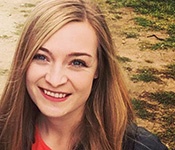
I am primarily responsible for alumni communications and events, I am also the main contact in the team for the School of Biological Sciences; School of Divinity, History, Philosophy; School of Education; School of Engineering; School of Geosciences, School of Language, Literature, Music & Visual Culture; School of Natural and Computing Science; School of Psychology and School of Social Science. I am also responsible for alumni events and activities that take place in London and Europe.
2. How do you usually start your day?
I usually start by reading the news on my mobile (cheery start to the day!) and then on Tuesday, Wednesday and Thursday mornings I aim to go to the gym. This endeavour tends to be successful but some mornings it is significantly harder than others.
3. What brought you to the University of Aberdeen?
I had been working in a similar role at another university and decided to apply for this role as it focused on the areas I most enjoy. It was also a chance for me to progress professionally in an area that interests me.
4. What's your favourite thing about your job?
It is great to meet so many diverse people and learn more about their time in Aberdeen and their lives afterwards. People have such interesting stories to share and it is fascinating to connect with them.
5. What are your work priorities at the moment?
Given that I am still relatively new, I am still trying to meet staff that I am going to be working with closely. My other priorities relate to developing alumni networks in Europe, expanding our programme of events in London and reviewing our communication to alumni.
6. How do you like to relax outside work?
I enjoy exercising, reading and going to the cinema - I am afraid I cannot think of anything less generic. I have also begun to learn Spanish and I (mostly) enjoy trying to improve my French although this is not always the most relaxing things to do. Some gin and prosecco never goes wrong either!
14 February 2019
- Julie Dixon
-
Julie Dixon tells us about her role as CPD Business Development Officer within Research & Innovation, her love of running at 5am, and juggling life with 4 children
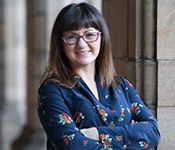
I work as a CPD Business Development Officer for CPD Services which sits within Research & Innovation.
As well as CPD returns to the funding council and HESA, I am involved in all aspects of event management to support academics in attracting and bringing events to Aberdeen city and sometimes a wider audience. My role can vary from marketing, budget development, website design, sponsorship, supplier liaison, delegate registrations and on-the-day support.
2. How do you usually start your day?
I creep up and out of my house around 5am before going for a morning run. I usually start work by 7am with a coffee, when it's nice and quiet in the office to organise my day before the hustle-and-bustle of a busy office. I enjoy making lists, and my day often starts by compiling a list of things I've to do that day and ticking them off as I go along!
3. What brought you to the University of Aberdeen?
I joined the University as a career enhancement from my previous jobs. I worked mainly around training development, delivery and assessment having spent over 4 years with OPITO (an Oil and Gas training organisation) before moving on to Aberdeen College where I was a lecturer in some marketing, communications, IT, and administration classes.
I'm keen to promote professional development and my role here at the University allows me to incorporate my love of Aberdeen whilst attracting events to come to the city. I feel proud of the city I live in and enjoy promoting its beauty and history as well as the recent developments and planned investments.
4. What's your favourite thing about your job?
I love the diversity of my job. Each event is different; the academics like to work differently, the subject areas can range across the University's breadth of expertise. And I do love when a successful event has been delivered. It almost feels a bit sad to be over!
5. What are your work priorities at the moment?
Having been off work on maternity leave during 2017/2018, our team focussed on delivering the events we had in the calendar. On my return, we are now keen to promote our services so staff are aware of the support available to them from our team, the University and the wider city.
The team also provides Professional Conference Organiser services ( PCO ) to external clients so work with the city to produce bid documents and proposals for commercial events. We are a partner of the Aberdeen Ambassador Network which includes Visit Aberdeenshire, AECC and RGU; all partners work together to bring events to the city.
6. How do you like to relax outside work?
I have 4 children; 2 boys and 2 girls, aging from 1 to 9, so they keep me busy. I love to run, usually around 5.30am, which gives me time to myself (but sometimes I run with other crazy friends) but also it gives me time to listen to music and podcasts, plan out my day, and run off the crazy!
07 February 2019
- Gary Coull
-
Gary tells us about his role as Alumni Engagement Coordinator.
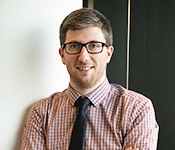
I look after Alumni Relations' engagement with students and alumni-to-student engagement. I am also responsible for the development and organisation of UK-based alumni events (excluding Aberdeen and London) and for providing support to alumni volunteering and alumni networks.
2. How do you usually start your day?
My day normally starts around 6.30am when my two daughters wake up (they are 2 and 6 months). From then on, it's a bit frantic trying to get them fed and dressed (as well as myself!), lunch made and out the door.
I live in Oldmeldrum so the 30-40 minute commute gives me a chance to chill out and think about what the day has in store. Once I'm in the office I check my e-mails and catch up with my colleagues on what's coming up that day.
3. What brought you to the University of Aberdeen?
I spent more than a decade working in politics and decided that I wanted to do something different. I saw this job advertised, thought that I had the same skill set that was being asked for and that I would enjoy it. I love organising events and the chance to help students learn from alumni - and visa versa - was very appealing. Also, visually, it's a pretty awesome campus to work on.
4. What's your favourite thing about your job?
How positive it is! One of the first things I had to do after I started in December was help at the Celebration of Carols event in London. The Chapel Choir sang, there were readings from notable alumni like Iain Glen from Game of Thrones and there were hundreds of alumni enjoying themselves. It was such a positive event and a great start to the job!
5. What are your work priorities at the moment?
Developing a Student Engagement Plan. Alumni can be such a great tool to help with a student's experience at Aberdeen as well as in recruiting and retaining students so we're keen to see how we can do more Alumni-Student engagement. I'm also planning some alumni events in the Moray area as well as the Central Belt.
6. How do you like to relax outside work?
With two young daughters relaxation includes watching CBeebies and playing with toys - such a hard life, I know!! However, I really enjoy Scottish country dancing and have been teaching it all over the world for the past few years. I've been lucky enough to be invited to teach in Denmark, Sweden, Holland, Germany and Canada as well as a few different places in Scotland. It's great for physical and mental exercise, has a good social element to it and fantastic music.
24 January 2019
- Jody McKenzie
-
Jody tells us about her role as Information Governance Officer, as well as her passion for baking and assisting others.
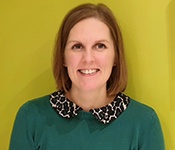
My role is to help make sure the University complies with the General Data Protection Regulation (GDPR). Day-to-day, this means answering requests, dealing with data breaches, making sure privacy notices and data processing/sharing agreements are up-to-date, and keeping our record of processing activities. I also provide data protection advice and training sessions.
2. How do you usually start your day?
My day usually starts with a few too many snoozes of the alarm clock!. Luckily, I live relatively close to the University. When I get to work, the first order of business is to check the inboxes and see what new requests and queries have come in and we normally have a short team catch-up to see what we all have on that day.
3. What brought you to the University of Aberdeen?
I grew up and went to school minutes from the University. I am an Alumni, having studied both my Undergraduate degree and Masters degree here. I always thought that I would like to work here so when the opportunity came up, I jumped at it and haven't looked back.
4. What's your favourite thing about your job?
I enjoy the satisfaction of being able to help others and being a source of reliable advice and assistance. Equally the ever-evolving nature of data protection means that I am constantly learning new things.
We are lucky to be able to work with people who are experts in their fields so it's really rewarding when I get the chance to use our combined knowledge and expertise to provide a good outcome.
5. What are your work priorities at the moment?
The team's priorities are rolling out training in Data Protection to all Schools.
There have been a lot of changes in legislation recently so people can expect to see regular communications from us about how it affects you, our students and the University.
We will also be introducing Information Champions in all schools and directorates. They will help to provide advice on data protection and we hope to have these in place by March. We will also be providing training in Freedom of Information and working on records management solutions across the University.
6. How do you like to relax outside work?
I am a keen cook and baker and I am always happy to bake for family, friends and work colleagues….(keeps them on side!). It is nice to be able to change gear from work mode and just relax by making a cake or baking a loaf of bread.
24 January 2019
- Mirjam Brady-Van den Bos
-
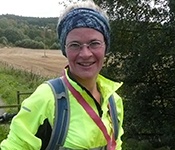
1. Tell us about your role at the University.
I'm the course coordinator of a large first-year methods course in Psychology, and I also teach across other years - Social Psychology, Personality, and qualitative research methods. I'm also the students' go-to person for help with essay writing.
I have a preference to do things slightly different from what students (or colleagues!) might expect, and I like to question why things are the way they are - with the aim to improve teaching. I enjoy being involved with the Centre for Academic Development as well, sharing my ideas and results of pedagogical research.
2. How do you usually start your day?
I live 4.5 miles away from university, so I like to run-commute, stopping at the swimming pool on the way for 50 lengths. Only then I feel my day has begun properly! I'm one of those annoyingly happy people who sing first thing in the morning.
3. What brought you to the University of Aberdeen?
I did my PhD at Keele University. A research fellowship post at Aberdeen was the first job I applied for - I recall walking back to the hotel on Union Street after the interview (having just received the good news), phoning my husband to ask how he'd fancy living in the North East of Scotland. That was 10 years ago and we're still here - my work environment is great and we've fallen in love with the Shire.
4. What's your favourite thing about your job?
I love the daily contact with students, during and outside of class time. We have many students in Psychology and they all know me as I am course coordinator and lecturer for all the large classes. It's great to walk out into my corridor and enjoy the banter. It always makes me happy that the students feel free to make jokes and ask me about my weekend - I'd hate to be unapproachable.
5. What are your work priorities at the moment?
We're in an interesting position in Psychology with about 50% of our students coming from EU countries. We're trying to 'Brexit-proof' ourselves by attracting more Scottish and International students - one of the things I do at the moment is helping to strengthen bonds between our School and Colleges of Further Education (in Aberdeen and beyond). Another thing I do is help to develop a strand of qualitative methodology teaching that will run across all our 4 years. Aside from that, I'm trying to do as much pedagogical research as I can, mainly on the topic of identity.
6. How do you like to relax outside work?
My active commute is a great form of everyday relaxation - I come home with a roaring appetite and I sleep like a baby. In the weekends I fully unleash: I spend as much time as I can outside, hillrunning and cycling. I'm also a keen forager and am able to get most of my fruit for free, most of the year. Our Shire is a wonderful larder.
10 January 2019
2018
- Tracey Innes
-
Tracey Innes tells us about her role as Head of the Careers Service.
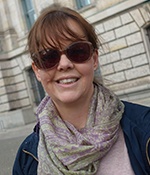
My role as Head of Careers involves ensuring the Careers Service can continue to provide the best careers and employability support for our students and graduates. The breadth of our services, and the diversity our students' career aspirations, keeps us very busy! In the 6 months since I started in this role, I have loved the variety of activities. The last month has involved presenting a Civil Engineering Graduate Apprenticeship bid with a colleague in the School of Engineering, visiting the Qatar campus, contributing ideas towards the development of our Industrial Engagement Strategy and conducting speed interviews for students applying to the BP Student Tutoring Scheme.
2. How do you usually start your day?
Once I know my two boys are up and will be ready for the school bus on time, I hit the traffic with a coffee in hand to get into work and catch up with colleagues. I then get ready for whatever the day has in store.
3. What brought you to the University of Aberdeen?
I moved to Aberdeen a very long time ago to study my Masters in Soil Science. After a year in industry and three years managing Joblink (now Studentjob Service) in the Students' Union, I joined the University as a Careers Adviser in 2001. The extensive opportunities to develop in my role, adapting to the continuously changing careers and employability sector priorities, has kept me here ever since!
4. What's your favourite thing about your job?
Working in such an innovative and motivating team environment is hugely rewarding. Our fantastic Careers Service team comprises 13 staff with a combined experience of 148 years! Ultimately, it's about the students - I still love nothing more than hearing about the career success of a student or graduate who we have helped along the way.
5. What are your work priorities at the moment?
We are constantly seeking new ways of working to expand the reach of our services for students. One of my priorities is to continue to build connections with colleagues across the Institution to combine our efforts in engaging students, particularly those in earlier years, and those who are so far unengaged, with the career and skills development opportunities available throughout their studies. I am also passionate about using technology, where appropriate, to expand our reach and upscale our activities. Having just returned from visiting the Qatar campus, we are looking at how technology can help us to ensure our services are appropriate and accessible to our students there.
6. How do you like to relax outside work?
Most people who know me will know that I love getting out in the fresh air and running marathons - the longer, slower and further away from the roads, the better. It is the best excuse for getting some uninterrupted time away from the demands of a busy work and family life schedule.
29 November 2018
- Darren Comber
-
Darren Comber tells us about his role as Senior Educational Development Adviser in the Centre for Academic Development
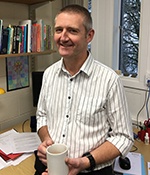
I head up a small team in the Centre for Academic Development which provides professional development for staff who teach and support learning at the University. The development that we offer ranges from a Master's level taught programme in higher education learning and teaching all the way through to one-off workshops on topics around learning and teaching. My team and I work with a wide range of staff and grades, recognising that teaching and supporting learning at our University is carried out by an increasingly broad range of individuals, many of whom might not think of themselves as 'educators'.
2. How do you usually start your day?
It's pretty much get up and go, as I live out of town. The drive in helps me to get my thoughts in gear for the coming day whilst coming-to; I'm not much of a morning person as my colleagues will testify. Once at the University, I'll tend to urgent email traffic before reviewing the previous day's progress and planning out the day ahead. Whilst drinking tea. Lots of tea.
3. What brought you to the University of Aberdeen?
Two things. First, this was a change in direction from my previous role as a Lecturer in Physical Geography at the University of Bradford. As part of that role, I became increasingly involved in curriculum development. That sparked my interest in how different people (academics and others) are involved in the process of helping students to learn and how they approach that. When a post at Aberdeen came up that allowed me to concentrate on these things full time, I took it. Second, it was a quality of life move, providing opportunities to enjoy the fantastic range of outdoor activities available in the north-east of Scotland.
4. What's your favourite thing about your job?
I enjoy working with people from different disciplines and learning about their teaching and their underpinning philosophies of education. As with all teaching roles, witnessing that moment when the 'lights come on' for someone with whom I'm working is always a particular high point. I'm also convinced that I could never work anywhere that didn't give me access to a university library. Keeping up-to-date with my subjects, whilst along the way finding new ideas and approaches that might help others at the university, are immensely satisfying aspects of my role.
5. What are your work priorities at the moment?
Completing the process of professional reaccreditation of the University's CPD Framework for Learning & Teaching by the Higher Education Academy (HEA) has taken up a lot of this year, alongside running regularly scheduled teaching programmes. Right now I'm concentrating on supporting staff who are writing their applications for HEA recognition via our CPD Framework, as well as teaching our PG Certificate programme.
6. How do you like to relax outside work?
I enjoy running and rock-climbing. I also like tinkering with anything mechanical; maybe I'm a bit old fashioned but I like things that can be mended, not thrown away the instant they don't work. My current non-work project involves preparing my Land Rover for an off-road trip across the Pyrenees.
22 November 2018
- Jamie Bowie
-
Jamie Bowie tells us about his role in the School of Geosciences travelling the world from his desk.
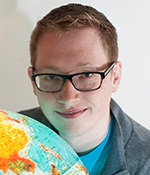
I work as a Cartographer at the School of Geosciences and I have been here for two years. I have just recently completed my training with the help and guidance of fellow Cartographer Jenny Johnston and through the study of Undergraduate courses.
I mostly work with Academics and produce maps and diagrams along with occasional visual design work. From late Spring to early autumn we also help and produce maps for the Undergraduate Geology Students who go out into the field to map geological features in places around the UK and in other countries abroad.
2. How do you usually start your day?
I usually start my day at 6:30 and set off from a little village called Findochty on the Moray Firth and travel an hour and a half. It's quite a journey but I like to listen to the radio or music during the morning and evening drive. I am now however I am now in the process of moving to a house much closer to Aberdeen.
3. What brought you to the University of Aberdeen?
Although I was brought up in Findochty I was born in Aberdeen and have been coming to the City for as long as I can remember. After graduating from my degree in Visual Communication and Design at Inverness the position of Cartographer opened up and it gave me the opportunity to join the Cartography Office as a trainee.
4. What's your favourite thing about your job?
I feel very fortunate to be able to do a job I enjoy! I get to travel the world from the comfort of my desk. So far I have been to most places in the world cartographically and no day is ever the same which makes time fly. It's great being able to utilise my artistic skills along with my love of maps. When I was doing my degree I used to wonder what sort of job I would end up with and I am glad to say it had a happy ending. Working in the University is a delight and I feel I am at the cutting edge of research and innovation.
5. What are your work priorities at the moment?
At this moment I have just completed a map of the Falkland Islands along with an inset of the South Atlantic. My next map will be of Greenland and the North Atlantic Sea, I'm always exploring the world.
6. How do you like to relax outside work?
Outside work I tend to take advantage of the local coastline and countryside and take long bike rides and to try to discover new routes and places I've never been to. I also enjoy singing in the local male voice choir which have various performances throughout the year. However I am now about to move into my first house and will have lots of things to keep me occupied.
1 November 2018
- Zee Allison
-
Zee Allison tells us about her role as Senior Toolkit Developer, as well as her love of art and gaming.
1. Tell us about your role at the University.
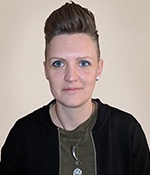
Communication is a huge part of my role as I work with so many individuals across the University; one day I could be working with the Webteam to design the Toolkit platform, another could be spent creating a video that illustrates how to change a scalpel blade, and the next I might be explaining how the printers work! Understanding a wide variety of requirements and coming up with creative ways to explain ideas is key to my role.
2. How do you usually start your day?
At home I usually wake up to a decapitated “present” from the cats, have coffee with my lovely wife and then attempt to iron a shirt…
Once I get to work we start with a quick team scrum around 8.30am, so that we know our priorities and have a chance to plan our day while the caffeine kicks in.
3. What brought you to the University of Aberdeen?
I trained as a Digital Designer due to my love of art and animation, but also have a keen interest in education and online support. When the post for this job appeared, it looked like an ideal combination of all of my skills and interests - jobs like this don't appear very often, especially in Aberdeen!
4. What's your favourite thing about your job?
I genuinely love my job! I relish the challenge of reimagining technical, procedural instructions into something engaging, beautiful and powerful. I truly believe in the power of education to transform people's lives and I'm very grateful to be part of that at The University of Aberdeen.
And the people here are fantastic - from meeting students in focus groups, to working with some amazingly knowledgeable staff, I really couldn't do my job without the support and expertise of the University community.
5. What are your work priorities at the moment?
We schedule our video work in advance, and are currently booked with interesting projects until the middle of next year, but we also try to continually develop our skills so that we can keep the Toolkit fresh and up to date. Right now we are experimenting with 3D animation, Augmented Reality and Interactive PDFs.
6. How do you like to relax outside work?
I have been a gamer ever since my dad gave me my first ZX Spectrum, so tend to be glued to Fallout/Skyrim/Assassin's Creed etc. if I get the chance.
When I'm not gaming, I enjoy digital painting, walks on the beach with my wife, a good gig, and going to the gym (…although it's mainly for the Jacuzzi!)
25 October 2018
- David McCausland
-
David McCausland tells us about his role as a Professor of Economics and Director of Undergraduate Studies in the Business School, as well as his passion for history and strong coffee.
1. Tell us about your role at the University.

For example, last year we developed a new flagship International Business programme. This included developing innovative courses that tackle important issues facing an increasingly globalised business environment.
These courses, which don't have final exams, turn conventional teaching on its head and approach learning from an issues based perspective. Our inaugural group of first year students are already tackling big issues like inequality, climate change and financial crises, drawing upon tools and concepts from different disciplines. All students have the option of including one of five modern languages in their curriculum, and study a specialism from one of our business disciplines. In the 5-year variant of the programme, students spend a year abroad on a placement. The integration of what we do on campus with wider business engagement will, I believe, further enhance the employability of our future graduates.
2. How do you usually start your day?
Usually by dealing with email over a strong black coffee! My schedule for every day is very different. One of the great attractions of academic life is the flexibility and variety of activities. In any one day I can be giving lectures to undergraduates, meeting colleagues to shape the future direction of the school, or writing research or scholarship outputs.
3. What brought you to the University of Aberdeen?
Before I came to Aberdeen, I worked at Warwick Business School on projects for Nuclear Electric and the Central Statistical Office. I had considered a career in university administration, but then pursued doctoral study at the University of Keele, which ultimately led to a research and teaching career. When considering my options back in 1995, I thought a few years in Scotland would be nice, and 23 years later I am still here! Aberdeen is a fantastic, welcoming and safe city, which I am proud to now call home.
4. What's your favourite thing about your job?
The thing I enjoy most is teaching students. In the Business School we have a very high proportion of international students. In my second year course, for example, well over half of my students are from outside the UK. Over the last decade entry qualifications have improved and this ability combined with their excellent work ethic makes for an intensely rewarding experience. To have the opportunity to motivate and inspire young people is both exciting and humbling. And it is so important, given the challenges that lie ahead, for students to understand how economic policy can be harnessed for the good of all in society. Economic and financial literacy will be an increasingly important skill for people to be able to make informed choices in the future.
5. What are your work priorities at the moment?
The Business School is going through a period of exciting growth at present, and it is fantastic to be part of the team developing our priorities and strategies. Over the past two years we have developed new international collaborations and introduced a range of online programmes. We have moved, at least in part, to a landmark building, and have set out on the road to achieving AACSB accreditation for the School, and I hope that this momentum is maintained. However, one of the areas I am most passionate about is widening access, and we are developing a wide range of initiatives that are likely to be of increasing importance in a rapidly changing environment over the next few years.
6. How do you like to relax outside work?
One of my great passions is local history - I am an avid collector of old maps and manuscripts relating to the planning and development of Sheffield, the city of my birth - though I also read widely the transport history and local history of other areas too, including, of course, Aberdeen. I am a keen photographer and enjoy electronic music. The only constraint is too little time!
18 October 2018
- John Howell
-
John tells us about his role in Geosciences, as well as his love of field work and the great outdoors.
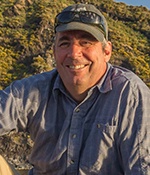
I am a Professor in the School of Geosciences. I specialise in helping oil companies understand the sub-surface by using outcrop analogues. A good analogue is a large cliff that has similar properties to the rocks in the subsurface that we can see because they are only sample with narrow, widely spaced boreholes.
Over the last 15 years I have pioneered the use of “Virtual Outcrops” which are photorealistic 3D computer models of cliffs, which allow us to capture the cliff sections accurately on the workstation. We started collecting those data using expansive laser scanners but now we use drones and the work flows and ideas we developed have become far more mainstream, it's very satisfying. It's also exciting to keep looking for new ways to develop the applications of the technology.
We just completed a great project that involved thermally mapping an active volcano, so it's not all industry related but really exciting. I also teach on the Petroleum Geology Masters Course which I love doing and have several admin roles which I don't love.
2. How do you usually start your day?
If I am at home and not doing fieldwork I get up, have a cup of tea, make breakfast for the kids and then go out to feed the sheep and let the chickens out. Then clear up the breakfast stuff and drive to work. Once in work, it's highly varied but I'll grab a coffee from Kilau and plan my day.
3. What brought you to the University of Aberdeen?
I lived in Norway for ten years and loved it over there but my wife and I decided that we wanted our children to grow up in the UK. We started looking for a somewhere to repatriate to but as she works in the oil industry that limited our options. London is my worst nightmare so Aberdeen was the obvious choice. We bought a derelict farm which overlooks the sea, just south of Dunnottar; spent 2 years rebuilding it and moved in the week after our second child was born. We love Aberdeenshire, the sea, the mountains, great access to beautiful outdoors, it's a fantastic place to live and raise a family.
4. What's your favourite thing about your job?
Ask any geologist and they will invariably say the best part of the job is fieldwork. I spend about a third of the year in various exciting and beautiful parts of the World such as Utah (my second home), southern Africa, South America and all over Europe. There is a saying that “the worst day in the field is better than any day in the office” and I am always very happy to be out in the field with good friends and colleagues, learning new things.
5. What are your work priorities at the moment?
We have a large industry funded consortium called SAFARI which has built a global database of virtual geological outcrops which helps the sponsoring companies understand the subsurface better. We are just about to launch the fourth phase and I am trying to get everything in place for that. We are leaving soon for 8 days in the Spanish Pyrenees with our Masters students, so I am also making final preparation for that.
6. How do you like to relax outside work?
I have two young daughters, so much of my spare time is spent taxi driving them to various activities. We keep rare breed sheep that were originally from Orkney on our farm so there are always jobs that need doing around the place. Away from home I have always been active in outdoor sports, especially climbing and mountaineering. I also enjoy mountain biking and sea kayaking and I am enjoying watching my girls develop their passion for the outdoors. My eldest daughter is a great climber and the youngster loves biking. There is never enough time for the fun stuff.
11 October 2018
- Nicola Stokes
-
Nicola tells us about her role in the Postgraduate Research School, as well as her love of coffee and musicals.
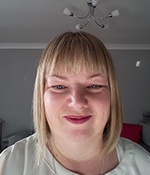
My current role is as Administrative Co-ordinator in the new Postgraduate Research School (PGRS). I work within the Monitoring and Progression team ensuring that our postgraduate research students are fully supported and remain on track throughout their PGR journey. This means liaising daily with students, supervisors and many other teams throughout the University.
I am also a volunteer Staff Wellbeing Co-ordinator which currently involves providing support to staff who would like to chat through wellbeing concerns.
2. How do you usually start your day?
A typical day sees me up at least thirty minutes before my daughter, for a calm cup of tea whilst checking my emails. Once she is up, it's full steam ahead until we are both ready and out the door to start our respective days.
3. What brought you to the University of Aberdeen?
When I made the decision to leave my career in Support Services to spend more time with my daughter, a position became vacant in the Registry Department which was very similar to the post I held during my six years at Fife College of Further and Higher Education.
4. What's your favourite thing about your job?
I love that my post is brand new and I get to contribute to shaping it in to a role that gives me the flexibility to increase my skills and experience in many areas of the PGR journey, I also get the opportunity to use all my current skills and experience in other areas to help shape the direction we provide support to our PGR Students, Supervisors and other Teams within the University.
I am passionate that our PGRs get the best possible experience during their time with us and a big part of my passion for my job is the opportunities I am afforded to meet and work with so many different people across the University and beyond.
My answer wouldn't be complete of course without a shout out to my favourite coffee place - you get me through many a busy day.
5. What are your work priorities at the moment?
As well as being in the middle of preparations for our new students induction activities in November, I am currently working on setting up a bespoke MyAberdeen site for our PGR students and supervisors. This is an exciting project to be involved in as it will allow us to provide the wealth of information available to our Students and Supervisors in one centralised area.
I am also in the process of working alongside colleagues from Student Support, Counselling and Human Resources to set up various avenues of support and advice to our PGR students. I have a real passion for this area of work and love that I get the opportunity to support our PGR students in this way.
6. How do you like to relax outside work?
Most of my 'free' time is spent ferrying my daughter from one club to another, but when I do have genuinely free time, I like to read, visit the cinema, take a class at the Sports Village or go for a long walk in the country.
Less regularly, but much loved are our musicals such as Wicked, Hairspray and Mamma Mia and of course we try to visit our all our family in Fife as often as we can.
4 October 2018
- Karen Foster
-
Karen tells us about her role in Qatar, working with both staff and students to deliver an exceptional University of Aberdeen experience.
1. Tell us about your role at the University.
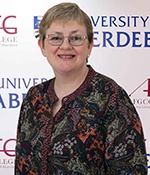
My role is that of Provost, the only resident UOA staff position in Qatar, although the teaching is supported by flying faculty from the Business School. My responsibilities are to manage and oversee the academic delivery and quality assurance of the teaching programmes delivered and ensure that the students in Qatar have a University of Aberdeen student experience.
2. How do you usually start your day?
Almost every day in Doha is a warm, sunny day, which is a great start. My morning begins with a coffee and then I start answering emails. I work closely with the Principal of AFG College, the Marketing and Recruitment team and the Student Services team, as well as teaching staff based in Doha and those in the Business School in Aberdeen. So we have a quick catch up to see what is happening and what we are going to be doing that day.
3. What brought you to the University of Aberdeen?
I started working for the University of Aberdeen in 2002, after returning from a 2 year stay in Doha with my husband's work. I worked in the Medical School for 15 years in a number of roles, latterly as Admissions Lead and Lead for Student Support. I applied for the Provost role because of my experience in Qatar previously.
4. What's your favourite thing about your job?
I have two favourite things. Firstly, the huge satisfaction of being able to bring an Aberdeen degree to students who would not have been able to access this education in Scotland. Students here are very friendly and welcoming and are thrilled to have this opportunity. Secondly, the challenge of setting up an institution from scratch, which has certainly had its moments! I am involved in all areas of University life from admissions to graduation and everything in between, which is a fantastic experience as well as responsibility, and I have had great support from all departments in Aberdeen.
5. What are your work priorities at the moment?
This month we have been welcoming our new undergraduate students and ensuring they are registered, have access to MyAberdeen, and are settling in.
We are also planning the induction and teaching for two new postgraduate programmes which will start in October.
We had a recent visit from the AUSA CEO, Margaret Paterson and so we will take forward the development of student societies and clubs and ensure that students in Doha have access to all the benefits of being a member of AUSA.Another priority area is to develop our networks in Doha, to raise our profile and establish partnerships for educational and research collaborations.
Lastly, we have started planning for Phase 2, which will involve a purpose-built University campus in Doha delivering a range of undergraduate and postgraduate programmes including STEM subjects.
6. How do you like to relax outside work?
I am enjoying getting to know Doha, which has changed enormously since we lived here in 2002. I have been trying to learn a little Arabic, although the staff and students find it hugely entertaining when I try a few words! My children have insisted I start watching Game of Thrones, so that should keep my evenings occupied for a few months.
27 September 2018
- Fraser Lovie
-
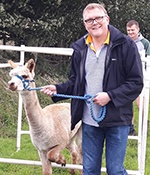
1. Tell us about your role at the University.
As a Policy Adviser my portfolio is eclectic. My roles range from co-ordinating institutional reporting on sustainability, helping draft strategic and policy documents across Estates & Facilities, providing governance oversight of our links with the Rocking Horse Nursery and Aberdeen Sports Village, supporting capital projects, and plenty of committee work.
In July last year I took on line-management of the University's Sport & Exercise Team which has opened up a whole new world of exciting challenges, while this summer I mentored an MSc Environmental Partnership Management student undertaking a thesis on single use plastic. Last week I was the University's panellist at the Aberdeen Sports Awards and next month it's the EcoCity (sustainability) awards panel - a unique double!
2. How do you usually start your day?
School-run. Coffee. Email.
3. What brought you to the University of Aberdeen?
After an Aberdeen MA and MLitt, I had stints working here in Politics & IR and Registry, before moving to London to the Ministry of Defence. But the lure of home, family and tolerable temperatures were too much for me … and I came back to a policy role in the former PPG in 2007.
4. What's your favourite thing about your job?
That every day is different. On any given day I can be: chairing a group overseeing performance swimming; arranging liability insurance for the Rocking Horse Nursery Trustees; representing the University on Aberdeen's Fairtrade group; or - as this week - working with Communications on a social media campaign around the Sustainable Development Goals. My absolute highlight, however, remains the night in 2016 when the Rocking Horse Nursery won a Green Gown.
5. What are your work priorities at the moment?
The immediate priority is co-ordinating our annual return on Climate Change for the Scottish Government. At this point I have to mention our Energy Management Team whose hard work has ensured that this year's return shows more exceptional progress against our emissions targets - an almost 20% reduction in two years.
6. How do you like to relax outside work?
Alpaca wrangling, occasional games of golf, spending time with my partner and daughter, craft beer, and trying to find creative ways to use up this year's rhubarb. One of these things I've only done once.
20 September 2018
- David Lusseau
-
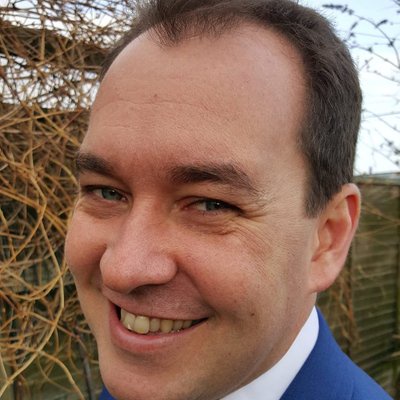
1. Tell us about your role at the University.
I am part of the academic team in the School of Biological Sciences where I study behaviour and get to teach about what we find out to a wide diversity of students. I work at the intersection of life, formal, and social sciences to understand how individuals - humans and animals - make decisions and what the consequences of those decisions are for their health, social life, and demographic contributions. Most of my work focusses on the way humans interact with nature and is driven by the need to find new management approaches to ensure that these interactions are sustainable. A lot of this work involves statistical and mathematical modelling, so in addition to teaching students about behaviour and marine mammals, I also teach statistics. I like people and I like talking, so I try to do a fair bit of public engagement too!
2. How do you usually start your day?
I usually have breakfast in front of emails catching up on what has happened with colleagues in different time zones. I tend to be somewhat civilised after the second coffee. Once we sorted out the schedule for the day in the family (including dog and cat), I take the train and walk to Uni.
3. What brought you to the University of Aberdeen?
Chance! I have moved around a fair bit (France, USA, Australia, New Zealand, Canada and the UK). My wife is a fisheries scientist so we were looking for a place in Europe where we could both work. We both had job offers in Aberdeen which is why we came. Now, more importantly, I am choosing to stay in Aberdeen because of the people that make up this university. I think we have a pretty special place, full of ingenious folks that are willing to converse and work across disciplines. There is a strong collective interest to focus our work to help others wherever we can. And, we value individuals that want to engage in both research and teaching, something I feel is becoming rarer in other institutions.
4. What's your favourite thing about your job?
I like to solve problems: There is nothing more rewarding than spending time with my PhD students in front of a white board. I really enjoy working at the policy-science interface too. I get to spend time with national agencies and inter-governmental organisations to find new ways to make sure people can continue their activities without endangering the planet. I find this very fulfilling.
5. What are your work priorities at the moment?
The UN Sustainable Development Goals [find out more about the SDG here . They are the best developed plan yet to attempt and 'recalibrate' our relationship with our planet and the way we treat one another. I am particularly curious about wicked problems emerging from their interactions. So we borrow modelling and simulation approaches from a wide range of sciences to tackle governance question, most recently with wildlife tourism.
I am also interested in making sure that we not only tell others how to achieve the SDG, but also ensure that we are the change we want to see happening! So I have taken on the responsibility to convene the Sustainability theme for Aurora [find out more about Aurora here: https://aurora-network.global]. I had a chance to talk with quite a few people about this already, but if you are curious and want to participate, don't hesitate to come and see me or email.
The first line of action is the Global Action Day for the SDGs on September 25th. I want to showcase all the amazing work everyone is doing at Aberdeen and our Aurora partners every day to achieve the SDGs. Contact me if you want to get involved.
I will use this to shamelessly plug some other wok we do: a few years back we started the Aberdeen Information Club (AIC, pun intended) which brings people from all disciplines (the founders are from Biology, Computer Science and Philosophy) together to chat about the nature of Information. Get in touch with me if you want to join; all welcomed.
6. How do you like to relax outside work?
I cook and whenever I get a chance I am in the water (you might find me attached to a dive buoy from times to times along the coastline!).
06 September 2018
- Jill Murray
-
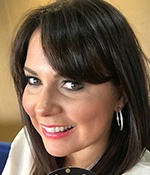
1. Tell us about your role at the University.
In my role as an Events & Engagement Executive, I plan, project-manage, deliver and evaluate corporate University events. My main responsibilities include event planning, audience targeting and development, managing event budgets and leading on all aspects of sponsorship and fundraising for the University's events programme.
I'm also the Festival Manager for the University's annual May Festival which is one of the region's ten major Festivals. I project-manage all aspects of the Festival including programming, marketing and advertising, operations, budget monitoring and business development.2. How do you usually start your day?
I start the day the day with a cup of tea. We in events drink lots of tea! I then have a look through any outstanding emails and action what I can. I have regular morning catch ups with my colleague Lottie Rodger and we go through our 'to do' list and write all the events and actions on to our big white board in the office. This helps us prioritise, as we're always working on multiple projects.
3. What brought you to the University of Aberdeen?
I started as an Events Assistant in 2003 after I graduated from Robert Gordon University with a BA in Corporate Communication. I have developed in the role and now I am the senior lead of the events team. I have a passion for event management and really enjoy my job.
4. What's your favourite thing about your job?
I love the broad spectrum of events that we organise. The diversity of our events portfolio is considerable, including one-off public lectures, festivals, VIP visits, official openings, conferences, dinners and ceremonial services. I enjoy working with various groups of people and departments who are key in helping us deliver high profile events including the May Festival. It's very much a team effort and it's great to work together and celebrate success with each other. I could not do my job if it wasn't for the teams we rely on to deliver key aspects of the events (especially the Sacrist and security… thank you Graeme and Keith)!
5. What are your work priorities at the moment?
We are very busy in the Festivals and Events team, we were involved with the Principal's garden partes which were held recently, they were lovely events to organise. We are also working on two events commemorating the Great War, Paul Mealor is composing a Requiem which will be held in St Mary's Cathedral in Edinburgh and will be performed by RSNO and the National Youth Choir of Scotland. We are very much looking forward to this event as it's not often we get to organise events outwith Aberdeen. We are also working with Professor Steve Heys on his Great War event which features music and poetry.
In addition, we're working with the Public Engagement with Research Unit on European Researcher's Night (Explorathon) which is coming at the end of September. Other events include the Wellbeing of Women lunch, Interfaith and Remembrance Services, the Andrew Carnegie Lecture and that's not event into December yet!
6. How do you like to relax outside work?
My daughter is just about to turn 2 so weekends are busy and all about spending time as a family. We love going on walks to Haddo House, visiting family and friends and just having fun together.
30 August 2018
- Fraser Reid
-
Security officer Fraser Reid tells us about his role keeping our campuses safe, as well as preparations for the start of the new term.
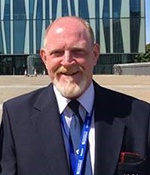
As part of the small Dayshift Security team, my role involves engaging with staff, students and visitors to the University. Communication is pivotal in my role, as there are many diverse international cultures and languages on campus, and it is important to convey the right message in a pleasant and constructive manner. Mentoring is also part of my role and you have to be a good listener and approachable. It's important that staff, students and visitors all feel safe on campus, and are able to seek help or advice when required.
2. How do you usually start your day?
My working day normally starts by receiving an information handover pertaining to incidents / queries from the previous night or weekend. After checking my emails I log all lost property, check that all CCTV is operable, then carry out foot patrols across the University campus.
3. What brought you to the University of Aberdeen?
Having previously worked as a Prison Officer at Craiginches Prison, I thought it was time to move to another role that would allow me more interaction with the public. I have found my new environment here to be welcoming and outward looking. I'm able to add new skills and continually improve my training via internal and external courses.
4. What's your favourite thing about your job?
I have a bit of a passion for history, and you couldn't get a better environment than working around campus, with Old Aberdeen in the heart of it. The history, culture and architecture are a pleasure to be around on a daily basis. The comradery amongst the Security team is excellent as well, you have to have a thick skin sometimes, but it's all done in a fun and jovial way.
5. What are your work priorities at the moment?
We'll soon be heading towards Fresher's week and the return of students from their Summer break, so we have to make sure everything is in place for their return. We've been updating the SafeZone app promotional materials, and patrolling campus to ensure all relevant Health, Safety and Security procedures are in place. We've been very proactive in the run up to the new term and have even made a couple of videos on bike security to show students how to protect their belongings.
6. How do you like to relax outside work?
I've recently purchased an electric bike, so most of my weekends are spent riding around the local area, and with the recent good weather we've had I enjoy getting out in the garden.
23 August 2018
- George Boyne
-
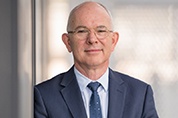
1. Tell us about your role at the University.
I've been in my role as Principal for just 17 days now, and my job is to support academic and professional service achievements across the institution, and to provide the right environment for everyone to do their best.
2. How do you usually start your day?
Over a cup of coffee, reading the BBC news and sport online. I'm a big Dons fan so the morning after a match I usually start the day by reading the coverage of the game. On other days I'll start by catching up on international, national then local news, and of course checking the weather - because that's quite important in these parts!
3. What brought you to the University of Aberdeen?
I've come home. I grew up in King Street then Rosemount, attended 'the Grammar' then studied here at Aberdeen. This tremendous opportunity to lead the University of Aberdeen has brought me back. I'm very lucky because this is the ideal job that has come up at just the right time for me and my family.
I'm very much enjoying reconnecting with the city, with the University and with everything to do with the North East. And I now work just a mile away from where I went to primary school!
4. What's your favourite thing about your job?
The people who work here and the people we're connected to externally - both in the public and private sectors - have all been fantastic to meet and get to know. I've been really impressed by the ideas and ambitions in the University. Our external partners hold the University in high regard and want to work with us for the good of the city and the North East.
5. What are your work priorities at the moment?
In a word: listening. I'm spending my days learning about the university, and finding out as much as I can before we move into the next stage of our development and start consulting formally on priorities and actions for our new strategy.
6. How do you like to relax outside work?
I find walking therapeutic. Any leadership role can get stressful sometimes, so long walks in reasonably good weather is a great way to relax. I particularly enjoy walking by the sea, so any North East coastal walks that people can recommend would be appreciated. At the moment my wife and I have been enjoying long walks along the beach. I went to the beach as a child so it evokes memories of when I lived in Aberdeen before, and helps me unwind.
I like to lose myself in activities outside work, football helps me do that - but so does the cinema and, most of all, live theatre. I feel completely absorbed by live performances, particularly in small theatres when you're close to the stage and the characters really come to life. Listening to music and reading novels at the weekend are also great ways to 'recharge' for the week ahead.
17 August 2018
2017
- Nicholas Edwards
-
Nicholas Edwards tell us about his role as Assistant Registrar and his passion for supporting students throughout their university journey.
1. Tell us about your role at the University

2. How do you usually start your day?
Coffee. Simple as that. Once that has kicked in I do the traditional check of emails before starting on the action list. This can vary from answering queries from our international students; liaising with the Home Office; reviewing processes and communications for our various roles; attending meetings or committees; or preparing for the larger events Registry co-ordinates, like the bi-annual Graduations - where I am often seen wandering about looking like an imposing extra from Game of Thrones.
3. What brought you to the University of Aberdeen?
I initially came here when I was 17 to study my law degree and went on to take up a sabbatical position as President for Welfare and Equal Opportunities at AUSA. That led me to my formal legal training and after 4 years in Edinburgh I began to realise that I missed the work I had done in Higher Education. My other half at the time was looking to relocate to the city to study his medical degree and everything, as they say, fit into place from there.
4. What's your favourite thing about your job?
Without a doubt the variety. Getting to deal with students and staff on a daily basis, while dealing with a variety of emails and reports, meetings and an ever changing political and strategic environment is something I find really exciting. Getting to support our students through the entirety of the University career, from registering to Graduating, is also really rewarding - if not sometimes challenging along the way! Ultimately I am passionate about improving things for our students and the staff that support them - be that making processes easier and more clear; communications easier to read; or policy more accessible.
5. What are your work priorities at the moment?
Currently focus is on our incoming students for the next Academic Year where I will be involved in co-ordinating the immigration and visa check process for the new overseas students. I will also be involved in supporting all returning students in using the MyCurriculum system and making the usual tweaks to our Tier 4 policy and process for the new academic year to hopefully make the lives of our students and staff easier!
6. How do you like to relax outside work?
In a fairly boring answer I love catching up with friends and family dotted around the country. I am often down in the central belt visiting friends from my legal days and my family have recently moved to Kent - so I am down south a few times a year to catch up with the parents and nephews who keep me pretty busy!
Otherwise the usual TV box sets; a bit of cooking and baking; and the constant attempts at getting “healthy”.
Excuse the photo, but when on the Hogwarts Express ...
22 August 2017
- Clare McHattie
-
Clare McHattie tells us about her role as PGT Programme Administrator in School of Medicine, Medical Sciences & Nutrition, as well as her love or dancing and food.
1. Tell us about your role at the University.
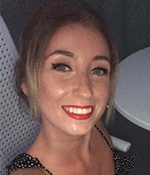
I work closely with our academic programme and course co-ordinators to assist with the operations of each of the PGT programmes that we have on offer, which includes student registration, timetabling, assessment and examinations, disability arrangements, student monitoring, student and academic enquiries, pastoral care, involvement with teaching and learning procedural matters, the list goes on!
The PGT teaching support team like to be a friendly face that both staff and students alike feel they can approach if they ever need help. If we are unable to assist, we will always point you in the right direction.
2. How do you usually start your day?
I'd be lying if I said I was a morning person, often make it to work just on time so - COFFEE, without fail!
3. What brought you to the University of Aberdeen?
I joined the University of Aberdeen in 2013 as part of an apprenticeship which involved working here full-time and studying alongside to attain a qualification in Business Administration. I was then offered a permanent position and have never looked back.
4. What's your favourite thing about your job?
Probably the diversity of my role and that no single day is ever the same. I also love seeing my students graduate at the end of the year, makes it all worth it.
5. What are your work priorities at the moment?
We are currently bracing ourselves for the current MSc cohort's research project submissions!
I'm busy preparing for the upcoming vivas and external exam boards which involves liaising with all of our external examiners and programme co-ordinators, making travel and accommodation arrangements, ordering catering, organising vivas, and building schedules for the day.
I'm also in the depths of co-ordinating and finalising all of the teaching timetables for 2017-2018 which always takes priority when the time comes - it's a big task and I'm very excited for it to be finished.
6. How do you like to relax outside work?
With a cold beer, or a large glass of wine!
I love spending time with my family and friends, I also love to dance and attend classes twice a week - I just recently performed in a dance show at His Majesty's Theatre - show week is always fun! I'm a big foodie so I love to eat out at different places and the thought of a Chinese/Dominoes always gets me excited, I like to treat myself to the odd spa treatment now and again, and I welcome long lies at the weekend.
25 August 2017
- Russell Betney
-
Russell Betney tells us about his role as Science Engagement Officer at the Rowett Institute.
1. Tell us about your role at the University
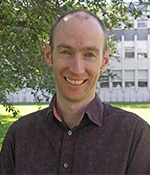
The Rowett regularly has speakers at some of the local Café Scientifique sessions, and I help run events as part of Mayfest and Techfest. Last year I organised the Rowett's contribution to Doors Open Day where there was a lot of interest to see our brand new facility at Foresterhill.
As food & drink and the health of the nation is always a key issue for the government, we have many stakeholders in parliamentary policy teams. It is especially important to engage with these key stakeholders as a large part of our funding comes from the Scottish Government. Recently we have run workshops for some of our key policy contacts; one on behaviour change (in terms of food & drink consumption) and another on healthy safe diets. We also publish a seasonal ezine for our stakeholders which I help write and distribute.
At the Rowett, we also have a lot of contact with the food & drink industry and businesses. I don't have direct contact with companies and businesses themselves but it is important for the Rowett to have a presence at some key industry-facing events which I do have a hand in. We are also involved with events highlighting the possible careers opportunities in the food & drink sector.
Beyond these three principal audiences I also run the Rowett social media profiles. Primarily twitter where we disseminate news and latest publications from the Institute, but we also have a Facebook account with the aim of generating more of a community for volunteers for the dietary intervention studies that we run.
I am also the Rowett representative in a collaborative CPD course for primary school teachers called the Good Food Champions. The course gives teachers an opportunity to engage with all levels of the food, farming, cookery and manufacturing chain via face-to-face meetings, online learning and farm/factory visits. The course has been led by the Royal Highland Education Trust, and along with the Rowett there are representatives from the National Museums in Scotland, Food and Drink Federation Scotland and Soil Association Scotland. We are now in our second year as the response from our first cohort was overwhelmingly positive.
2. How do you usually start your day?
I start my work day in the same way as I'm sure a lot of people do, with a cup of tea (crucial) and dealing with the latest emails in my inbox. If I'm at an event that day, I could start with anything from ensuring our banners, leaflets etc are all present and correct, to making sure all the IT works smoothly for a workshop or making sure we have enough cabbage juice if I'm helping run some “Food Lab” activities for school children.
3. What brought you to the University of Aberdeen?
I first came to the University in 1995 to study Biochemistry, and apart from a two-year period in Berlin, I've never left. I did my PhD here and it was during a couple of Post-doctoral microbiology positions that I developed my taste for science communication. So here I am still at the University of Aberdeen doing science engagement.
4. What's your favourite thing about your job?
The people. It's probably a bit of a clichéd answer, but it's true. Everyone at the Rowett is very friendly and the people I've got to know through the external collaborations I'm involved with are great too. I feel very lucky that through my University career I have worked for and with many excellent people.
5. What are your work priorities at the moment?
Right now my two main priorities are putting together our latest stakeholder ezine that we will send out in spring, and organising our contribution to this year's May Festival. We will be running a workshop on “Reformulation: Why less really is more.” at our institute.
6. How do you like to relax outside work?
I'm a bit of a movie nerd, so I try to watch as much as possible, though with two young sons I don't get to watch as much as I'd like. I also enjoy cycling and running, only for fun; though I am going to run my first every half marathon in a month's time.
31 July 2017
- Kate Smith
-
Kate Smith tells us about her role in the School of Divinity, History and Philosophy, her love of friends and family and her daily challenge of waking up her teenage son.
1. Tell us about your role at the University
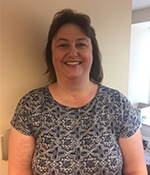
I work closely with, and deputise for, the School Administrative Officer (SAO) and I am the first point of contact for the support team. My role is extremely diverse and I assist the support team, students and academics with a wide variety of queries on a daily basis.
A large part of my role involves Teaching & Learning matters, not only ensuring that the processes in place run smoothly and regulations are met but, also developing new procedures so that changes at university level are implemented within the school.
In addition, I'm also the the Exams Coordinator meaning that I oversee the arrangements for exams and the exam boards. This means I am in regular contact with our External Examiners.
2. How do you usually start your day?
Before I leave the house: banging on my teenage son's door to ensure he is up and leaving the house in time for school. Once I arrive at work: Coffee!
3. What brought you to the University of Aberdeen?
I moved to Aberdeen from Norwich 15 years ago for my husband's work but after some time at home with my young sons I decided I wanted to re-join civilisation and adult conversation - but I joined the University of Aberdeen!
4. What's your favourite thing about your job?
The people, I worked in Registry for 10 years and I have been in my current role for 2 years. In both roles I have been lucky to work with lovely, amazing people who make me smile every day. I also enjoy the variety that my role entails, I love problem solving and juggling conflicting deadlines so this is the perfect role for me.
5. What are your work priorities at the moment?
Currently I am reviewing exam boards, and I'm happy that they went so smoothly this year and I'm looking at further improvements for next year. I am also planning ahead for the new Curriculum Management system that will be launched shortly.
6. How do you like to relax outside work?
I love spending time with family and friends. I enjoy long walks with my dog Ruby.
I have recently been investigating my family history and I am currently studying with the Open University as I love learning.
23 June 2017
- Spencer Bartholomew
-
Spencer Bartholomew tells us about his role as night manager within Student Accommodation and the huge array of tasks involved with keeping around 2000 students safe and happy, as well as the joys of getting home just as everyone else is heading to work.
1. What's your role?
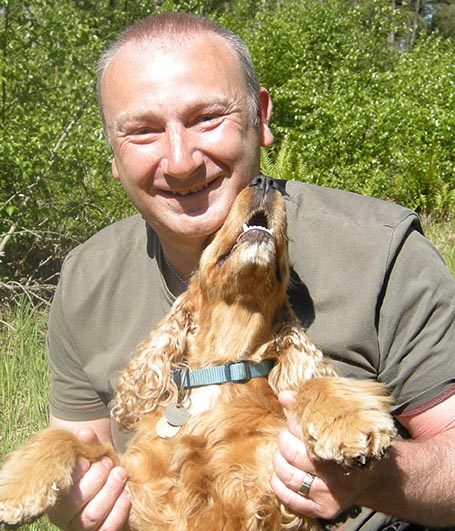
There are three night managers including me working a 12 hour shift pattern. My role is very diverse with no two shifts being the same.
I work predominately from the Headspace building on the Hillhead Student Village site.
While on shift I'm responsible for all University student accommodation including Hillhead student village, Crombie, Kings and Elphinstone Road totalling at present 1785 residents. In addition we provide support to 700 students living within the partner sites all located close to Old Aberdeen.
To explain in a little more depth, and break the role down - I look after the team of portering staff that work at both Hillhead and Crombie sites; organising their shifts, training requirements and annual leave in addition to the normal daily (or in my case nightly) managers role. I also provide support to the welfare team of SRAs that are based in the residences. I am also on hand to assist and support the catering side of student life when functions are running through early/late evenings. We will also deal with any emergencies/issues that can occur during the night at any of our sites; everything from fire alarm activations, power outages, blocked drains, lost keys to flat disputes and missing students. As you can imagine the list can be (and is!) endless with over 2000 young people living on the sites and can also involve liaising with the emergency services. The other aspect of the role is about enhancing and creating a positive student experience while living in University accommodation
2. How do you start your day?
Probably in reverse to the majority of colleagues, after the drive home I get dragged around the streets by our two spaniels unless my wife has had chance to walk them first then I'm off to bed.
My shift starts at 7pm where the day supervisor will do a handover of the day's events and any issues to be followed up by myself or the night team. I'll have a read of the day sheet to see if there are any deliveries or new arrivals and then check my emails.
3. What brought you to the University?
We moved up from Sheffield in 2009 where I used to work at the university as a porter before moving across to security. As my wife had family in Montrose and we had often talked about moving up north, we decided not to go down the road of “I wonder what if” in years to come and so made the decision to move up. I was successful in joining a well-established portering team here at the University in 2010 and was made to feel so welcome. I've also been fortunate since then to have the opportunity to advance my career within this team.
4. Favourite thing about the job?
Firstly, it's the interaction between the students and myself due to the diverse student community that we have staying with us. You could be speaking to a student from literally anywhere in the world, while the next student that you speak to possibly lives just down the road. Also it's so good to see how well the student residents all get on together and the barriers that can curtail this in the wider world aren't as noticeable here at the University.
Secondly, it's at the end of the year when parents find time to thank the team for looking after their son/daughter over the term and to tell us how much they have enjoyed their stay in halls. That makes it all worthwhile.
5. Work priorities at the moment?
My job is operational and at this time of year we start planning for the first phase of undergrads leaving in June. In turn, summer vacation students, summer school and access students will all be arriving to stay with us.
A massive programme of recycling, maintenance and cleaning is undertaken throughout the sites in preparation for the summer guests and the new intake in September. Flat inventories are undertaken, then painting, cleaning, replacement of items and repairs are carried out - no easy feat with over 2000 bedrooms throughout the sites!
6. How do you like to relax?
We both enjoy the outdoors so getting out for walks in the hills together with the dogs when the opportunity arises. In the warmer times, getting away in our caravan and just unwinding with a few glasses of wine and watching the world go by.
28 April 2017
- Malcolm Harvey
-
Teaching Fellow in Politics, Malcolm Harvey tells us about his role in the School of Social Science and life with his family in Aberdeenshire.
1. Tell us about your role at the University
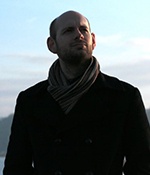
To dive wildly into clichés and mixed metaphors, teaching fellows are very much at the coalface of teaching, building a bridge from the academic research that is undertaken throughout the university to the undergraduate students who are trying to engage with it.
2. How do you usually start your day?
One of two ways: either my three year old daughter shouts from her room that it's time to get up (though most of the time it isn't) or my cat walks all over my face telling me that it's time for his breakfast (again, most of the time, it isn't). But sleep is overrated anyway (which, I think, is something that most people don't really figure out until they become parents and can regularly function on three hours a night). Between my wife and I, we somehow manage to get ourselves and our daughter ready for leaving. This means making lunches the night before and adding juice (for my daughter) and coffee (for me) before we're set. I usually leave the house around 8am from Ellon, arriving around 8.30am when there are still plenty of spaces around the Edward Wright Building.
If my wife is away, I'll take my daughter to the childminder. I used to do a lot of running, and so I'd love for this section to read “I get up at 5am, run 10 miles, shower and change, ready to face a barrage of student questions” but family life really doesn't allow that kind of commitment at the moment - especially if you want any kind of sleep. Maybe in a few years if we do this again, that's how this will go…
3. What brought you to the University of Aberdeen?
A happy accident I guess. When I submitted my PhD, my wife and I lived in Edinburgh, and were awaiting the birth of our daughter. I had a telephone interview in January 2013 (it was the same day as our 20-week scan) for a research fellowship on Professor Michael Keating's “Future of the UK and Scotland” grant. Not long after my daughter was born, we moved up to Aberdeenshire, and the fellowship led to a second (and third) follow-on position, involved with the Centre on Constitutional Change (an inter-disciplinary, multiple-institution centre, established to examine the issues surrounding the Scottish independence referendum) and the “UK in a Changing Europe” programme.
My work on those programmes came to an end in June 2016, at which point a teaching fellowship was advertised in Politics. After interviewing for it, I started in this role in September 2016. Although I have been contracted through the University of Aberdeen since the initial job in February 2013, most of that work was undertaken either at home (writing) or on research trips, and I was rarely in the office here. In that sense, I've only felt like a 'real' member of staff since then and my colleagues have helped make me feel very welcome.
4. What's your favourite thing about your job?
I think the variety it entails is something that is a big plus (much like the Swiss flag - and yes, that's the kind of joke my students get almost every week). Given the salience of my research area (devolution and constitutional change) there has been a lot of media interest in the topic, and I've been involved in everything from live TV on the night of the independence referendum (on CNN and BBC World), telephone interviews with Australian radio, recorded packages for BBC Scotland (and BBC Radio Leeds) and articles for local and national press.
The events Professor Michael Keating and I did to publicise our 2014 book - including at the Edinburgh International Book Festival - were really good fun, as too were the school information events I undertook to help 16 and 17 year olds familiarise themselves with the issues around Scottish independence. What links all of these things is the sense of enjoyment I get from passing on what I've learned. In that respect, this new role is ideal for me, because it means I'm doing more of that - though it is in a more formal learning environment (lectures and seminars).
The variety in this is also great - obviously when you are teaching honours level courses, those are more in your specialist area, and I developed and now co-ordinate my own course in constitutional change. But as a teaching fellow, you also have to take a share of first and second year courses, which are more general introductions to politics. So you might be teaching on the concepts of power and authority one week and feminism the next, which can be challenging, but also good fun.
One of the things I find really useful about politics courses is that we have a significantly high proportion of international students, which can be really helpful in drawing out different views and experiences of key concepts. You didn't ask about the worst bit, but I can probably speak for teaching fellows everywhere when I say that seeing a massive pile of unmarked essays on your desk is probably everyone's least favourite job.
5. What are your work priorities at the moment?
Mostly to keep enjoying my job, and to make sure that comes across in my teaching.
6. How do you like to relax outside work?
There's time to do that? My daughter is three, and has a much better social life than me, so outside of work we're usually finding things to do with her. Favourites are walking around the gardens of Haddo House (if the weather is good) or at a soft-play centre (if the weather is, well… Scottish). When she's (finally!) asleep, it's usually a DVD boxset or a fast-paced novel (reading a lot of Clive Cussler right now) and early-to-bed, trying to get some sleep while we can…
7 April 2017
- Marylee Anderson
-
Rev Marylee Anderson tells us about her role as Chaplain for the University, as well as her life as a taxi driver for her family and her love of the countryside.
1. Tell us about your role at the University
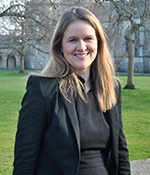
2. How do you usually start your day?
I have a very energetic Sprocker puppy called Riley, so my days usually begin by taking him for a walk to a local hill. Depending on the weather I can't think of a better way to start the day. The rest of my morning, before getting to work, is spent motivating my 3 children to get out the door to school. That's not always an easy task when 2 of them are teenagers! By the time I get to the office the first thing I reach for is my beloved coffee.
3. What brought you to the University of Aberdeen?
I first came to the University of Aberdeen when I did my first undergraduate Psychology degree in 1995. Ever since then I have always felt an affinity with the university. When the role of Assistant Chaplain was advertised 8 years ago I jumped at the chance to apply knowing that this role would combine my counselling and theology degree so well together.
4. What's your favourite thing about your job?
I love that when I walk through the doors of the Inter-faith centre every day I never know what is ahead of me. My day might be mapped out with a range or meetings and pastoral appointments but seldom is my day that straightforward. You could certainly never say that the life of a Chaplain is predictable! However, I get the greatest sense of fulfilment when I can offer some form of pastoral care. Whether that's taking someone to the train station because they've had some sad news or sitting with a student through real tough and painful situations or circumstance.
To be able to support someone through these times is a real honour and I truly mean that. Graduation ceremonies are all the more special when you see those you've supported through their degree achieve. I also enjoy working as part of a fantastic team.
5. What are your work priorities at the moment?
As always, people take priority with my work. Mental health is a growing area of need and we are constantly exploring ways as a multi-faith chaplaincy we can support those in our community who are hurting in different ways. I have also been concentrating on the upcoming University service where we celebrate the University's relationship with the Seven Incorporated Trades and the city.
6. How do you like to relax outside work?
Between work and family life relaxing outside work is not always so straightforward. Much of my spare time is spent as taxi driver to my 3 children especially the boys who are very actively involved in football. However, I love getting out into the countryside and taking Riley for long walks. I'm also attempting to start running again, something I've enjoyed in the past.
10 March 2017
- Phillip Cooke
-
Dr Phillip Cooke, Depute Head of Music and Lecturer in Composition tells us about his role in the music department, his current research and his passion for the variety his role brings.
1. Tell us about your role at the University
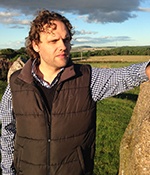
2. How do you usually start your day?
Well, I have a young family so the day usually begins before it should…bleary-eyed and busy, trying to get children to school and nursery. When I'm not on research leave, I get into the office by 09.30 (I live 20 miles north of the city), trying to deal with emails and other issues before the day begins in earnest. And coffee.
3. What brought you to the University of Aberdeen?
I had recently finished a post-doc at the University of Oxford and was dividing my time between a college lectureship and a job at Eton College - it was fun, but the lack of job security was always worrying. When the job at Aberdeen was advertised, I jumped at the opportunity to come and work in a thriving and growing department. The irony was, we'd just bought a house in Oxfordshire. We had always put off buying just in case 'a job came up in Aberdeen' - we always chose Aberdeen as it was as far from where we were in the UK as possible, we didn't expect it would happen…
4. What's your favourite thing about your job?
I like the mix of teaching and research - interaction and solitude - it works quite nicely, I couldn't do one or the other by itself. I enjoy working with students, helping them to realise their ideas and bring their music to fruition - I learn just as much from them as I hope they learn from me. Whatever the climate that HE institutions are currently in, it's a privilege to be able to work in the discipline I love, and I try to never forget it.
5. What are your work priorities at the moment?
Well, as I'm on research leave, they have swung entirely towards my research - I'm currently writing the first academic monograph on the celebrated Scottish composer Sir James MacMillan of which I hope to write the lion's share this year. I'm also writing three other papers, and will hopefully find some time to write some music as well …
6. How do you like to relax outside work?
I like spending time with my family and visiting different places in Scotland. I also enjoy fell-walking (coming from the Lake District), I just wish the Cairngorms were a little closer to Aberdeen …
3 March 2017
- Luca De Siena
-
Lecturer in Geophysics, Luca De Siena, tells us about teaching, volcanoes, negotiating sleep with his son and his passion for tango dancing.
1. Tell us about your role at the University
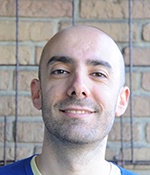
In my research, I apply new theories developed in Physics to volcano seismology, including all the computational and data aspects necessary to produce reliable images of plumbing systems and magmatism. Incidentally, this research can be applied to Earth resources imaging, leading to projects funded by oil and gas companies. I currently lead a group of four PhDs working on volcano-related research.
I am the only Physicist currently hired at the School of Geosciences, mainly because of my background in a volcano monitoring institution. When you “talk volcanoes” in the School, I will sooner or later get in the conversation, even if my favourite side of the subject is our current ability in imaging a volcano, more than modelling its dynamics or formation. I spend a considerable amount of time teaching; I should not tell this (my colleagues advised me not too) but I do actually love teaching, especially to people with a different background with respect to mine. It helps making yourself clear in your research and understanding if what you do has an actual impact on other people, or is just fun for you and a couple of your colleagues.
2. How do you usually start your day?
With my baby's scream, at around 5:50am (if lucky - considering he is now waking up 2-3 times a night!). The next 2 hours are spent by me and my wife trying (unsuccessfully) to convince him it is too early, preparing myself (15-20 min), and preparing him to either go to nursery or for the fact I am going to work (this 8-hrs long walks dad has just for fun, he really cannot stand!). Once in my office, teaching, marking, supervising, or doing research are all very easy tasks in comparison.
3. What brought you to the University of Aberdeen?
I have always wanted a research-focused career. I spent my PhD-time learning how to use Physics skills to do research and teach in Earth Science. After 4 years in Germany as post-doc researcher in an institute studying the Earth's mantle/core, I was looking for a position that could improve my chances of supervising research students, and that would provide better resources for my research.
The School of Geosciences was offering this opportunity at the right time, allowing me to work with people with very different expertise with respect to institutions where I had worked before. Also, here I can teach students with different backgrounds (Physics, Engineering , Geology) which always leads to fruitful cooperation and better understanding of different aspects of research.
4. What's your favourite thing about your job?
I go to classes and see students who are truly interested in the different aspects of my research. I sit down in my office and colleagues come to share their knowledge and are passionate about my work. Most of the time, I can decide my work schedule. And I travel, and get paid for it! Always wanted this job, will never complain about it.
5. hat are your work priorities at the moment?
I want to set up a research-group in volcano imaging, one of the most exciting topics for the Earth Science community. This means tutoring PhD students effectively, supervising MSc students in Geophysics that show an interest in this branch of academic and industrial research, and convince Geology and Physics students that their studies are a perfect platform to work on the topic. I strive for teaching in an effective way, especially to large undergraduate classes. And, obviously, I am progressing in what every researcher in my field is interested in: publishing high-level research related to topics I am passionate about.
6. How do you like to relax outside work?
With my wife Elisabetta, I am the official Aberdeen University Dance Society Tango Argentino teacher. I have been dancing tango since 2009, and started teaching it in Germany in 2013. Every time I go to a conference I spend most evenings/night dancing in “milongas” across the city, where I meet Tango dancers from all over the world. While in Aberdeen, teaching Tango every Thursday evening is my favourite relaxing time. My best time is with my one year old kid, but I would never define it as relaxing.
3 February 2017
- Euan Wemyss
-
Communications Officer, Euan Wemyss, tells us about his role fielding media enquiries, writing press releases and how he likes to unwind with a podcast and wrestle with his Great Dane, Fudge.
1. Tell us about your role at the University
There are a number of roles that Communications Officers (or press officers in old
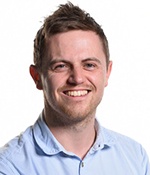
Most of the 'good news' that we create comes in the form of press releases. The highest impact news stories that our team create are based on interesting and important research - anything from discovering hidden civilisations in archaeology to breakthroughs in MRI technology and everything in between. We work directly with our academics to make their incredibly complex research accessible to layman readers and viewers. We do this by interviewing them and then writing up a press release which we will then bat back and forth with the academic or academics until both parties are happy.
Most of the Communications Officers are ex-journalists, so we have a good understanding of what the media will and won't find interesting. Whilst we pride ourselves on being able to find a news 'hook' for almost any area of research, there are some areas that are more difficult to sell than others. Many academics are quite self-aware, but for some I think it must be difficult to hear that the area of study they dedicate their lives to is not of interest to the masses. However, even if we don't feel a press release is the right way to promote a particular area of study, we can usually find some avenue for them to disseminate their work to a general audience. We also have a role to play in managing expectations. Whilst the research may be hugely significant, it doesn't mean it will end up leading the BBC News at Ten. We are competing for media attention with every other university and research institute in the country and the world so it is an incredibly competitive marketplace. As well as research stories we also do stories on student and staff achievements, events and help draft statements and corporate communications.
I've been at the university for four years now. I started off as Comms Officer for CoPS and now I work with CLSM. I have built up a good relationship with the academics but there are always new people starting so it's a constant battle making sure everyone knows that the press office is here, and what we do. We basically want everyone to tell us all their news, all the time - so we don't miss anything that could be a big story. We're kind of obsessed like that. It's horrible when a great research paper is published and we didn't know anything about it. It's also not ideal when an academic contacts us on Thursday when the paper is being published on the Friday, “can you do us a press release on this?” Arghhhhh! It's difficult because I know the academics often have the release date for their papers sprung upon them so we just have to react as best we can. But usually the more notice we have that a paper is coming out, the better job we will do with the release and the more coverage it is likely to achieve.
We can only get press releases written when we're not dealing with press enquiries however, and these enquiries come thick and fast. We are often asked if we have experts in this, that and the other - “do you have anyone who works in collagen?”; “do you have any seagull experts?”; “do you have anyone who can explain why a Scottish accent is difficult for actors to learn?”. Every request is an opportunity to promote the University, so every one requires us to try and find someone who fits the bill and, most importantly, is willing to speak to a journalist or go on the radio the same day. It's not always an easy task.
We also get a lot of operational enquiries from the local media which have the potential to be negative stories, so again we need to find the relevant person to provide us with the information to allow us to draft a response. Media enquiries can literally take up our entire day, which is frustrating because you have very little to show for your efforts at the end of it. In fact, sometimes the best result is that the story doesn't run at all.
2. How do you usually start your day?
After being dragged around the village by Fudge, my enthusiastic Great Dane, I head to the office. I usually exchange disbelief over the latest political developments in the news with my colleagues. I check our daily media coverage to see which of the stories we issued the day previously were picked up and where. Not all media approaches come through the press office, so it is good to see which of our academics are doing media that we might not know about. We also see any stories that may be critical, or potentially critical of the university (it does happen, would you believe?!) so that keeps us informed of trouble that may be coming down the road that we can prepare for.
We have a quick team huddle about 9.15 so we all know what is going out or being worked on and to agree any media lines that we may need for the forthcoming day or days.
After that it's on to any stories that I may have been working on. Some releases can be bashed out in half an hour but others which are more complicated can take a while to break down and write in a manner that will be understood. Then the media enquiries phone rings. You take a breath, pick it up and wait to see where it takes you!
3. What brought you to the University of Aberdeen?
Before joining the University in 2012 I was at STV News in Aberdeen for six years, during which time I was an online and then broadcast reporter. It was a job that I loved but I got sick of the paparazzi following my every move and constantly attending glitzy premiers. No, not really. It was a great and challenging job but it is a career with a relatively narrow trajectory so I decided to try and add another string to my bow. PR is often referred to as the 'dark side' by journalists but as PR jobs go, the University is probably the best in the city as the diversity of stories is great and because we are often dealing with exciting research discoveries. We don't have to do a very 'hard sell' to journalists, as the stories speak for themselves.
4. What's your favourite thing about your job?
It is a genuine honour to get time to sit and speak with our brilliant academics who are doing mind-blowing work and then attempt to tell the story of their work to the masses. Some of them have no idea how interesting it is because it's just what they do every day.
Ultimately our success is measured in the amount of coverage we get. It is quite thrilling to see a press release you worked on from scratch being picked up (and in some cases printed verbatim) across the quality UK and international media. When a story goes particularly big it takes over our entire day and we can be fielding calls and enquiries from all over the world.
I was trained as a video journalist at STV so I also know my way around a video camera and how to edit video so I sometimes get involved in video projects which I also really enjoy. Though they are quite time consuming so I can't do as much as I'd like.
5. What are your work priorities at the moment?
We try to align the stories we are producing with the priorities of the Schools we serve. I work primarily with the School of Medicine and Medical Sciences so if they are looking to bolster their cancer research, for example, we will do our best to source stories related to cancer research or fundraising.
We are always working on ways to ensure academics, and other areas of the University know that we're here and to encourage them to get in touch so we have started doing drop in sessions at Foresterhill where staff can sit down, even just for a minute or two to give us the gist of their story and then we can follow it up later. This seems to have been a success and hopefully will continue to ensure a good supply of stories.
6. How do you like to relax outside work?
I am a podcast junkie and have my headphones in pretty much anytime I am doing any menial task. I have a crazy dog, Fudge (a Great Dane) who I walk day and night and whilst she can cause stress when she decides to eat the furnishings, she also helps me relax by taking up two thirds of the sofa and staring at me with her big, stupid face. She's good for a wrestle too if the mood takes her! I also play a bit of guitar and am the singer/guitarist in a bar/function/wedding band called Starsky (available for booking now at very reasonable prices - see www.starskyband.com for full details!)
20 January 2017
- Megan McFarlane
-
Megan McFarlane tells us about her role in the Student Recruitment and Admissions team as well as her passion for politics and cuddles with her dog.
1. Tell us about your role at the University.
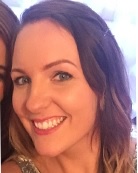
We then work with School colleagues, marketing staff and the wider recruitment and admissions team to try and convert these applicants into registered students by sending regular, bespoke and engaging communications, and providing offer holders with the opportunity to take part in a number of activities pre-arrival.
One of our best conversion projects provided 700 offer holders with free English language support from a current student ahead of their arrival in Aberdeen.
2. How do you usually start your day?
Some days I start with a spin class at ASV, but only if a couple of my colleagues are also going. Peer pressure works. After that I get to work and check my calendar for the plan for the day. I usually sit in meetings for longer than I sit at my desk so my day can result in a blur of messages being sent from my phone while running between buildings.
3. What brought you to the University of Aberdeen?
I studied Politics and International Relations here from 2008 - 2012 and loved every minute of it. When I graduated I worked as an Office Manager for a Member of Parliament before joining the international team in 2013 looking after international partnerships. This was a great introduction to recruitment and prepared me for the challenge of improving our international conversion rates. I've been delighted to take what I've learned and apply it to the home market, expanding into enquiry management for all study levels and markets.
4. What's your favourite thing about your job?
The people! I love working with so many interesting, funny people every day. Working in SRAS is a joy but I've particularly enjoyed working more closely with colleagues in the Schools and the Directorate of IT over the last year. The most patient people on the planet, my friends in IT have given me the tools and support to do my job to the best of my ability. It's also been amazing to travel the world meeting prospective students and training our network of agents. I've been lucky enough to visit the USA, Indonesia, Singapore, Malaysia, Nigeria, Kazakhstan, Azerbaijan, Norway, Faroe Islands, India and China as part of my job. I've not travelled in over a year now as I've been so busy setting up and running the Enquiry Room but I'm looking forward to hitting the road again soon.
5. What are your work priorities at the moment?
Clearing was my most recent big project. A level results day is the best day of the year! It sounds corny but we get to change people's lives, and it's a big moment to get to tell someone they have an offer of a place. I spent a lot of time this year preparing academic staff to make follow up calls to offer holders and I've enjoyed my time getting to know the undergraduate teaching staff more. My next big projects are the January starts conversion campaign, and putting our recently developed communications plan into action.
6. How do you like to relax outside work?
I'm a bit of a political geek so spend a lot of time fighting elections for friends who are standing as candidates. With the number of elections we've had recently it's felt like another full time job. Outside of that I enjoy baking, showering my dog in overbearing affection and dragging myself to the gym.
9 January 2017
2016
- David Stoll
-
David Stoll, Lead International Officer (Central Asia, Europe, MENA), tells us about his love of reading, games and his jet-setting role to recruit students.
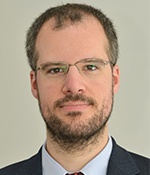
I am responsible for recruiting students to all levels of study from Central Asia, Europe (which includes international students already in the UK), the Middle East, and North Africa. This involves planning recruitment trips; travelling to priority countries in each region to attend education fairs and meeting with prospective students and educational agents; dealing with email and phone enquiries; liaising with Embassies and sponsorship bodies; and meeting visitors on campus. At various times of the year I also help with Open Days, Clearing, and offer making. The role requires a degree of flexibility as priorities change throughout the year.
2. How do you usually start your day?
When I am in Aberdeen, I normally walk to work and start by picking up a coffee from Kilau on my way to the office. I then check my emails and calendar. When on the road, it can vary a lot from getting ready for a meeting, setting up a stand at an education fair, or packing and heading to the airport for the next flight.
3. What brought you to the University of Aberdeen?
This academic year marks the start of my 15th year in Aberdeen. I first came to Aberdeen in 2002 to study History and Politics. I have since become fully institutionalised by adding a MLitt in Strategic Studies and trying my hand at doing a PhD in International Relations. The PhD did not work out, but my experience as a student ambassador allowed me to join the Student Recruitment and Admissions Team.
4. What's your favourite thing about your job?
My favourite thing is travelling and meeting new people from all over the world. It is fascinating to find out more about their culture and what they want to study and why and what drives them. The job has allowed me to visit some places I would probably never have visited otherwise such as Saudi Arabia, Kurdistan, or the Faroe Islands.
5. What are your work priorities at the moment?
At the moment I am focused on planning my recruitment trips for spring 2017 to help increase the number of international students for entry in September 2017. I will visit Kazakhstan, London, Egypt, Kuwait, Azerbaijan, and Saudi Arabia between now and the end of April.
6. How do you like to relax outside work?
I am an avid reader who also loves computer games, board games, and roleplaying games. I am a massive geek so I lean towards sci-fi and fantasy books and games, but also enjoy Stuart MacBride's Aberdeen-based crime novels. I love socialising with friends and often have people over for board games or the odd raclette. I am also in the process of learning Arabic.
8 December 2016
- Brian Paterson
-
Thermal Analysis Technician, Brian Paterson, launches the "Getting to know" series by telling us about his work in the Chemistry department.
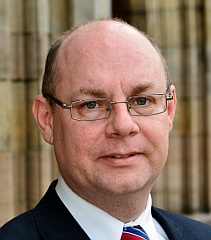
I am one of the senior technical staff in the School of Natural and Computing Sciences, based in Chemistry within the Meston Building. My primary role is Thermal Analysis Technician, providing an analysis service to staff and students of the University and also external companies who are looking to observe the thermal behaviour of their compounds which range from liquid crystals and polymers to bones to crude oil.
In 2014, I was awarded the Royal Society of Chemistry Technician of the Year (Higher Education & Research) for my expertise in ensuring the facility is maintained and providing assistance to staff and students with their analysis requirements.
In addition to my role in Chemistry, I'm the Chair of Unite the Union, Aberdeen Education Sector and spent many years as Secretary to the University of Aberdeen Group. This role sees me being extensively involved in working with the management of the university on policies and procedures as well as negotiating and consulting on employment matters on behalf of members.
I'm also the non-Academic staff member on the University Court and I'm currently serving my second three year term in this role. The other governors and I are responsible for the overall governance of the institution. In the past I have also served as a trustee for UASLAS, the local support staff pension scheme.
I also spent three years in a seconded part-time role with the Business Improvement team, a role which enabled me to learn new ways of working and one which I try to apply to my daily job now that I have returned to Chemistry on a full time basis.
2. How do you usually start your day?
Each day as a technician is different, but like most staff in the digital age a quick check of emails is always required. Many day “starts” are simply an extension of the previous day's end. Maintenance and calibration of equipment and associated fault finding can often span a few days, meanwhile the analysis of samples still needs to be performed and technical staff are most often the “go to” people in an area if there are building issues which can range from providing access to a lab to working with colleagues in Estates. Whilst having specialist skills we also provide the practical side of daily operations, it keeps things interesting!
3. What brought you to the University of Aberdeen?
I always wanted to be science based, from a very early age I had a wish to become a GP, however as time goes by and you start to realise your limitations you fine-tune your direction. So I went from GP to Pharmacist to getting to the point I just wanted to leave school and get a job, even deciding that if I had not found one by the end of 5th year I was going to join the army and become a medic.
A trainee technician job was advertised in Medicine and Therapeutics in 1986 which I applied for was successful. Three years into training I moved to the Rowett, however I was happier at the University and sought to return and managed to do so in October 1992, securing my current role.
4. What's your favourite thing about your job?
Being able to apply my specialist skills and the variety which the role can bring. I also enjoy the people contact and being able to assist scientifically or otherwise and it's been great that as part of the university family I have been able to pursue “non-role” duties and I have been supported to do so by all levels of the management teams.
5. What are your work priorities at the moment?
I have recently been allocated the task of daily management of a single area in Chemistry where I am able to gain a further level of experience whilst being the conduit between some of our post graduate students and their practical requirements, whether that be arranging for a joiner to come and fix something, to advise on Health and Safety or arrange routine apparatus maintenance.
6. How do you like to relax outside work?
I recently started running which despite sounding like hard work (it is!) is actually a great way of emptying the mind at the end of the day. I'm looking forward to running my first marathon next year. I also play golf, however I have discovered that despite practising that for over 30 years, I'm better at running!
As a family we enjoy theatre, cinema and music and thankfully we all like running.
I am also a gamer, aviation enthusiast, follow all motorsports and a keen amateur photographer.
11 November 2016
